

Travel Trailer vs Class C Motorhome 17 Pros and Cons Comparison
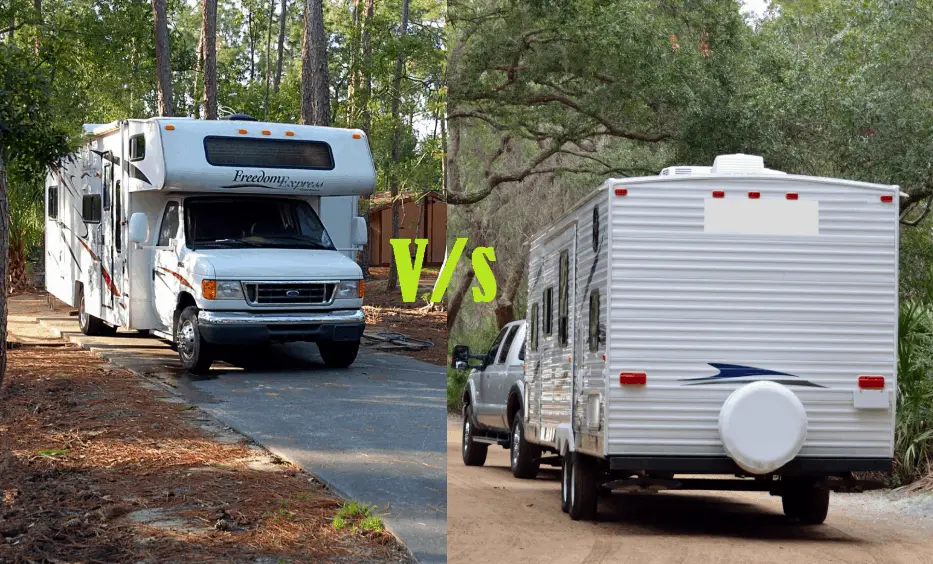
- BUYERS GUIDE
G. Yoganand
In this article, lets check out the differences between travel trailer vs class c RV.
Deciding between different rv’s can be confusing. Isnt it?
But, you can make it very much easy for you, If you compare the options in terms of all your priorities. Many people are stuck on a decision to make between a travel trailer or a class c rv or other motorhome.
Can it be simplified in terms of all the differences? Well, read on to understand the comparison between travel trailer and class c rv.
Here is a summary of all that you should know before choosing between the two.
1. Cost Comparison – travel trailer are less costly
Travel trailer or class c rv or any other motorhome generally comes at thousands of dollars. And, when you pay such a big amount, comparison between various peers is bound to happen.
Paying big amount upfront for your camper needs to be one of the main factor for you, unless you are a millionaire.
Travel trailer is seen to be cheaper, at least most of the travel trailer would normally come at a price that is lesser than class c rv. This is average price comparison as otherwise you would also find travel trailers that can be more costly also.
But, it totally depends on what kind of travel trailer you are buying.
A lot depends on the size of the trailer you are looking for, what kind of amenities you want, the layout and also the construction type.
If you start looking for travel trailers in market, you would see that mostly the prices start with as low as $7000 and go upto as high as $70000.
A travel trailer at $70000 would be a matter of much thought though. Anyways, overall average price of travel trailer is seen to be mostly between $15000 to $25000. By saying this, i mean the most popular travel trailers come at a price that lies in this range.
Class C RV upfront cost is on higher side and they normally start at $50,000, which is almost equivalent to the highest model travel trailer you would get in market.
Class c motorhomes are better in terms luxury, when you compare them with travel trailers and thus, obviously are priced higher. Also, you don’t pull them behind your car. On an average most popular class c rv prices remain in the range of $60,000 to $85,000.
These motorhomes are priced based on amenities, size, floor plans and also, the manufacturing brand If you are looking to pack the recreation vehicle with things like dinner table, bed, refrigerator, sofa, bathroom then the prices would be higher and then, there is almost no comparison between the travel trailer and class c rv.
Thus, the price comparison between class c motorhome and travel trailer camper is clear and you should have a clear idea of what you are looking for.
With a budget of 20,000 or less will mean looking for a new class c rv is not a correct thing unless you are going for used one(that’s a completely different point).
2. Better Driving experience with Motorhome
Driving a camper or a motorhome is a experience that you wouldn’t get going around in car or big SUV. Going around in big rv definitely means you should be much more careful.
A big vehicle of a length of 30 feet not only demands for great care while driving, but also you should be comfortable driving it. Thus, it is a factor of lot of importance to not take into consideration.
Here are some top short Class C Motohormes .
Driving, when you have something towed behind using hitches can be tough in comparison to a big rv, but its totally subjective, some people find big rvs difficult to drive on road while some see a hitched travel trailer a total headache.
The best way to decide which one suits you will be taking a test ride, it could be a new one; if the dealer has such a facility or trying some one else’s travel trailer or class c rv.
If you have been driving any of these previously, then you yourself should be in a good position to understand your level of comfort driving them. Braking can be tough when you have travel trailer behind your car and will need learning as you continue to drive it.
There are quite a lot of factors to be vary of, when you have a hitched trailer behind the car. Backing a travel trailer also needs special attention, initially it may be the difficult part to deal with.
But, with practice you should be able to master it though. It would need proper use of mirrors, spotters to be able to do it like a pro. A class c rv backing may not be as difficult as travel trailer though. In comparison to a small car, it obviously will be fearful for new rvers. But, shouldn’t be an issue once you get good hands on.
A travel trailer can come good on narrow roads as compared to class c rv, which will be much wider.
Also, a class c motorhome can give you much better view , though windshields which may not be possible with travel trailer as you will be sitting in car; which will have lesser windshields.
You don’t get access to living area while you are driving in a travel trailer, where as class c motorhome makes it possible.
3. Towing efforts with travel trailer
Remember a buying travel trailer means you consider lots of factor associated with the towing which is not the case with class c rv or any other motorhome.
That’s the main difference between the two. Can this itself can be factor with greater significance to decide between the 2 and go for a motorhome? Getting a new travel trailer needs you to be sure that the car you already have is capable to pulling the trailer with ease. A matching need to be developed between the car and the trailer.
Getting hitches connected to car, making sure that the connection is perfect every time you head out for camping can be lot for someone with less patience.
With class c rv or any other motorhome for instance its just about taking the RV on road and driving. The set up with trailer can be time consuming and sometimes pretty much a headache.
Safety can also be a concern while you tow the trailer, your car or other vehicle may not always be the perfect fit for towing and that’s when the safety can be a concern.
Although you will get the list of cars good for towing a travel trailer also your car manufacturer stating the same in manual may not always mean you are good to go.
A travel trailer when bought will have certain weight but when you start packing things in it, its weight may go out of limitation for your car. Thus towing a travel trailer not only needs special consideration but also a safety check needed.
Using brakes on travel trailer towed car is also a thing of special practice and you need to be a well trained if not pro.
Thus a fact itself that you need to tow behind car is a greater factor for many to chose for class c rv or any other motorhome in the range. However if you are okay with towing or if you had experience of doing it previously tat you should be better off.
4. Travel trailer Needs less Maintenance
Maintaining a car itself can be a task that many people find tedious. If you are of that nature than owning a rv or travel trailer can get tough for you.
A travel trailer when compared to class c RV for maintenance does not vary much and both need similar kind of schedule to follow. A class RV maintenance will be more costly as compared to a travel trailer, it will also need good storage in garage with a bigger space.
A travel trailer since smaller in size needs a smaller space and a maintenance can be easy as compared to class c rv or any other motorhome.
In case of class C rv you need to be careful about the appliances in it during winters, a class c rv comes at a high cost you cant afford to take things for granted. A travel trailer with minimum amenities will need less attention in comparison to a motorhome.
Read : How to keep travel trailer warm in winter
Having said that a motorhome is generally built heavily with a quality that can be much better that travel trailer and this means the RV or motorhome could be better off handling harsh conditions.
A travel trailer for instance can be protected by a cover which may not really be the case with a big RV. You would need a better garage, that is high in length and bigger n size.
5. Class C RV Has More Space
A motorhome when you compare the overall space you get for driving, living etc is larger as compared to a average travel trailer.
With a motorhome or class c rv you have a cabin that’s much above the road, it gives a perfect view while traveling. Which is not the case with travel trailer when you are sitting in your car.
With a modest price tag a trailer can give you space that will be compact, utilized in a manner to put it stuff as compact as possible as minimum as it gets.
A class C rv will give you a living area that’s larger, a bathroom with a shower that will good enough depending on the length you chose.
Overall with class C rv you have the luxury of space that is not possible with tow-able trailer. Having a bigger space in your camper or RV can be of much more importance when you are camping with kids.
For a couple a travel trailer could be a good fit if you are ready to live with the shortcomings. It all depends from person to person and the priorities. A large travel trailer can also be good for space, but may come with a price tag that almost similar to a motorhome.
Storage space with motorhome is also more and that can e of much more priority for many, Camping is all about packing things for the stay, but imagine you had less space that could fit in all things.
If you are kind of person who just packs things without giving many thoughts or if you are big family that needs lots of packing then go for a storage that meets your requirements. its as simple as that.
6. Less Depreciation in Travel Trailer
Depreciation of RV is something that many people hate. A costly vehicle loosing its value over a period of time hurts a lot. The moment you buy a brand new motorhome it starts to loose its original value.
Depreciation comparison between travel trailer and class c rv or any other motorhome like class B or class A can be a significant factor that can make chose travel trailer. Specially if you are among those who believe in selling old stuff for a good return or renew your RV after certain usage.
A travel trailer find itself with a depreciation little lesser as compared to class c RV. Class A motorhome or class c RV depreciation is directly proportional to the year of manufacturing.
For example, a 2014 model class C rv will loose more on its value as compared to a 2016 model. A year of manufacturing makes a lot of difference and so does the miles on odometer. A travel trailer does not have a odometer and that can be an advantage for it. It solely depends on the year on manufacturing and its condition.
Read : Travel trailer essentials
Maintaining the RV is of great importance if you want to prevent the depreciation percentage to certain extend.
But, unfortunately even with best of best maintenance you cannot prevent the going down of worth of your RV.
If we were to compare solely based on numbers the depreciation of travel trailer and class c rv remains almost similar for 5-8 years (could be between 40-50%) but as you go beyond 10 years a class c rv losses its sheen more as compared to travel trailer.
Class C rv or even other motorhomes loose close to 85% of their value where as a good maintained travel trailer can still hold close to 30% of its value that is losses 10-15 % less than class C rv or class A RV.
Having a look at these average numbers it is upto you if you really care about these 10-20 % after 10 years.
I think most wouldn’t care and the decision on class C against travel trailer should be taken considering the resale value factor with minimum importance.
7. Class C RV has better longevity
When you pay thousands of dollars for a rv or a travel trailer you obviously expect it last for as long as possible. Average life of a rv depends on lots of factors and is not tied with it when you buy it.
You will get warranty for various parts, but to expect a definite life for the trailer or class c rv will be foolish.
A rv or a travel trailer needs scheduled maintenance a good care is needed to keep it going for you.
Imagine you very a very good care taker of your rv then you can expect a good built travel trailer to last as minimum as 12-15 years. The most important part of the travel that you need to be specially careful about is the trailer roof.
Travel trailer roofs are subjected to leakage if sufficient care is not taken. Motorhomes on the other hand can be live a little longer, they are built solid, more capable and thus can last for 20 years or more on an average. It also depends on how many miles the rv ran.
A class A or C may give you more than 200 thousands of miles which may take you around 20-22 years to do. Comparing life of a travel trailer and class c rv solely for the purpose of deciding between two could be a thought for future too ahead.
Also, the life of trailer or the class c rv is very much dependent of many factors which can be controlled by the owner. It depends on how you store the rv when not in use, scheduled maintenance, usage frequency and so on.
8. Travel trailer puts pressure on car mpg
Getting a rv for thousands of dollar is matter of significant investment. Once you get a rv its not only about paying for the upfront cost, with the rv comes other costs.
There are lots of other things you end up spending before you go on that first camping experience. One of the other costs that you have with a rv is the fuel cost.
In fact, it is one of the major spending that a rver has to do to goa around in it. Many a times full time rver complain about the money they have to put in fuel costs. Considering this its important to do sufficient study on how many miles you can get with your class c rv or a trailer.
Getting best fuel economy for rv can be a significant cost saving factor. GA mileage is a parameter that can depend on lots of factors like the age of motorhome, the condition of you rv or trailer, the weight you carry on with in also on where you are driving the rv.
It also depends on the speed with which you drive the rv. On an average a class c RV can give you a gas mileage of around 10-12 miles per gallon (mpg).
It also depends on the wind conditions like a windy day will reduce the mileage may be by 1-2 miles depending on how the construction of the rv is to facilitate the wind resistance.
The wind condition is in fact more of a factor that affects the mileage that the weight of the RV. Pulling a travel trailer on an average also should give a mpg of around 10 miles per gallon.
Read : Truck Camper Or Travel Trailer
Here again, it depends on the frontal area of the trailer being towed. A good wind resistance handling by trailer will increase the mileage by 2-3 miles per gallon.
Also, the speed with which the trailer is being pulled matters. Imagine a speed of around 60 miles per hour, a weight of around 9000 pounds, length of travel trailer around 25 feet gives a mileage of around 8-9 miles per Jagiellon.
9. Travel trailers are available in abundance
Travel trailer are available in plenty in market as compared to class c RV or other motorhomes and thus there is a great chance that you will find a one that best suits your needs.
It is not that you wont get a class c rv as per your needs but you may have to hunt longer to get the one that best suits your needs. Buying second hand is also a option and when you compare the second hand selling market of travel trailer with class c motorhomes you will have lots of options with travel trailers.
In the year 2017 more than 5 lac RV’s were sold in united states which was less than 3 lacs in 2013, that means a growth of more that 100%.
With so many RV’s selling each year the availability of second hand has also increased and because there is so much growth the manufacturers have also spun into action.
Most of the RV’s sold include travel trailers and this number is also greater than the class c rv types. Travel trailer being less in cost are more popular and thus their selling is also larger.
Some of the travel trailer brands that sell most include keystone rv, jayco, rockwood, dutchmen, Airstream . Class C RV manufacturing brands that sell highest includes Winnebago, coachmen, tioga, four winds, jayco , gulf stream, itasca and many more.
10. Class C RV is much bigger
Rv’ or motorhomes have lengths that can intimidating. A length of more that 15 feet itself can be a tough one for a new driver who haven’t had the opportunity to drive such vehicles previously.
When you compare travel trailer length with a class c motorhome both have big lengths but class c motorhome are on an average about 50% more in lengths as compare to travel trailers.
Travel trailers are seen to be having average Lengths of around 20 feet where as class c motorhomes are seen having a average length of 28 feet. You will find variety of lengths but the most popular are seen with these lengths. A class c rv have lengths that start from anywhere from 22-25 feet.
Their counterparts class B rv are seen having average lengths of around 20 feet. Where as class A motorhome are among the lengthiest and they can be as lengthy as 45 feet or even more sometimes.
Understanding the length of RV or a travel trailer is important because you should be comfortable with their length, also you will have to think about the garage for storage at home.
Also, campsites or national parks have length restriction and you may want to have a length that fits in your favorite or close-by nation park of campsite.
Having a lengthy travel trailer can be a hard one to tow and you should check on the length so as to make sure you are not buying a one that will be too much to tow. Also a large length for a travel trailer would also mean more weight which should be within limits for your car to handle during towing.
11. Class C RV are heavier than travel trailers
Rvs of any kind are heaviest that run on roads. They weigh thousands of pounds. A more weight obviously means a reduced mileage.
With advances in manufacturing technology there has been reduction in with over the years. Yet the pounds haven’t come down to that level. Thus its important for you to compare the weight of rv that you intend to buy.
A class C rv is among the heaviest ones only to lag behind class A motrhomes that are heaviest of them all.
A class C RVs weight on an average is seen in between 10000 to 15000 pounds. Travel trailer on the other hand have weight that is much less in comparison to class c rv’s, a 18-20 feet travel trailer can be around 2000 pounds heavy.
It is important that your trailer is as light as possible, since you will be towing it with your car or SUV. And a car or mini truck will have its own capacity to pull and thus checking on the weight of trailer should be your first priority.
Its not only trailer weight but also the overall weight that you should check. A packing for camping can quickly get heavy exceed the limits of your towing vehicle.
Its also necessary that you are aware of overall weight with full gas tank. Having long trailer can give you good space but the pulling vehicle will be under pressure. There are also laws that prevent from pulling certain weight (you need to check that with the states towing laws).
12. Better Construction in Class C RV
Class C rv or any other motorhome are generally better made as compared to towable travel trailers. Their Construction quality is good and is more durable.
Saying these it does not mean all the class C rv construction will be of better quality. It depends on the brand, manufacturing year model. Obviously when you pay 2 to 3 times more you are bound to get it for a better quality.
Inexpensive travel trailer are made up of corrugated aluminium where as class C rv are costly made up of fiberglass or smooth aluminium.
Many a times understating the construction material of rv becomes a tough because all of them almost similar. But it is essential to understand the material type and their pros and cons.
13. More Set up at campground needed for travel trailers
With class C rv or any other sophisticated motorhome you get automatic leveling and thus the manual setup at campground efforts are reduced. This however may not be true with all models though.
Old models may not have automatic leveling. Travel trailer need little more efforts when it comes to doing the basic setup at campgrounds.
On-boarding the generator and doing other stabilization, disconnecting the travel trailer from the towing car are needed in travel trailer where as with class c motorhomes you may sit within without doing much of setup and start the camping. That’s the difference. No matter what RV you own but do not make these setup mistakes at the campground .
14. With travel trailer you get less Amenities
With class C motorhome you get amenities that are just the kind of luxury you would expect in a hotel.
Many thins fitted in so well and compact that may not be the case with travel trailer. A motorhome gives you the luxury of dinning within. Cooking inside, having air conditioner may not be possible with all travel trailers.
Most of the class C rv will have shower, toilet within. Where as travel trailer mostly may or may not have shower and toilet.
15. Additional Cost is more with travel trailers
A travel trailer need to hitched behind a car and for that you will have to spent anything from around $50-$800 also a regular maintenance may be needed for the hitched connection and even replacement of equipment.
This additional cost is not involved in case of motorhomes. Both the travel trailer and class c rv incur almost similar overnight parking costs which could be around $10-$50 per night.
Indoor or outdoor storage costs are also similar for both. An indoor storage costs around $50-$500 where as outdoor storage cost of renting could be anything between $40-$100 on an average.
16. Need of Car at camping
A big class C rv can be a good thing to have but imagine you need a car at the campsite may to go to a near by place where taking the big RV is difficult.
Read : Read Before towing behind a class C RV
When you go with travel trailer you already have car that come very handy. With big rv you then end up renting a car or tow a car behind your motorhome (which again will be differentiating factor), that’s the difference and advantage you have with travel trailer.
17. Insurance Cost
The bigger your RV larger is the amount you pay for the insurance. A travel trailer costs much less for insurance as compared to a class C or class A motorhome.
Insuring a travel trailer can be confusing as there are lots of factor that come into picture. A trailer can be insured right from $200 that can be as high as 8000.
Where as class C rv insurance can cost you anything between $800 to 10000. The more luxury you have the more you pay per year for the insurance.
Want to try before you finalize on travel trailer or class c? You can rent a RV on outdoorsy or rvshare and then decide.
In Conclusion
Travel trailer is less expensive but you also need a car or truck to tow them. You will have to deal with all the things related to towing but you get a separate car to drive, if needed.
Class C motorhome on the other hand is costly but it will give you better living space and facilities to enjoy. Choosing between the two comes down to your budget, weather you are comfortable in towing and also, the style of life you desire in an RV.
You Might Also Like
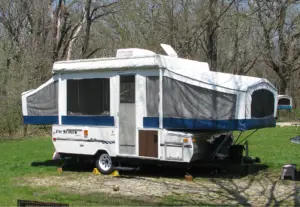
8 Best Coleman Pop-up Camper Models
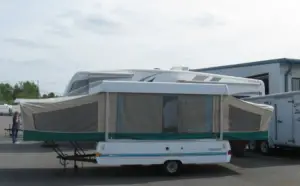
What to look for in a used pop up camper (19 useful tips)
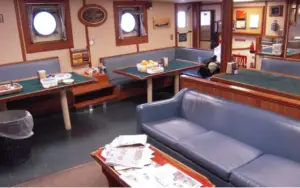
Complete List of RV Essentials You Will Need
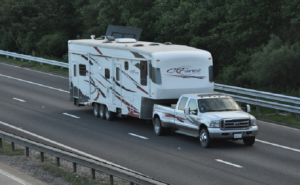
How To Choose Best Truck For Towing A Fifth Wheel (Helpful Guide)
- Search forums
Follow along with the video below to see how to install our site as a web app on your home screen.
Note: This feature may not be available in some browsers.
Welcome to RVForums.com
- Register now and join the discussion
- Friendliest RV Community on the web
- Modern site for PC's, Phones, Tablets - no 3rd party apps required
- Ask questions, help others, review campgrounds
- Get the most out of the RV Lifestyle
- Invite everyone to RVForums.com and let's have fun
- Commercial/Vendors welcome
- General Discussion
- General Discussion - RV Lifestyle
Travel Trailer vs. Class C
- Thread starter ortsa
- Start date Feb 1, 2020
- Tags class c towing vs motorhome towing vs rv trailer vs class c travel trailer travel trailer vs class c
- Modern secure site, no 3rd party apps required
- Invite your friends and let's have fun
- Friendliest RV community on the web
- Feb 1, 2020
My first foray into the RV world was a 2017 Winnebago Navion 24D. I loved it and drove all over the country. The problem I had with it was parking it in some of the wonderful little towns I discovered along the way. After 10 months in it I decided to sell it. Now I'm itching to get back on the road and I have the problem of trying to decide whether or not to get another Class C or a travel trailer. So RV or Travel Trailer. I figure with the travel trailer I can drop it off at the campsite and drive the truck or SUV into town and explore... OR I get another Class C and buy a Scooter/Moped for those exploration times. Note: I do not want to tow a car behind a Class C. So that said, what are some of the differences in driving? I've never driven a truck/suv with a something towed behind it. Not sure what kinds of challenges that poses. The Navion 24D obviously was large but I had no problems with maneuvering it. The biggest problems I had was wind on the highways (eventually got a hell wig stabilizer bar which changed that)... I know it's a very personal choice and I've been doing a lot of research on the differences in living spaces of something like an Airstream Caraval and a Navion 24d...but haven't seen too much in the way of the driving differences... Any help or links to other discussions would be wonderful. Thanks.
TJ&LadyDi
Rvf "dinosaur", rvf regular.
- Apr 29, 2020
Gosh that is the pervading dilemma! Both have so many pros and a few cons. We have an Airstream. We definitely need our truck to drive places after we set up at campsites. We’ve looked at Class C’s, however, and understand the appeal. I do think as we age, we will have to factor on the slightly better and easier setup and breakdown of the C ( mostly in the areas of hitch up). In my opinion, it boils down to do you and can you stay on top of the mechanics of a motorized coach?
We haven't found "stay(ing) on top of the mechanics of a motorized coach" to be much different from doing the same with a trailer tow vehicle. Both need routine service and occasional repair. The bigger difference for us was adjusting to the need for larger sites. With the bigger coaches (and, trailers too), you are more limited to where you can go. TJ
motorized toy collector
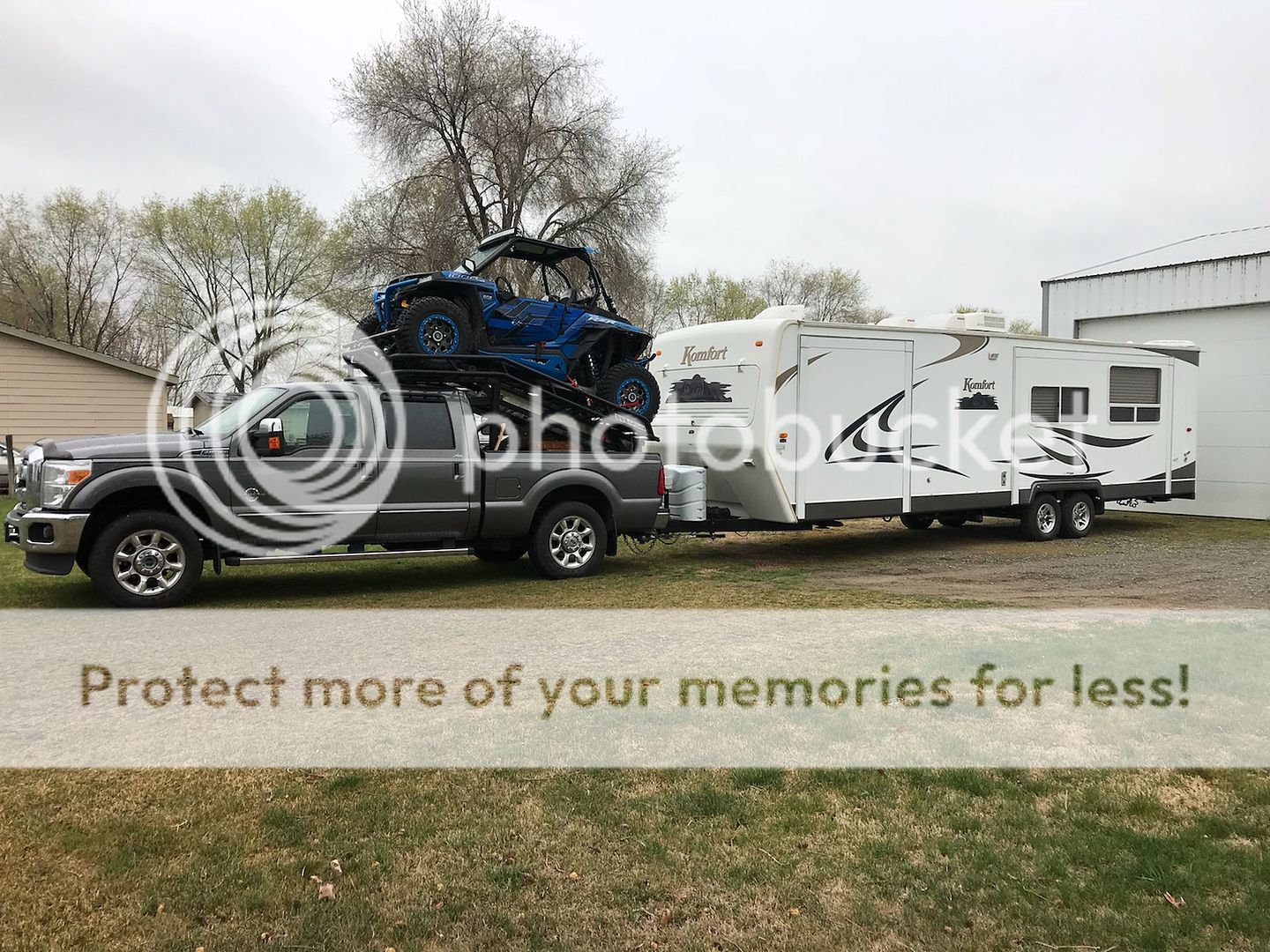
Similar threads
- Jan 24, 2024
- Seniorchief56
- Dec 20, 2023
- Terry Maclean
- Sep 24, 2023
- #1footballfan
- Jan 12, 2024
- Jun 4, 2023
Share this page
Latest posts.
- Latest: dadmech
- 30 minutes ago
- Latest: J&JD
- 37 minutes ago
- Latest: ARD
- Today at 8:53 PM
- Latest: DavidL
- Today at 7:34 PM
- Latest: mconnell61
- Today at 6:10 PM
Latest media

Latest resources
- Updated: Mar 19, 2024
- Updated: Feb 28, 2024
- Updated: Jan 6, 2024
- Updated: Nov 12, 2023
- Updated: Nov 7, 2023

- This site uses cookies to help personalise content, tailor your experience and to keep you logged in if you register. By continuing to use this site, you are consenting to our use of cookies. Accept Learn more…

- Find a Location
The Best Class C RVs of 2023: Complete Buying Guide
Class C RVs are motorhomes that provide plenty of space and features for families on the go. They typically have a rear queen bed, a double bed over the cab, sleeper sofas, and dinettes. Many Class C RVs offer storage in the trunk and interior pantry spaces and overhead cabinets.
When comparing the different RV types , Class Cs are typically larger than Class B but smaller than Class A.
9 Best Class C Motorhomes for Sale
What are the best Class C motorhomes? This list combines function and affordability. Here are our favorite class C RVs:
Thor Freedom Elite 22FE
The Thor Freedom Elite 22FE offers plenty of convenience for a small family seeking a great model to take out on the open road. This model—equipped with a Ford E-450 chassis—sleeps five people in its 24-foot-long interior. With a slide-out to accommodate a queen bed and a sizable cab-over-bunk, the Freedom Elite proves why Thor is one of the best Class C RV brands.
- Full bathroom
- Dream dinette
- Three-burner stove and full sink
- Minimal counterspace in the bathroom
Forest River Forester Classic 3011DSF
The Forest River Forester 3011DSF motorhome comes in at 32’3” with two slide-outs and the ability to sleep up to seven people. One slide-out is in the main sleeping area, which boasts a 60” x 74” RV queen bed with a 12-volt TV and wardrobe closets on either side.
The shower measures 24” x 36” and sits across from the RV toilet and vanity. In the living area, there’s additional sleeping space in the convertible dinette and sofa, not to mention the 60” x 80” cabover bunk.
The kitchen spans the entire camp side wall in the main living area, providing excellent counterspace with a flip-up extension towards the front of the coach. Outside, there’s a 15’6” powered awning, an optional connection for a second 12-volt TV, and abundant storage underneath.
- Built-in step well lock box for added security
- EZ Ryde upgraded suspension system
- Side view cameras and a color backup camera with rear view monitor
- Step up to enter the main sleeping area from the living room (tripping hazard)
- Undersized kitchen backsplash
Jayco Greyhawk 29MV
With room to sleep up to six people and an interior height of seven feet, the Jayco Greyhawk 29MV is great for families that struggle to find a comfortable RV for their taller members. The interior boasts a tri-fold sofa in the living area, but that can be swapped out for theater seating if you desire.
Equipped with a tire pressure monitoring system (TPMS), power anti-lock brakes, heated side view mirrors, and a 7,500-pound tow hitch, driving this Class C RV is a breeze. You can even find the right dinghy or toad to pull behind it for day trips once you reach your destination.
Our favorite interior amenities include recessed LED lighting, hardwood cabinets and doors, a 30,000-BTU auto-ignition furnace, and a Jayco-exclusive legless dinette table. Outside, you’ll love the marine-grade speakers, exterior utility center, LP quick-connect, and Onan® 4,000-watt generator.
- Extra interior height for taller campers (up to 7’)
- Comes with a 200-watt solar panel with dual controller and a second house battery
- Included water filtration system
- Single bathroom
- Only 8 cubic-foot refrigerator unless you upgrade to the 12 cubic-foot alternative
Explore all of our Jayco RVs .
Coachmen Leprechaun 260DS

The Leprechaun 260DS comes in under 30 feet long for easier maneuverability into narrow campgrounds. Inside, you’ll have several sleeping areas for the whole family, starting with the queen-sized bed in the main sleeping area in the coach’s rear.
The cabover sleeping area measures 57” x 95”, and there are two more sleeping areas in the living space. The 62” sofa and the convertible J-lounge – which measures 44” x 76” – provide additional space for rest and relaxation.
The galley boasts a recessed, three-burner cooktop, a flip-up countertop extension, and a round, single-basin sink. There’s also plenty of storage in overhead cabinets throughout the kitchen and living area, along with a small pantry next to the entry door.
- Upgraded 6” mattress on the queen bed
- 5,500-watt generator with a key fob
- Solar prep at the roof and entry cabinet
- Minimal kitchen counterspace
- Single A/C unit (although a second unit in the bedroom is optional)
Jayco Redhawk 29XK
Jayco consistently builds excellent products, which helps cement them as another of the best class C motorhome brands. The Jayco Redhawk 29XK is a front-living model that offers plenty of living space thanks to its single slide-out, which has ample room for a U-shaped dinette and sofa. This 32.5-foot-long Class C RV sleeps up to seven people. The Ford E-450 chassis and engine will get you where you need to go on your next outdoor adventure.
- Ample kitchen counterspace
- Bathroom with shower
- Queen bed in a separate living compartment
- Swivel chairs
- Off-white cabinets and lots of natural light
- Shower separate from the bathroom
- Expensive
Thor Daybreak 24DB
The Thor Daybreak is a compact 25.5-foot-long Class C RV with a Ford E-350 chassis. It sleeps five people thanks to its cab-over-bunk sleeping area and the queen bed at the vehicle’s rear. With a single slide-out, dual closets, and a full bathroom to accommodate your crew, the Daybreak is another outstanding Thor RV with plenty of potential for fun.
- Plenty of sleeping space
- 40” TV in cab-over-bunk
- Full bathroom with medicine cabinet
- Booth dinette
- Small fridge
- Limited counterspace in the kitchen and bathroom
Winnebago View 24G
Winnebago is a leader in the RV space, and the View 24G is no exception. This Mercedes-Benz Sprinter model has two slide-outs and sleeps up to six people. With a full bathroom, dinette, TrueComfort Sofa, and TV area, this model is perfect for adventurers who want to hit the open road without leaving the comforts of home behind. For those who want a compact model, the View 24G is one of the most reliable Class C RVs.
- Spacious kitchenette with plenty of prep space
- Queen bed in rear slide-out
- Space for mounting multiple TVs
- Requires diesel
- Two-burner stove
Jayco Greyhawk 31FS
The Jayco Greyhawk 31FS is another great gas-powered option and one of the top Class C motorhomes. Its Ford E-450 chassis is powerful enough to haul a whole family on a cross-country trip. Two slide-outs, bunk beds, and cab-over bunk allow eight people to sleep comfortably. The dinette and kitchenette offer ample space to prepare and enjoy a meal, making this excellent 32.5-foot-long RV your (mobile) home away from home.
- Plenty of comfortable sleeping space
- Two slide-outs
- Excellent bathroom with plenty of counterspace
Renegade Villagio 25QRS
The Renegade Vellagio is a Class C RV that sleeps up to four. Perfect for smaller families, this Mercedes-Benz Sprinter RV has a front living room, rear queen bed, kitchenette with a two-burner stove, and a roomy bathroom with plenty of counterspace and a full-sized shower.
Pros:
- Spacious bathroom and shower
- Queen bed in the rear with privacy curtain
- Runs on diesel
Class C Motorhome License Requirements

Do you need a special license to drive a Class C motorhome? The answer is usually no.
Because Class C motorhomes fall under the 26,000-pound weight limit most states use to determine licensing requirements, you should be okay. While some RVs weigh more than 26,000 pounds, their recreational status often allows their drivers to get around the need for a special license.
Note: Some states require special licenses or endorsements for specific vehicles, such as towed fifth wheel campers weighing over 10,000 pounds. Other states may have different terms for their vehicle or license classes. Always check with your state’s Department of Motor Vehicles before you purchase, drive, or tow an RV to ensure you comply.
Who Are Class C RVs Best for?

Class C RVs are great for all folks, from families to solo adventurers. Because they’re built on a van or truck chassis and share many amenities with Class A motorhomes , they balance maneuverability with function.
Families will love the sleeping space for the whole crew, while solo travelers will appreciate the smaller size and ease of use. Everyone benefits from bathrooms, a dining area, and small kitchenettes that make meal prep less hassle.
Pros and Cons of Class C Motorhomes

Like any motorhome, even the best Class C RVs have pros and cons. If you’re in the market for a new RV, consider the following:
- More space: Class C RVs offer more living space than Class B models, making them an excellent choice for families. These models often include separate sleeping quarters, dining areas, and even bathrooms with showers.
- Plenty of amenities: Class C motorhomes bring the comforts of home to campers. Some models include full-size beds, kitchenettes with sinks and stovetops, microwaves, and small refrigerators.
- Easy drivability: Class C motorhomes are smaller and easier to drive than their Class A counterparts. They typically don’t require a special license, either.
- Suitability for long trips: Their size and amenities make Class C RVs an excellent choice for longer trips or extended stays at campsites.
- Cost: Class C motorhomes can cost more than Class B campers, depending on their size, brand, and available features. RV financing is typically available and can help you find the right model for your budget.
- Parking challenges: Even though they’re smaller than Class A RVs, finding a parking spot for a Class C motorhome can still be challenging. Because it’s a camper, your HOA or city may have rules regarding where to park it when it’s not in use.
- Fuel efficiency: Class C RVs tend to have lower fuel efficiency than smaller class B RVs or passenger vehicles because they are bigger.
Frequently Asked Questions About Class C RVs

Let’s take a few moments to answer commonly asked questions about Class C motorhomes:
What does Class C mean in RVs?
Class C refers to any motorhome built on a van or truck chassis. They’re usually smaller and less expensive than Class A models . Class C models tend to share one distinct feature: a sleeping area over the cab. They also have smaller footprints than other Class A models.
Is a Class C motorhome worth it?
It depends on your needs. Class C motorhomes offer more living space than Class B models. They also provide more amenities than pop-up campers but less than most travel trailers and fifth wheel models. If you plan on spending a lot of time in your RV, the amenities in a Class C motorhome might be worth it. Class C motorhomes tend to hit a “sweet spot” in pricing between Class A and B options.
Is a Class B or Class C RV better?
Like with most types of RVs, the answer depends on your needs. Class B models, or camper vans, are the smallest type of motorhome and are usually easier to park and maneuver. They are great for solo travelers or couples prioritizing mobility over space. Class C RVs are larger and offer more living space and amenities. Class B models do tend to be less expensive, however.
Which is easier to drive: Class A or C?
Some people argue that Class C RVs are easier to drive because they closely resemble vans or trucks, which may offer a familiar driving experience. The driver’s seat is above the vehicle’s front wheels, giving you a better sense of the dimensions. This helps maneuver in a tight space.
Class A RVs are built on custom chassis that can be larger and more difficult to handle. The driver sits up higher and farther back from the wheels, which might make it hard to judge distances in narrow roads or parking lots.
Ultimately, both RVs require patience and practice to drive safely. Go slow, stay alert, and follow all traffic laws.
Can a Class C RV tow a car?
Many Class C RVs can tow cars behind them, but the specific capacity depends on the make and model. Some Class C RVs might require additional equipment or modifications. Many models can tow a small car or SUV without an issue. Have questions about towing vehicles or RVs? Check out our tow guide .
If you’re considering towing a car with your RV, always check the manufacturer’s recommendations for weight limits or other details. You might have to buy additional equipment like tow bars, base plates, or braking systems to tow your car safely and legally.
Hit the Open Road in a Class C Motorhome
Class C motorhomes are a fantastic way for campers to hit the open road. They combine many of the comforts of home, like bathrooms and kitchen prep space, with the ability to enjoy the great outdoors. They’re also more wallet-friendly than their larger Class A cousins.
Camping World has plenty to offer if you’re looking for a new or used Class C RV. We can help you find the most reliable Class C RV for your budget. Visit your nearest location to see available models up close or shop for Class C RVs online .
Do you have any questions about Class C RVs? Share them in the comments below.
- Comment (2)
Looking for a Good Used Class C Camper 350 To 450 Chassis with A Diesel Engine ❗️

Here’s a link to a collection of SUper C RVs you might be interested in: https://blog.campingworld.com/find-your-rv/best-super-c-rvs/
You can also search our entire Class C motorhome inventory here: https://rv.campingworld.com/rvclass/class-c-rvs
Hope that helps!
Leave Your Comment Cancel Reply
Save my name, email, and website in this browser for the next time I comment.
Shop By RV Type

Your Adventure Awaits
Copyright © 2023 cwi, llc all rights reserved.
- RV Glossary |
- Privacy Policy |
- California Privacy Rights |
- Do Not Sell or Share My Personal Information |
- Targeted Advertising Opt Out |
- Terms of Use

7 Best Class C RV Brands
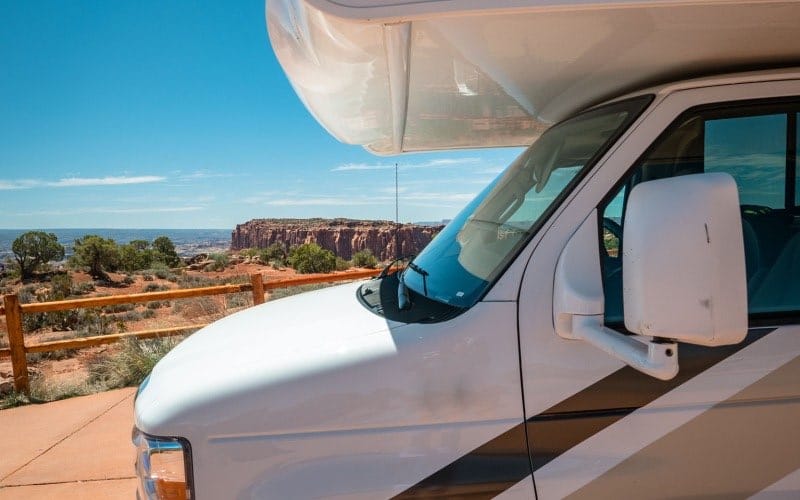
Sharing is caring!
Thanks for your support! If you make a purchase using our links in this article, we may make a commission. And, as an Amazon Associate, I earn from qualifying purchases. See the full disclosure here .
Updated March 2, 2024
If you’re in the market for a new drivable RV, you might wonder what the best 2024 Class C RV brands are. Class C RV motorhomes are smaller and more lightweight than other RVs, making them a good option for those who want to travel without being weighed down.
Manufacturers build Class C RVs on a van chassis with more sleeping and storage space than Class B RVs, but they’re smaller and easier to maneuver than Class A RVs.
There are many Class C RV brands on the market, so it’s tough to decide which one is right for you. To help make your decision easier, we’ve put together a list of the six best Class C RV brands.
What Is a Class C RV?
Those who are new to RV life may not know what separates Class C RV brands from the rest. While they are motorhomes, they are distinctly different from Class As. Class Cs are built in what is essentially two pieces. The first is the cab and the second is the chassis.
You can see the difference by looking at the driver’s seat in a Class A compared to one in a Class C. Class Cs resemble Class B campervans, but are much longer, with a boxier body. They generally get 14 to 18 miles per gallon, and come in diesel or gasoline variations.
7 Best Class C RV Brands For 2024
There are many Class C RV brands, but we narrowed down the best seven based on various factors, including customer satisfaction, quality, and value.
We also considered the distinct features and amenities each RV offers. We chose the brands on our list for their high-quality vehicles and commitment to customer satisfaction.
They also offer a wide range of features and amenities, making it easy to find the perfect Class C for your needs and budget. Let’s get started!
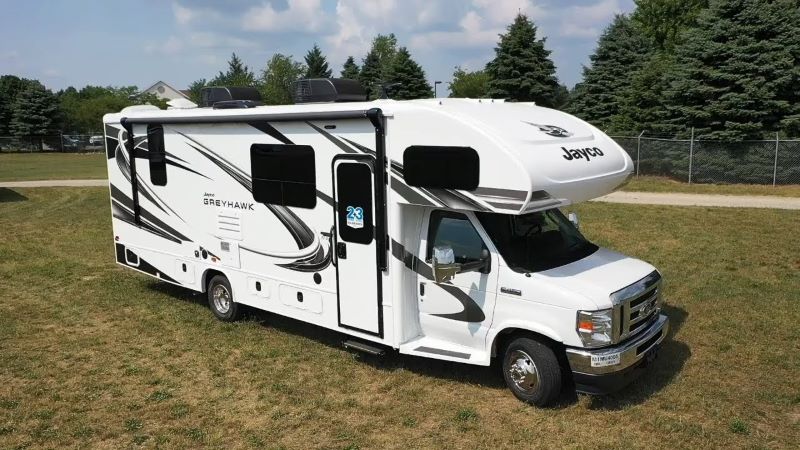
Jayc o has a long history of manufacturing RVs, starting with pop-up variations in the 1960s. The 70s saw the introduction of the first Jayco Class C, the JayMini Motorhome. The latest and greatest Jayco Class Cs are not their first rodeo, with nearly half a century manufacturing them.
Jayco Class Cs are known for their excellent layouts and smooth rides, and they also offer an excellent warranty on them. From entry-level to Super Cs, Jayco’s line-up is extensive and covers just about everything a consumer wants in an RV.
2. Thor Motor Coach
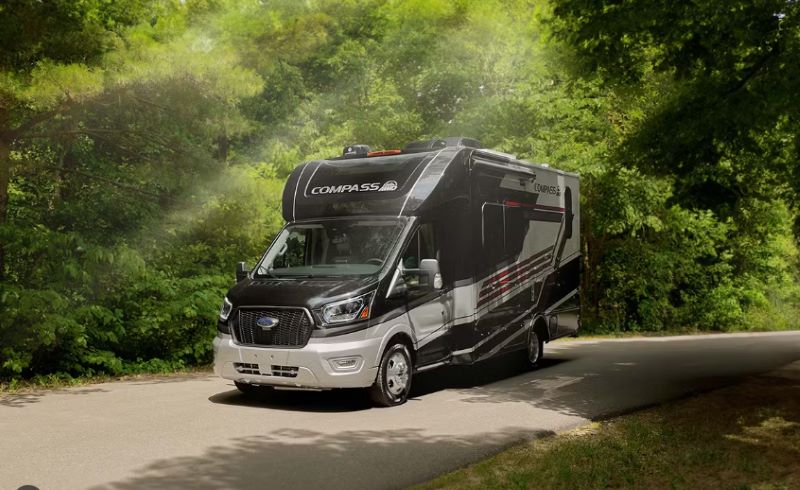
Thor Motor Coach is easily the leader in the RV industry today, with offerings that cover just about every category of RV there is. Their Class C RV brands are extensive as well, including Four Winds, Echelon, Quantum, and Château.
They also own 8 major RV manufacturers in the U.S. and 16 more in Europe. If you purchase from one of the major Class C RV brands, odds are good they are owned by Thor. With that kind of expansive reach, Thor has just about every RV consumer demographic covered.
3. Winnebago
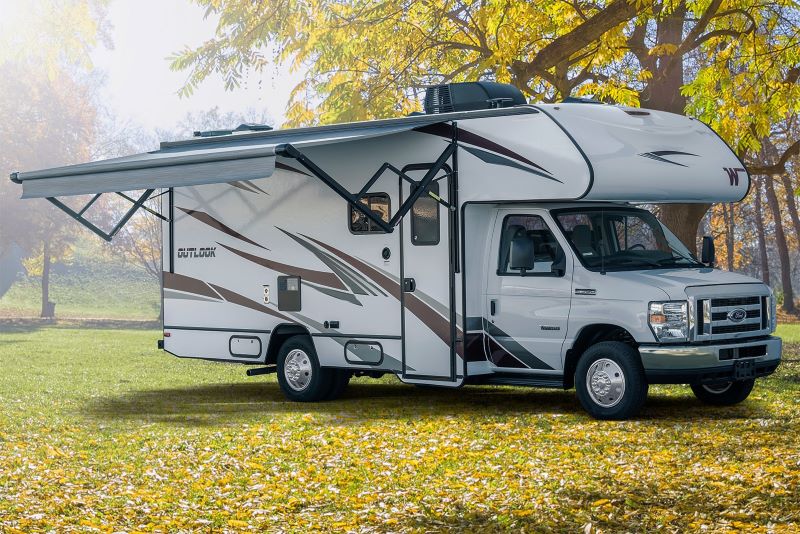
Winnebago is a well-known name within the RV market and without. Most of their Class Cs are manufactured on the popular Mercedes-Benz Sprinter chassis, and Winnebago surrounds those chassis with luxury, aesthetic appeal, and durable longevity.
Winnebago Class Cs look the part of luxury, because it is a luxury RV. This typically includes Italian cabinetry designs, glossy aesthetics, and high-tech components throughout.
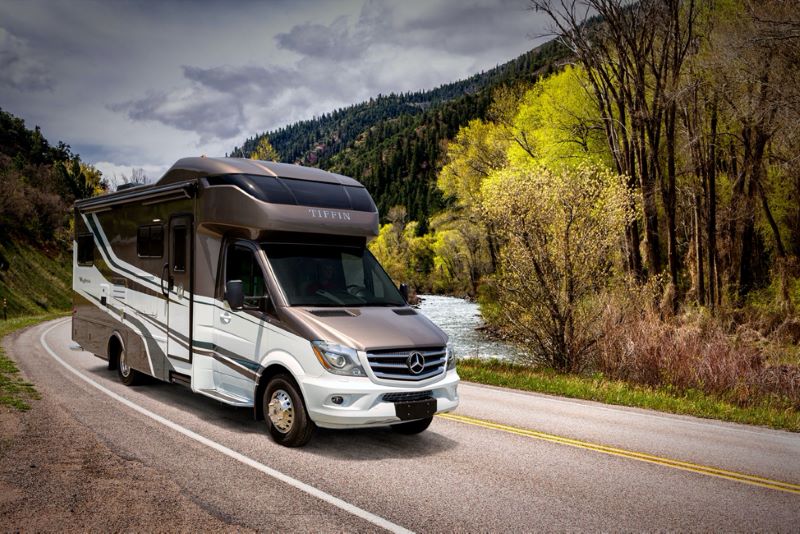
Tiffin got its start from the legendary Alabama kicker, Van Tiffin, and was later sold to Thor Industries. While Tiffin is often associated with Class A motorhomes, rather than Class C RV brands, they are perfectly capable of doing both.
Tiffin simply takes the luxury and appeal of Class As and scales it down a little, making for a highly appealing Class C option. The Wayfarer is a prime example, built around the Mercedes-Benz Sprinter Chassis, and including a fantastic layout with a huge bathroom and a 3.0 turbocharged V6.
5. Entegra Coach
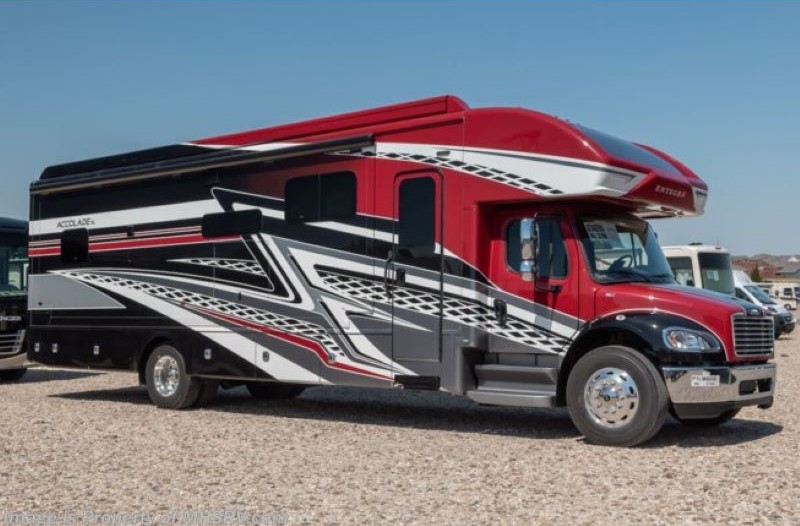
Entegra is yet another well-known and respected name in the RV industry. Their Class Cs include the Mercedes-Benz Sprinter, Ford E-Series, and Ford Transit chassis. Their interiors are large and spacious, with an emphasis placed on modern conveniences, such as Murphy beds.
Things like fiberglass roofing and swiveling dinettes are fairly common in Entegras, and it’s clear that the company tries to think outside the box, especially with similar chassis across all the major brands.
6. Gulf Stream Coach
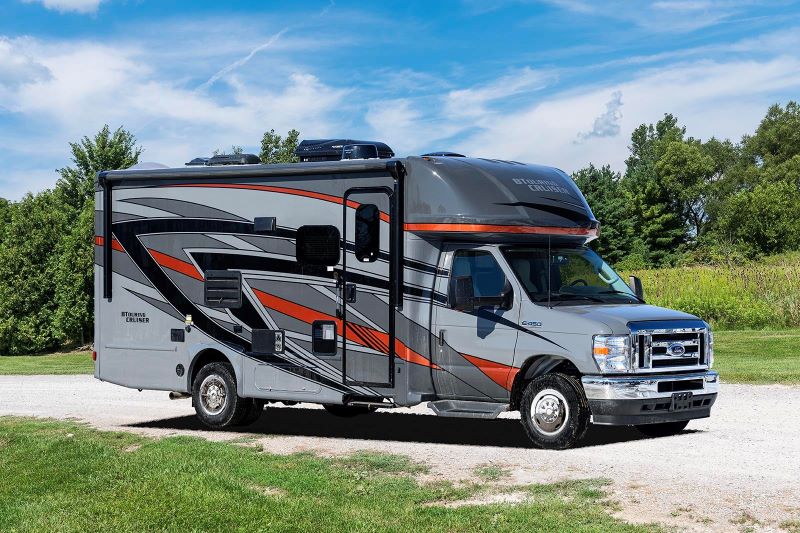
Gulf Stream Coac h is home to the longest-running series in history, at least in the driving category. The Conquest series stands out in Class C RV brands for good reason. It’s been around since the 1980s and all Gulf Stream has done is improve it over time.
The thing is, it’s the only Class C in the Gulf Stream lineup. However, with such a long and illustrious history, it’s a series that’s well worth looking at before you commit to other Class C RV brands out there.
7. East To West
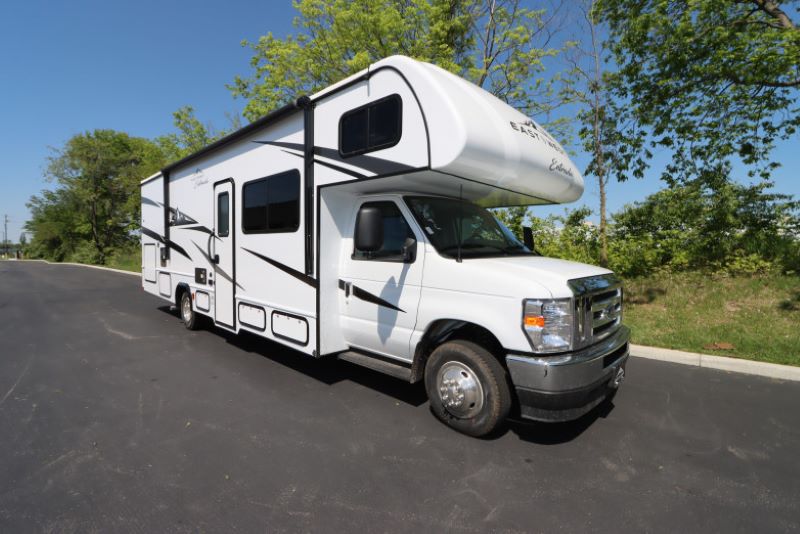
East to West R V is another of the Class C RV brands that are thin on the ground in terms of series offerings. However, don’t mistake thin on the ground for a lack of quality. The Entrada and Entrada M-Class Class C RVs are exceptional motorhomes.
The former is more for couples and smaller families, while the latter is manufactured with a little more size in mind. East to West keeps things simple, with an old-school exterior aesthetic, keeping all the goodies under the hood and inside the Class C.
8. Coachmen
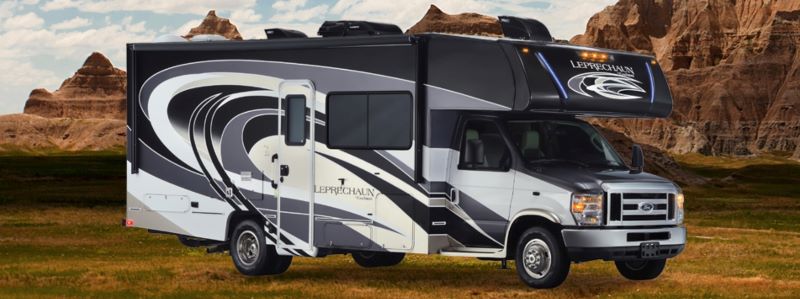
Coachmen is another RV Brand that’s been in the game for a very long time, since the 1960s, no less. Forest River owns Coachmen, which is a good thing on its own, with Forest River being an exceptional RV business on its own.
One of Coachmen’s biggest selling RVs is the Leprechaun, with the Freelander in the mix as well. Both are large Class Cs, with the Freelander more in line with the beginner RVer and the Leprechaun expanding on it.
9. NeXus RV
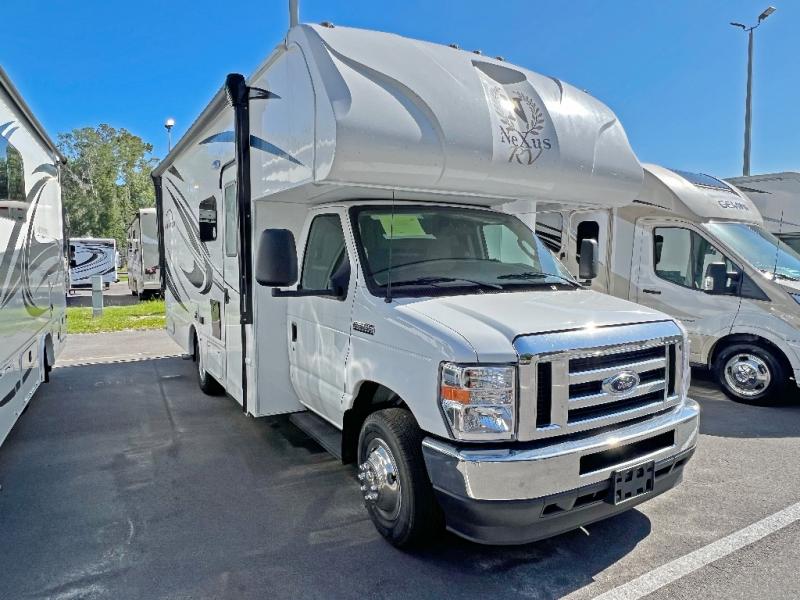
NeXus RV is the new kid on the block, jumping into the RV industry back in 2010. Known as a luxury brand, NeXus’ Class C RV brands certainly fit the description.
The company primarily focuses on Class Cs and Campervans. Their Class C lineup includes the Triumph and Phantom, while the Super C lineup includes the Triumph SC, Verrado, Ghost, Wraith, and 4×4 Super C.
What to Look For in a Great Class C RV Brand
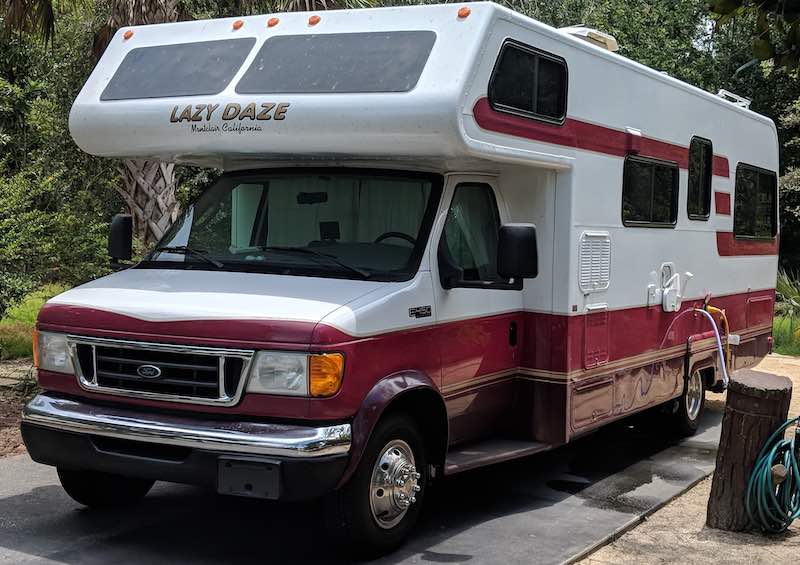
When you’re in the market for a new Class C RV, there are a few key things to look for to ensure you’re getting the best possible option.
First, you want to choose a brand with a reputation for building high-quality, reliable vehicles. Then, research and read customer reviews before making your final decision.
Another important consideration is customer service. Choose a brand with a solid track record of taking care of its customers before and after the sale. This includes providing helpful and knowledgeable sales staff, offering fair prices, and standing behind their products.
You’ll also want to consider the types of RVs the brand offers. Some brands specialize in smaller Class C RVs, while others offer more diverse selections.
By keeping these things in mind, you’re deciding the best Class C RV brand for your needs.
Is A Class C RV Hard To Drive?
Class Cs may be a little daunting to someone sliding into the driver’s seat for the very first time. However, they are largely thought to be much easier to drive than Class As.
No matter what, there is a degree of challenge in the beginning, especially as you learn the turning radius and maneuverability of the RV. Fortunately, it’s not a very difficult thing to pick up. As with everything, practice makes perfect.
Final Thoughts About the Best Class C RV Brands
As the top Class C RV brands in the industry, the businesses in the above list command huge followings. Some of them only produce a few series on a large scale, while others make so many floorplans it’s hard to keep up.
The good news is, that you will find a Class C that’s perfectly designed for your and your family’s needs within this list of brands. Every type, length, weight, and level of luxury is available here and part of the adventure is finding the one that’s right for you!
Related Reading:
– 10 Best Class C RVs With Murphy Beds – 8 Best Class C Diesel Motorhomes – 25 Best Places to Buy an RV – Should I Buy an RV This Year?
Mike Scarpignato – Bio
Mike Scarpignato created RVBlogger.com over five years ago in 2018 to share all we have learned about RV camping.
Mike is an avid outdoorsman with decades of experience tent camping and traveling in his 2008 Gulf Stream Conquest Class C RV and 2021 Thor Challenger Class A motorhome.
We attend RV Shows and visit RV dealerships all across the country to tour and review drivable motorhomes and towable trailers to provide the best evaluations of these RVs in our blog articles and YouTube videos.
We are 3/4-time RVers who created RVBlogger.com to provide helpful information about all kinds of RVs and related products, gear, camping memberships, tips, hacks and advice.

1 thought on “7 Best Class C RV Brands”
Thank you for this great Class C break down! Wife and I are just starting to think about getting one. We formerly lived in a Four Winds 5th Wheel so we know what to expect. This helped narrow the search.
Leave a Comment Cancel reply
Save my name, email, and website in this browser for the next time I comment.

Motorhome Vs Travel Trailer: Pros and Cons
By: Author Zachary Friedman
Posted on Last updated: March 7, 2024
Categories Motorhomes and RVs
Home » Camping » Motorhomes and RVs » Motorhome Vs Travel Trailer: Pros and Cons
RVs come in a wide range of designs. In this guide, I’ll outline the differences and list the pros and cons of camping in a motorhome vs travel trailer. I’ll cover comfort, space, amenities, ease of driving, price, maintenance, fuel efficiency, and much more. I’ll also talk a bit about the different classes of motorhomes and types of travel trailers available.
Generally, motorhomes are easier to drive and easier to set up. They offer more luxurious amenities. Motorhomes also allow you to tow a trailer. Travel trailers are cheaper and lower maintenance.
Motorhomes are the better choice for luxury travelers, full-time RV living, those who need to tow a trailer, and frequent campers. Travel trailers are the better choice for those on a tight budget, those who already own a tow vehicle, off-road campers, and those who only camp occasionally.
Over the past 10 years, I have camped both types of RVs extensively. I prefer motorhomes because you can pass between the cab and living space. It’s convenient. In this guide, I’ll share my experience.

Motorhome Pros
- Easier to drive
- The amenities are accessible while you drive
- Motorhomes are more luxurious
- More storage space
- Setting up and breaking down camp is faster and easier
- You can tow a trailer
- Passengers can ride in the living space
- Motorhomes are better for camping with kids and pets
- More comfortable in poor weather
Motorhome Cons
- Motorhomes are more expensive
- Motorhomes require more maintenance
- Can be less spacious
- It’s hard to drive around for sightseeing unless you bring a tow vehicle
- Less fuel efficient
- Motorhomes depreciate faster
Travel Trailer Pros
- Travel trailers are cheaper
- Less maintenance is required
- Can be more spacious
- You can unhook it and have a separate vehicle to drive around camp
- More fuel efficient
- Trailers don’t depreciate as fast
- More versatile
- Better for off-road camping
Travel Trailer Cons
- Harder to drive
- Less comfortable during travel days
- Lower quality fittings and fixtures
- Less storage space
- Setting up and breaking down camp is more time-consuming
- Harder to park
- Passengers can’t ride in the trailer
- Not less convenient for traveling with kids
- You have to go outside to pass between the cab and living space
Motorhome Classes

A motorhome is an RV with both a living space and an engine. It offers both transportation and accommodation in the same vehicle. There is a steering wheel and gas pedal as well as a bed, kitchen, and bathroom built in. You can walk between the cab and the living space.
Motorhomes come in three classes: Class A, Class B, and Class C.
- Class A motorhomes: Class As are the largest and most luxurious type of motorhome. They measure anywhere from 25 to 45 feet long. They are built on heavy-duty commercial truck chassis. They are basically a bus.
- Class B motorhomes : Class B RVs are the smallest of the three motorhome classes. They usually measure between 18 to 24 feet long. These motorhomes are built into a van. They are sometimes called camper vans.
- Class C motorhomes: Class C RVs are kind of a cross between class As and Bs. They range from 20 to 35 feet in length. These RVs are built on a cutaway van chassis with a fiberglass or aluminum box built on the back. Class C RVs are recognizable by their cab-over bed.
Motorhomes offer a wide range of amenities. Most motorhomes come with multiple sleeping spaces, a full kitchen, a full bathroom, an entertainment system, and some built-in storage space. Most motorhomes can accommodate 4-8 people.
Some popular motorhome manufacturers include Winnebago, Thor, Fleetwood, Tiffin, Newmar, Coachmen, and Four Winds.
For more in-depth info, check out my guide to Class B Vs Class C motorhomes and Class A Vs Class C motorhomes .
What is a Travel Trailer?

A travel trailer is a towable RV. Travel trailers attach to a tow vehicle with a ball hitch. Travel trailers can measure anywhere from 10-40 feet in length. They weigh between 1,000 and 12,000 pounds, depending on the size.
Travel trailers come in a wide range of shapes, sizes, and designs Different models offer different amenities and features. Some common types of trailers available include teardrop trailers, pop-up trailers, fifth-wheel trailers, toy haulers, and off-road trailers. Travel trailers are also known as caravans, campers, or towable RVs.
Unlike motorhomes, travel trailers need to be pulled by a tow vehicle. They don’t have their own motor. Larger trailers require a full-sized pickup truck, van, or SUV to tow them. Smaller trailers can be pulled with a compact truck, SUV, or even a sedan in some cases.
When you reach the campground or RV park, you can unhitch the trailer. This allows you to use the tow vehicle to go sightseeing or run errands without the RV.
Travel trailers come with a range of amenities. Smaller models may only come with a sleeping space. Mid size models may have a kitchenette and a wet bath. Larger models come with full-size beds, a fully equipped kitchen, a full bathroom, a living space, a dining space, an entertainment system, outdoor amenities, storage space, and more.
Small travel trailers trailer accommodate 2-4 people. Larger trailers can accommodate 6-10 people.
Motorhomes Vs Travel Trailer s

Ease of Driving
Motorhomes are easier to drive than travel trailers. The driving experience is similar to driving a large truck or van. If you’ve driven a moving van, you can drive a motorhome.
Motorhomes are easier to drive for a few reasons. First, they are shorter than a travel trailer and tow vehicle combo. It’s easier to maneuver a shorter vehicle. Motorhomes also don’t require towing (unless you bring a boat or tow vehicle). This makes them easier to back up. You don’t have to worry about trailer sway. Turning is easier as well. If you don’t have experience with driving with a trailer, a motorhome is easier to drive.
Travel trailers can be a bit harder to drive because they require towing. There is a learning curve to towing. You have to learn how to turn correctly so you don’t cut a corner. You have to learn how to balance the trailer so it doesn’t sway. Wind can also cause sway. A sway bar can help. Backing is also more difficult with a trailer. It’s kind of counterintuitive.

Some people find driving with a travel trailer to be easier. The reason is that the driving experience is more familiar. You’re driving a regular pickup or SUV. Motorhomes can have different control placements. Particularly class A motorhomes. Many people also find 5th wheels to be easier to maneuver than standard travel trailers. Personally, I find that driving a motorhome is easier.
Of course, the size of the motorhome or travel trailer also plays a big role in how difficult it is to drive. Driving a class B camper van is the same as driving a standard van or SUV. Driving a class A motorhome is like driving a bus. Towing a small teardrop trailer is much easier than towing a 40 foot fifth wheel.
One of the main reasons I prefer motorhomes is because they are easier to drive. I really don’t like driving with a trailer.
Winner: Motorhomes are often easier to drive than travel trailers.

Travel Days
Travel days in a motorhome are much more comfortable and convenient. The reason is that motorhomes allow passengers to move freely in the living space and access the amenities while on the move. The bathroom, kitchen, beds, living area, dining area, and entertainment systems can all be used while the driver is driving.
This makes the journey much more enjoyable for everyone. If someone has to use the bathroom, they don’t have to wait until the driver pulls over. They can just get up and go. If someone wants to grab a drink or a snack, they can go to the fridge. The passengers can chat with the driver or bring them a snack. This makes motorhomes the best choice for long road trips.

Travel days with a travel trailer are a bit less convenient. Everyone has to ride in the tow vehicle. In most jurisdictions, it’s illegal to ride in a trailer while it is being towed. Even if it is allowed, it’s best not to have passengers in the trailer while driving because it’s dangerous.
This means the amenities in the trailer are not accessible during travel days. If someone needs snacks, wants to rest, or needs to use the bathroom, you will have to pull over and find a place to park. This means you’ll have to stop more frequently, which makes travel times longer. It’s also a hassle to find a place to park a large trailer.
Winner: Travel days are more comfortable and convenient with a motorhome.
Interior Living Space
Both motorhomes and travel trailers come in a wide range of sizes. There are compact teardrop trailers and Class B motorhomes that can only fit 1-2 people. There are also 40 foot fifth-wheel trailers and Class A motorhomes that can accommodate 6-10 people.
Travel trailers are usually more spacious than comparably sized motorhomes. This is because they don’t have a cab and motor taking up space. The entire interior space can be used as a living space.
Large travel trailers offer the most spacious interiors of all RVs. They come with separate living, dining, and sleeping areas, as well as full-size kitchens and full bathrooms. These trailers feel like an apartment on wheels.
Fifth-wheel trailers have high ceilings and multi-level floor plans. There is a room over the truck bed. This is usually a private bedroom. Large trailers also offer slide-outs to increase the interior space. This makes trailers ideal for large families.

Motorhomes are a bit smaller inside. Depending on the class and design, the cab and motor could take up around 5 feet of space. Motorhomes often feel a bit less spacious than travel trailers for this reason. They offer the same amenities but feel a bit more cramped.
Large class A motorhomes can be roomy. They often feature multiple slide-outs. This significantly increases the interior space. Class A motorhomes usually have a separate living area, kitchen, and bedroom.
There are also small teardrop trailers and pop-up trailers and class B motorhomes. These RVs usually only have a bed and kitchenette. Some have a bathroom while others don’t.
Winner: A large travel trailer is more spacious than a large motorhome. Both are available in a range of sizes.
Features and Amenities
Motorhomes and travel trailers offer similar amenities. The amenities vary based on the size and class of the RV.
Both types of RVs have come with kitchens that include a refrigerator, stove, sink, countertop space, and cabinetry. Larger models may include an oven, microwave, and dishwasher.
As for the sleeping space, motorhomes and travel trailers offer a queen or king sized bed. Smaller models may only have a convertible dinette or sofa. Larger RVs have a large permanent sleeping space in addition to convertible spaces.
Most RVs come with a bathroom with with a toilet, sink, and shower. Some smaller models, like Class B motorhomes or teardrop trailers, may not have a bathroom. Some just have a wet bath.

Many larger RVs come with outdoor amenities such as a retractable awning, an outdoor kitchen, and external storage compartments. Larger RVs also come with some type of entertainment system including TVs and surround sound. These features are common on both motorhomes and travel trailers.
Class A motorhomes often come with a built in generator. Large models may have a washer and dryer. These features are not common in travel trailers.
I enjoy all of the features and amenities of motorhomes. It’s nice having a home away from home. Having a full kitchen is really important for me.
Winner: Both a motorhome and a travel trailer offer the same amenities. The amenities offered will vary depending on the size of the RV.
Luxury and Comfort
Motorhomes are more luxurious than travel trailers. Class A motorhomes are the most luxurious type of RVs. They usually feature a higher-end fit and finish. They use premium materials like granite or quartz countertops, hardwood cabinetry, tile flooring, and leather upholstery. They are often equipped with top-of-the-line appliances, mattresses, and entertainment systems. They may also come with luxury features like heated floors, jetted bathtubs, and even on-board washer and dryers.

Travel trailers usually are usually built from more budget-friendly materials. The fit and finish may not feel quite as luxurious. The appliances and furnishings may be more basic. Cheaper materials may be used for the flooring, countertops, and upholstery. The light fixtures and faucets may be lower-end.
It’s important to note that there are exceptions. Fifth-wheels can be just as luxurious as class A motorhomes. Class C motorhomes often have a similar build quality to travel trailers.
Winner: In general, motorhomes are more luxurious than travel trailers.
Storage Space
Motorhomes offer a good amount of storage space. Class A motorhomes have a ‘basement’ storage area. This is a large compartment under the living area. This space is perfect for stowing bulky items like outdoor furniture, bicycles, firewood, a generator, etc. You access the basement storage through hatches in the sides of the RV. Class C motorhomes have smaller exterior compartments.
Inside a motorhome, you’ll find cabinets and closets for storing clothes, food, and other essentials. There may also be some hidden storage compartments, such as under the bed.
With a motorhome, you can also tow a trailer. This can add more storage capacity. You could tow a large cargo trailer and carry whatever you need.
Travel trailers often have less built-in storage space. There are cabinets and closets inside but there are usually fewer exterior compartments.
One advantage of travel trailers is that you can use the vehicle for storage space. If you’re towing with a pickup truck, the truck bed is free. You could also mount a roof rack on your vehicle for more space.
Smaller RVs, such as Class B motorhomes or teardrop trailers, don’t offer much storage space. You will have to be more selective about what you pack if you use a small RV. Some models are compatible with roof racks. These can expand the storage space.
Winner: Motorhomes usually offer more storage space than travel trailers.
Getting Around While Camping
One of the biggest advantages of travel trailers is that you have a separate vehicle to drive around. Once you’ve set up camp, you can unhitch your trailer from your vehicle. This leaves you with a regular pickup truck or SUV to drive around when you go sightseeing or run errands. This makes it much easier to explore.
With a motorhome, you’re stuck with a large vehicle. Finding a place to park a motorhome is a challenge due to its large size. It’s also more stressful to drive a large vehicle through cities or in tight spaces. You might not want to go out exploring as often.
To solve this problem, many motorhome owners tow a smaller vehicle behind the motorhome. This tow vehicle is often referred to as a “toad”. You can leave the motorhome parked at the campsite and use the smaller vehicle for sightseeing or running errands.
There are drawbacks to this. Towing a vehicle behind a motorhome makes the motorhome a bit harder to drive. Also, not all vehicles can be towed due to the design of their transmission. Towing can damage some vehicles.
This is one thing I don’t like about motorhomes. It’s a hassle to go sightseeing. I bring an e-bike with me for transportation.
Winner: It’s easier to get around camp with a travel trailer because you have a separate vehicle to drive around.
Motorhomes are more expensive than travel trailers. A small Class B or C motorhome may start at around $60,000. Mid-range models go for $80,000-$150,000. High-end Class A motorhomes cost $250,000 to $1 million or more.
Travel trailers are more affordable. Small travel trailers, such as pop-up campers and teardrop trailers, start at around $12,000. Mid-range models go for $40,000-$80,000. Larger, more luxurious models such as fifth wheels, can cost $100,000-$150,000 or more.
Motorhomes are more expensive because they are more complex. They have an engine and drivetrain. They are motor vehicles. This increases the manufacturing cost substantially.

If you go with a travel trailer, it’s important to factor in the cost of a tow vehicle. A vehicle that is suitable for towing, such as a heavy-duty pickup truck or large SUV, can cost $40,000-$80,000 or more. There are smaller and more affordable vehicles that can tow smaller trailers. Of course, you can always buy used to save some money.
If you’re on a tight budget, a great way to save money on an RV is to buy used. RVs depreciate quickly.
Winner: Travel trailers are cheaper than motorhomes.
Maintenance
Both motorhomes and travel trailers require regular maintenance.
Motorhomes require more maintenance than travel trailers. This is because a motorhome has a motor and drivetrain components that require regular maintenance. They are vehicles. On a motorhome, you’ll have to regularly change the oil, air filters, belts, etc. If you tow a vehicle with your motorhome, you’ll have to maintain that vehicle as well.

Because they don’t have an engine, travel trailers are lower maintenance. There is still maintenance you’ll have to do. You’ll have to maintain the brakes, wheels, tires, and lights. You’ll have to regularly maintain the HVAC, plumbing, electrical systems, and appliances. You’ll have to inspect the roof and seals to prevent water damage and leaks. These are maintenance jobs that all RVs require.
Winner: Travel trailers require less maintenance than motorhomes.
Gas Mileage
Motorhomes get worse gas mileage than a truck towing a travel trailer. On average, Class A motorhomes get 6 to 10 miles per gallon. Smaller class B and C motorhomes can get around 10-12 mpg. Diesel motorhomes can get better gas mileage than gas models.
The weight and size of a travel trailer significantly reduces the gas mileage of the tow vehicle. A big truck towing a large travel trailer or 5th wheel may only get 8-10 mpg. A fuel-efficient tow vehicle with a lightweight travel trailer may get 12 to 15 mpg. You’ll get a bit better gas mileage if you tow with a diesel truck rather than a gas truck.
If you want better fuel efficiency, you’re best bet is to use a small, lightweight, and aerodynamic trailer such as a teardrop trailer or pop up trailer. Pull the trailer with a fuel-efficient vehicle, like a hybrid SUV. You could achieve over 25 mpg this way.
Fuel efficiency plays a major role in the cost of ownership of your RV. Imagine you’re taking a 1,000 mile trip. If you drive a motorhome that gets 10 mpg, you’d need 100 gallons of fuel. At $3.50 per gallon, that’s $350. If you use a travel trailer and your tow vehicle gets 15 mpg, you’d only need 67 gallons of fuel. This would cost you $235 at $3.50 per gallon. You would save $115 on this 1,000-mile trip alone. Over the life of the RV, you could save thousands of dollars in fuel.
Winner: It’s hard to pick a winner in this category because fuel efficiency varies so much. In most cases, you can get better fuel efficiency when towing a travel trailer.
Campsite Set-up and Breakdown With an RV or Travel Trailer
Setting up a motorhome when you reach your campsite is faster and easier than setting up a travel trailer. Most large motorhomes come with an automatic leveling system. If your motorhome doesn’t have automatic leveling, you’ll have to do it manually.
Once your motorhome is leveled, you’ll hook up to water, sewer, and electricity if the site has them. Next, you’ll open your slide-outs. If you’re traveling with a towed vehicle, you’ll also need to unhitch it and park it. The breakdown process is pretty much the same in reverse.

Setting up a travel trailer is often a bit more time-consuming. First, you’ll have to park the trailer. This can be a challenge if you have a large trailer or if you’re an inexperienced driver. Backing a large trailer into a tight campsite is difficult.
Next, you need to unhitch the trailer from the tow vehicle and stabilize it with jacks. Most trailers require manual leveling. Finally, you can hook up the utilities and extend the slide outs.
Breaking down the campsite is pretty much the same in reverse. You’ll also have to hook the trailer back up to your tow vehicle. Unhooking and hooking the trailer is a step you don’t need to deal with when you drive a motorhome.
Setting up and taking down camp is my least favorite part of camping. I love being able to pull up to camp in my motorhome and just start cooking a meal.
Winner: Motorhomes make setting up and breaking down camp a bit easier.
Motorhomes are easier to park than travel trailers. This is mostly due to their shorter length. They require fewer parking spaces. A Class B or a small class C motorhome can fit in a standard parking space. Class As and larger class Cs take up multiple parking spaces. Motorhomes are also easier to back up because they don’t have a trailer.

Travel trailers are harder to park. The combined length of a trailer and tow vehicle make it hard to find a spot that is large enough. You’ll need multiple parking spaces. The trailer also makes backing up more difficult. Backing into a tight parking space with a trailer requires some skill.
There are some major drawbacks to driving an RV that is hard to park. First, you’ll waste more time just looking for parking. Driving an RV that is difficult to park also makes it harder to be spontaneous. You need to plan stops more carefully. Having to find parking for a large RV can be anxiety-inducing. You can’t just pull over and grab a coffee. You have to consider where you’re going to park.
I prefer smaller motorhomes because they are easy to park. I spend some time in cities. It’s much less stressful parking a small rig.
Winner: Motorhomes are often easier to park than travel trailers.
Off-Road Driving With a Travel Trailer Vs Motorhome
Travel trailers can perform better off-road than motorhomes. There are trailers that are specifically designed for off-road use. These are usually called off-road trailers or overlanding trailers.
These off-road trailers feature a reinforced chassis, higher ground clearance, heavy-duty off-road tires, and sometimes even independent suspension. These features make off-road trailers capable of negotiating surprisingly rough terrain.

You can tow these trailers with a 4×4 off-road capable tow vehicle, such as a Jeep, 4Runner or a 4×4 pickup. A capable off-road vehicle paired with an overlanding trailer can handle surprisingly rugged terrain.
Of course, not all travel trailers are suitable for off-road travel. A 40 foot fifth wheel or travel trailer won’t perform any better than a large motorhome off-road. These vehicles aren’t designed for off-road use. They can handle some dirt and gravel roads.
Motorhomes are less suited for off-road use. Their size makes navigating tight, uneven areas challenging. They can handle some smooth dirt and gravel roads but that’s about it.
There are some Class B camper vans that are designed for off-road use. These motorhomes might come with knobby tires, off-road suspension, a lift, and 4 wheel drive. There are also larger off-road RVs such as the EarthRoamer. These are extremely capable overlanding vehicles but they are expensive.
If you’re planning on using your RV for off-road travel, look for a model with large freshwater, greywater, and blackwater tanks. These allow you to stay out longer without having to refill or dump tanks.
Over the past year, I have gotten into off-road camping. I would like to upgrade to an off-road capable camper van.
Winner: An off-road travel trailer is the better choice if you plan to camp off-road. There are 4×4 off-road motorhomes available as well.
Riding in the RV
When you drive a motorhome, everyone rides in the RV. This is extremely convenient. Everyone has access to the bathroom, kitchen, living area, and sleeping areas.
When you use a travel trailer, everyone has to ride in the tow vehicle. In most jurisdictions, it’s illegal for passengers to ride in the trailer. These laws are in place for safety reasons. This is less convenient. You have to pull over anytime someone needs to use the bathroom.
There are some exceptions. In some states, it is legal for passengers to ride in a fifth-wheel trailer. Even when it’s legal for passengers to ride in the trailer, it’s best not to let them. It is very dangerous in the event of an accident.
Winner: With a motorhome, passengers can ride in the RV.
Motorhomes allow you to tow. For example, you could tow a car. You could tow a boat for fishing, sailing, or watersports. You could also tow a cargo trailer packed with outdoor gear like kayaks, surfboards, dirt bikes, ATVs, or a golf cart.
Motorhomes also have a heavy towing capacity. Smaller motorhomes usually have a towing capacity of 5,000-8,000 lbs. Large diesel class A and super C motorhomes can tow 10,000-20,000 lbs. There are heavy-duty super C class motorhomes that can tow up to 40,000 pounds. These are like semis.

When you use a travel trailer, you can’t tow anything else. You’re already towing the trailer. Towing a second trailer (known as triple towing) is possible but it is difficult and illegal in many places. This means you can’t bring a boat or other toys with you.
When towing a travel trailer, you can use the truck bed for hauling recreational gear like dirt bikes, smaller ATVs, kayaks, etc. You can also use a roof rack on your vehicle to haul large items.
Another option is to use a toy hauler trailer. These are trailers that have a garage built in. Toy hauler class A motorhomes are also available.
Winner: Motorhomes allow you to tow a trailer.
Camping With Kids
Motorhomes are more convenient for families with kids. This is because kids can use the bathroom, get up and stretch their legs, play games, or grab a snack without needing to pull over. This can make long drives much more pleasant for both parents and children. Kids don’t get as tired and restless while riding in a motorhome because they’re not all stowed up for the entire journey.
The downside is safety. Riding in a motorhome is not as safe as riding in a regular vehicle. Many motorhomes don’t have seat belts in the living space. Sometimes there are seatbelts built into a dinette or a couch. These aren’t as secure as the seatbelts you’d find in a car.
There also aren’t airbags in the living space of most motorhomes. Most class A motorhomes don’t even have airbags in the cab. Motorhomes also aren’t crash tested.
You may be able to use car seats to improve safety. If you’re planning to travel with small kids, make sure the motorhome is compatible with car seats.
In a moving motorhome, there’s also a risk of injury from falls or loose items. Particularly during unexpected stops or during an accident.
Travel trailers are safer when on the road. Everyone must ride in the tow vehicle. Everyone will wear a seatbelt. There are airbags. -The vehicle is crash tested. This makes it much safer.
Of course, all of the amenities of the travel trailer are inaccessible while driving. If your kids need to use the bathroom or grab a snack, you’ll need to pull over. This is a major inconvenience.
Winner: Motorhomes are more convenient for families with kids. Travel trailers are safer.
Camping With Pets
Motorhomes are more comfortable for pets during travel. Pets can either roam freely or stay in a crate inside the motorhome. This can make the trip less stressful for both you and your pets.
You can also easily care for your pets while you’re traveling. If your pets need food or water, you can bring them some or just leave food and water out for them. It’s also easy to keep the motorhome a comfortable temperature for your pets.
In addition, motorhomes have more space for pet supplies. You can store large bags of dog food or dog crates in the basement storage area. It’s easy to carry enough supplies for your whole trip. You’ll also have space for your pet’s favorite bed, toys, and treats.

When you use a travel trailer, pets should ride in the vehicle with the rest of the family. You can carry your pets in a crate or allow them to roam freely in the trailer if you choose. This can be convenient. It is legal in most states for pets to ride in a travel trailer.
It’s not recommended to let your pet ride in the trailer. The reason is that travel trailers can get ery hot or very cold depending on the weather. It’s hard to regulate the temperature in the trailer during a long travel day. Second, in the event of an accident or quick stop, pets in the trailer could be injured. Of course, they can also damage to the trailer. If your dog gets stressed, it could start chewing on the upholstery.
Winner: Motorhomes are more convenient for pet owners.
RV Depreciation
Motorhomes depreciate faster than travel trailers. This is because motorhomes have a motor and mechanical parts. These parts wear out over time. The general rule of thumb is that a new motorhome can depreciate anywhere from 20% to 30% the moment it’s driven off the lot. It will depreciate 6% to 10% each year.
Travel trailers depreciate more slowly because they don’t have an engine or mechanical parts that wear out with mileage. Of course, travel trailers do still depreciate. A new travel trailer depreciates 15% to 20% when you drive it off the lot. After this, the trailer will depreciate by around 5% per year.
The exact depreciation rate depends on the type of RV, how well you treat it, and where you live. Larger and more expensive RVs depreciate faster than smaller RVs. This is because there is less demand for large luxury motorhomes. After around 5-8 years, depreciation slows down.
Depreciation matters because it affects the resale value of your RV. A faster depreciation rate means that when you decide to sell your motorhome or travel trailer, you won’t get back as much of the initial purchase price. If you don’t plan to keep your RV very long, you’ll want to consider depreciation.
Depreciation can be a good thing if you plan to buy a used RV. The fast depreciation means you can often find great deals on used models.
Winner: Travel trailers depreciate faster than motorhomes.
RV Insurance
Both motorhomes and travel trailers require insurance. The cost of RV insurance depends on the size of the rig and its value.
Motorhomes are more expensive to insure than travel trailers. There are a couple of reasons for this. First, motorhomes are more expensive. Second, motorhomes are more complex. They have their own motor. This drives up insurance costs. If your motorhome gets totaled, it will cost more for the insurance company to replace it. Premiums are higher.
The average annual insurance cost for motorhomes ranges from around $1,000-$2,000 per year. , Insurance cost can vary widely based on the size of the motorhome, its age, how often it’s used, and its value. A million dollar class A motorhome will be much more expensive to insure than a $50,000 class C RV.
Travel trailers are less expensive to insure. This is because they are simpler and less valuable. In addition, they do not require their own motor vehicle liability insurance. The tow vehicle insurance covers that.
On average, travel trailer insurance costs $200-$1000 per year. This varies based on the trailer’s size, age, value, and use.
Winner: Travel trailers are cheaper to insure than motorhomes.
At some point, your RV will break down and need some repairs. You’ll also need to get some routine maintenance done from time to time.
With travel trailers, one of the key advantages is that they are separate from the tow vehicle. If your trailer breaks down, you can leave it at the repair shop and stay in a hotel or your vehicle. If your tow vehicle needs repairs, you can park your travel trailer at a campsite and stay in it until your vehicle is repaired. This makes repairs a bit more convenient.

The logistics of motorhome repairs are a bit more challenging. If your motorhome needs to be repaired, you will have to find alternative accommodation and transportation. Motorhomes can also be more expensive to repair. You need to go to a specialty shop that can accommodate large vehicles.
Winner : Repairs are a bit less of a hassle when you use a travel trailer.
Versatility and Flexibility
Travel trailers can be more versatile. The main reason is that you can disconnect the tow vehicle at camp and use the vehicle for excursions like sightseeing, buying groceries, or even off-roading. You can set up your campsite and still have the freedom to explore.
The tow vehicle can be used when you’re not camping. For example, you can use it for hauling cargo, commuting, or towing other trailers. You can use the tow vehicle as your daily driver.
Motorhomes aren’t quite as versatile. They are only useful for camping. If you want to explore the local area, you’ll need to tow a separate vehicle.
One area where a motorhome offers more flexibility is towing. You can bring a boat or recreational equipment. You could also live out of your motorhome.
Winner: A travel trailer and tow vehicle the more versatile.
Poor Weather
Motorhomes are more comfortable for camping in poor weather. This is because you can pass between the cab and the living area. You don’t have to go outside. For example, if you arrive at camp and it’s rainy and cold, you can walk from the cab to the living space, cook yourself a meal, bathe, and go to bed. You never have to set foot outside.
When you use a trailer, you have to go outside to move between the truck and the trailer. This is annoying if it’s cold and rainy.
Winner: Motorhomes are more comfortable for camping in poor weather.
Day Tripping
Trailers are better for day-tripping because you always have a regular vehicle with you. Once you park the travel trailer at the campsite, you have a normal vehicle to drive around.
Day tripping in a motorhome is a hassle. It’s a big vehicle to drive around and park. You would have to hook up and unhook every day.
If you want to day trip with a motorhome, you’ll want to tow a vehicle.
This is one thing I don’t like about motorhomes. Sometimes, it’s a hassle to drive it around sightseeing.
Winner: Day tripping is easier with a travel trailer.

Who Should Choose a Motorhome?
- Those who value comfort and luxury and lots of amenities
- Those who value the convenience of being able to pass between the cab and living space
- Frequent travelers
- Those who need lots of storage space
- Living full-time
- Those who don’t already own a vehicle capable of towing or don’t have use for one
- Those who value ease of driving
- People traveling with pets or kids
Who Should Choose a Travel Trailer?
- Those who are on a tight budget
- Those who already own a truck capable of towing
- Off-Road campers
- Those who value the versatility of being ale to leave the trailer at camp
- Those who only take the occasional camping trip

What’s Better a Motorhome or a Travel Trailer?
Neither is really better. Motorhomes are better for full-time living. They offer more storage space. They also offer the convenience being able to pass between the cab and living space. They are also more luxurious. Motorhomes are more expensive.
Travel trailers offer flexibility and affordability. They’re separate from your vehicle. You can leave the trailer at camp and use your truck to explore. They do require a capable towing vehicle. Maneuvering them can also be challenging.

My Experience
Personally, I prefer the experience of motorhomes. Having the ability to pass between the driving and living areas and have passengers in the living area while traveling greatly increases comfort and convenience for everyone.
I have experienced being both the passenger and driver. As a passenger, it’s so nice being able to get up and stretch my legs or use the bathroom while traveling. This makes travel days much less tiring.
As a driver, I find motorhomes a little easier to drive and park. It’s also nice to have the ability to tow a boat with a motorhome.
There are cases where I would prefer to use a travel trailer. For example, I have recently started doing more off-road camping. Towing a small off-road travel trailer with a 4×4 vehicle would be a great way to explore more remote areas.
Final Thoughts
Both RV options offer benefits and drawbacks. Motorhomes offer a luxurious, all-in-one camping solution. They are comfortable and convenient but they are expensive vehicles.
Travel trailers offer flexibility and can often be a more affordable choice. Trailers can make driving and maneuvering a bit more difficult. You also can’t tow a boat.
Whichever type of RV you choose, I hope this guide has helped you in making your decision.
Do you camp in a motorhome or travel trailer? Share your experience in the comments below!
Pin it for later!

More Camping Guides from Where The Road Forks
- Class B Vs Class C Motorhomes
- Truck Campers Vs Camper Vans
- Truck Campers Vs Travel Trailers
- Pros and Cons of Van Life
- 5th Wheel Vs Travel Trailer
- Sleeping in a Car Vs Tent
- Rooftop Tents Vs Ground Tents
Zachary Friedman is an accomplished travel writer and professional blogger. Since 2011, he has traveled to 66 countries and 6 continents. He founded ‘Where The Road Forks’ in 2017 to provide readers with information and insights based on his travel and outdoor recreation experience and expertise. Zachary is also an avid cyclist and hiker. Living as a digital nomad, Zachary balances his professional life with his passions for hiking, camping, cycling, and worldwide exploration. For a deeper dive into his journey and background, visit the About page. For inquiries and collaborations, please reach out through the Contact page. You can also follow him on Facebook.
Sharing is caring!
Sign me up for the newsletter!

- Books & Merch
- Gear We Use
- National & State Parks
- Best RV Campgrounds in New Hampshire
- Best RV Campgrounds in NC Mountains
- Best Florida Beach RV Campgrounds
- South Dakota
- The Great Lakes
- Campers Swear By This Portable Device That Keeps Dogs Safe -The Best Portable Dog Fence for Camping (2024)
- Mosquitos and bugs
- Camping Clothes
- Camping Gifts
- Camping Internet
- 5 Best RV Backup Cameras for RV & Trailer
- 7 Best Screen Tents for Camping (2024)
- Best RV Campgrounds in California
- 5 Best Key West RV Parks
- 9 Best RV Campgrounds in New Jersey
- Camping Reservations
- Campground Comparisons
- Cheap or FREE RV Camping Sites
- Best RV Campground Memberships & Clubs
- Boondocking 101
- Boondocking Adventures
- RV Internet
- What Do Flamingos and Upside Down Pineapples Mean?
- Where to Find FREE or Cheap RV Sites Camping
- RV Winter Camping
- RV Show List for 2024
- 17 Best Camper Vans 2024 (New Class B RVs Available!)

Class B vs Class C RVs: The Expert Guide
Should i get a class b or class c rv whether you're looking to buy your first rv or ready to move on to a new one, that's the big question many rvers will face when heading out to make that big purchase..
- 1 Should I get a Class B or Class C RV? Whether you're looking to buy your first RV or ready to move on to a new one, that's the big question many RVers will face when heading out to make that big purchase.
- 2 The Class B RV and Vanlife
- 3 Understanding the Class B RV
- 4.1 The Class C RV: An instantly recognizable silhouette
- 4.2 Looking for an example of a Class C RV? Check out Tiffin’s Wayfarer
- 4.3 Super Class C RVs: When you need even more space
- 4.4 So, Class B vs Class C RVs…
But how do you know which one is for you?
Fortunately, we spend a lot of time traveling to various RV shows, talking with dealers, and visiting with our RV Lifestyle Fellow Travelers, and we have a good handle on helping you address the Class B vs. Class C RVs conundrum.
We recently did a poll in our NEW Community on what type of RV people had – the results were interesting – you are welcome to take a look right here.
Let's start with Class Bs.
The Class B RV and Vanlife
Two factors are driving the growth in class B motor homes. The first is downsizing, with more people wanting to get into something a little more maneuverable.
The Class B RV is also referred to as a campervan. They have become so popular that they have spawned a movement called vanlife.
The second big factor is technology. Lithium-ion batteries, solar panels, and more now make it possible to connect with the world as you're driving and, well, work from anywhere.
To get you started as we compare Class B vs Class C RVs, here's a video we did on a bunch of different models from an RV show devoted strictly to small Class B and Class C motorhomes back in 2019.
Understanding the Class B RV
If you're looking at Class B, you're talking about an RV that is built on a commercial van chassis. That includes the Mercedes Sprinter chassis, the Ford Transit chassis, or the Dodge Ram ProMaster chassis.
So, it's really the smallest of motor homes. Yet, they still have sinks, stoves, refrigerators, holding tanks, toilets, house batteries, beds, sitting areas, and even entertainment features.
When it comes to engines, Class B RVs are either gas or diesel. Class Bs generally get 10-25 miles per gallon.
Class Bs also are designed with various lengths, generally ranging from 18 to about 23 feet.

They also have different floor plans, which means there are various combinations of sleeping arrangements, whether traveling alone or with others. The different floor plans are a big attraction for many Class B owners.
Of course, you’ll wonder about storage and tank capacity in the smaller RVs and you’d be right if you suspect both are limited. However, what they lack in storage they make up for in compact agility because driving a Class B is like driving a minivan or a truck.
That means fitting into smaller campsites and easier maneuverability when getting into or out of, or visiting a town. The versatility, in fact, is one of the primary reasons many prefer Class Bs.
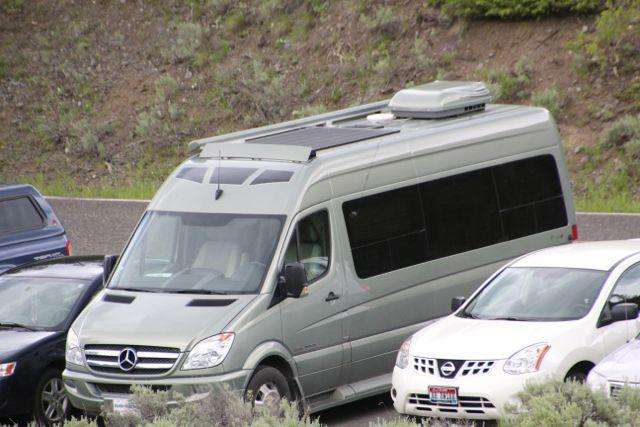
Many of these smaller rigs come with lithium house batteries and solar panels to maximize and extend electrical output.
However, if you’re thinking Class Bs are less expensive because they’re smaller, you will be sadly disappointed. Delivering the luxury features of larger coaches compressed into smaller spaces creates engineering and construction challenges, which means higher costs. In addition to the engineering challenge, many Class B and B+ RVs use more costly higher-end components like lithium batteries in their designs.
Class C RVs
One of the most popular segments in the whole motorhome industry is the Class C RV. Of course, some of you may be asking: What is a Class C RV?
All these different RV Classes can be quite confusing. Don’t worry — we’re here to help!
The Class C RV: An instantly recognizable silhouette
First off, most Class C RVs have an instantly recognizable silhouette. Here's what a typical Class C RV looks like.

The classic Class C RV cab is covered by an overhang, or cab-over, that in most models houses a bed. A short passageway leads into the body of the motor home, usually a step or two up from the driver’s compartment. They are built on a cutaway truck chassis.
But first, let's clear something up.
You may have heard the term Class B+ RV. Those are small motorhomes that do not have the front overhang. But a so-called B+ RV really IS a Class C RV. The industry just made up that B+ designation.
Here's a picture of one of them:

But for the purpose of this article, we're talking about the classic Class C RV with that distinctive cab overhang.
CLICK HERE to read an article on what is a Class B Plus RV
The cutaway truck chassis a Class C RV is built on is able to carry more weight, and that gives RV manufacturers the freedom to add more bulk.
As expected, everything is a bit bigger with Class Cs: a separate dining area, larger stove and refrigerator, and larger storage tanks for water, waste, and propane. The bathroom is larger, and usually with a shower stall separate from the toilet. There are usually one or two slide outs for extra width when parked.
When it comes to storage, Class Cs are a dream, typically offering plenty of cupboards and hiding spaces inside and several storage compartments outside.
In fact, some of the modern Class C RVs are so large that they rival the Class A, or bus-style motor home, in space and amenities. They range all the way up to 41 feet long, though most are between 25-30 feet.
Looking for an example of a Class C RV? Check out Tiffin’s Wayfarer

One of the known names in motorhomes is Tiffin , and not too long ago the company introduced a brand new line of Class Cs — a testament to the potential offered by the Class C market.
Trent Tiffin gave me a tour of the company’s new Wayfarer RV, which is a great example of a Class C RV.
Tiffin is in sales and marketing and a third-generation member of the company’s family.
He started by explaining the basics of the Wayfarer.
“It's built on Mercedes chassis (Sprinter 3500), no longer than 26 feet generally,” he said.
That means plenty of room.
There is storage everywhere, starting with two compartments accessible from the outside (one is pass-through). There is also overhead cabinet storage in the bedroom, kitchen, and dining areas along with a wardrobe next to the bedroom and a pantry that slides out near the kitchen area.
When you walk in, the model I saw included a 70-inch couch with a trifold bed in it. The kitchen area offers a full countertop with a deep stainless steel sink, and two cooktop burners.. ( Different floor plans obviously are available).
Additionally, there’s a two-door refrigerator (6 cu. ft.) along with a microwave.
The sizable bedroom area offers enough room for a one-piece memory foam queen-sized bed that folds up and offers a bench area as well as…you guessed it…more storage. Another option is to have two twin size beds.
The bathroom is also a good size with a large shower (24” x 32”).
All in all, there’s a lot of room in a Class C RV.
Super Class C RVs: When you need even more space
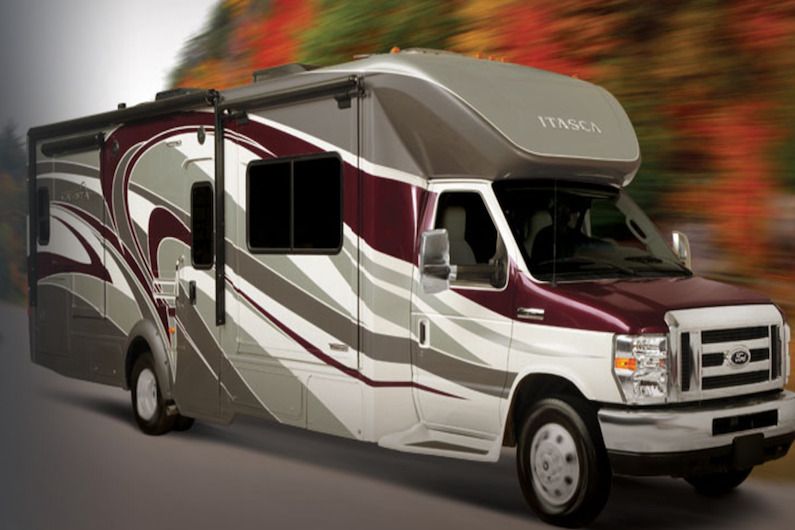
Yes, there are Class Cs that go beyond the 26-foot mark. Some up to 41 feet.
They’re Super Class C RVs and measure in at well over 30 feet, with some up to 41 feet. They are built on a heavy-duty truck chassis and are able to tow huge loads.
To be clear, “Super Cs” is really a made-up RV classification, too, just like the B + RV. Most of the Super Cs would be on the Ford F550 or the Freightmaster-type chassis. They have much more in common with Class A motorhomes than their smaller cousins, including multiple slides. But for some reason, they are included in the “small” motorhome grouping.
Here's a video we did on this species of the Class C RV:
For example, we took a look at the Winnebago/Itasca Cambria, which, built on the F450 chassis and at 32 feet, is on the smaller end of the Super C classification but still way longer than its distant C, B-Plus, and B motor home cousins. (Winnebago calls it a basic Class C.)
The spacious interior features a nice lounging sofa that will make into a bed and across from it is a dinette area that also makes into a bed.
The bedroom features a queen-sized bed with lots of dedicated cabinets and storage places for all of your clothes. It has a full standalone shower with plenty of room in its standalone bathroom with lots of extra room and storage space, which everybody appreciates.
Further, it's got a great kitchen. Full-fledged stove, lots of storage cabinets underneath.
So, Class B vs Class C RVs…
Bottom line: It’s really big and yet somehow maintains the Class C classification. It's pretty cool though. We'd like to know what you think about this and invite you to submit comments below.
Published on 2023-12-25
Mike Wendland is a multiple Emmy-award-winning Journalist, Podcaster, YouTuber, and Blogger, who has traveled with his wife, Jennifer, all over North America in an RV, sharing adventures and reviewing RV, Camping, Outdoor, Travel and Tech Gear for the past 12 years. They are leading industry experts in RV living and have written 18 travel books.
2 Responses to “Class B vs Class C RVs: The Expert Guide”
December 26, 2023at3:18 pm , George Herberger said:
We went from a 2005 Roadtrek 190 to a 2013 Winnebago View 24V and do not regret it. More room for living and storage. More tank capacities.
December 27, 2023at10:58 am , Team RV Lifestyle said:
Thanks for sharing, George! Team RV Lifestyle
Leave a Reply Cancel reply
Your email address will not be published. Required fields are marked *
Related Posts

Towable vs. Motorized RV: Which Is Right for You?

7 Keystone Arcadia Fifth Wheel Mods

11 Best Small Class C & Class B Plus RV Models (2024)
- Skip to primary navigation
- Skip to main content
- Skip to primary sidebar
- Skip to footer
Journey With Confidence
Class A RV vs Class C: Which One Is Right For You?

- RV Lifestyle
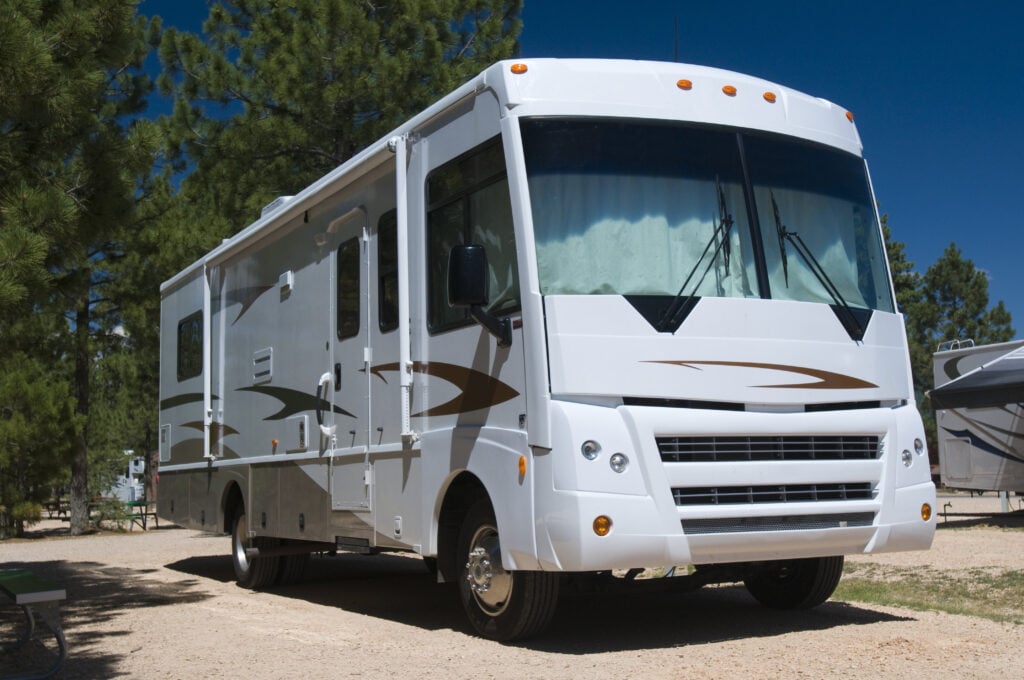
Should You Get A Class A Or Class C Motorhome?
If you’re looking for a new RV, you may have narrowed it down to a Class A or Class C motorhome. These are both popular builds that have some similarities. However, they have pros and cons that are worth considering. Of course, the best vehicle is the one that fits your situation.
These motorhomes are the most common ones to find on the market nowadays. Class B motorhomes (aka camper vans ) are great for short-term journeys, but they aren’t suitable for large groups or extended camping trips. Before you can find the perfect RV for you, it’s time to compare and contrast Class A and Class C motorhomes.
Class A RV Pros and Cons
Large build.
First of all, Class A motorhomes are some of the largest on the market. The only other models that come close are fifth wheels. Generally, a Class A motorhome will be at least 30 feet long, and some are closer to 40 feet. This gives you a spacious interior that has room for plenty of furniture, appliances, and open space. If you’re looking for the biggest option, a Class A is what you want.
Multiple slideouts
Because they are so long, these motorhomes can also accommodate a large number of slideouts. Most have at least one or two, but some have four or more. In some cases, there will be a single slideout that runs the entire length of the vehicle. Either way, there are plenty of ways to expand the usable space of these RVs.
Tons of undercarriage storage
If storage is a deciding factor between a Class A or Class C motorhome, choose a Class A RV. In addition to a wealth of interior closets, cabinets, and overhead storage, these vehicles are also equipped with storage lockers under the floor. These can be accessed from the outside, and they’re perfect for storing camping gear and other bulky items that wouldn’t fit inside.
Luxury designs and amenities
Because Class A motorhomes are so large and expensive, they can provide many luxuries and amenities that other RVs can’t. They are usually designed with high-quality furniture and decoration schemes. The appliances are also top of the line. If you’d like to have a luxurious road trip or campout, you can’t beat the comfort of a Class A motorhome.
One of the biggest drawbacks of a Class A RV is the price. Because they’re so large and luxurious, they cost a pretty penny. You can expect to pay at least $100,000 for a new model and sometimes closer to $250,000. That’s a significant investment that could go toward a cheaper RV or even a house! You need to be very committed to the RV lifestyle for this price to be worthwhile.
Gas guzzlers
Class A motorhomes are notorious gas guzzlers. You’ll pay quite a bit to fill them up, and you’ll need to do this frequently. So in addition to the high initial price, it’s going to remain expensive as long as you drive it.
A 30-40 foot vehicle is definitely a different beast compared to a typical car or truck. You may need to take special driving classes to feel comfortable behind the wheel. Even if you’re confident, a Class A motorhome is bulky and slow to respond on the road. It takes some getting used to and will inevitably spark some road frustration from the drivers around you.
Hard to find parking
Parking is also a challenge with one of these RVs. If you travel in urban areas, it’s going to be hard to find a spot that can accommodate you. Some campgrounds also have length limits, so you may be somewhat limited in your options there as well.
Class C Pros and Cons
One of the most significant benefits of a Class C motorhome is the lower price. They are smaller than Class A models, so you can definitely find a better price range.
Maneuverability
Generally, Class C RVs are easier to handle than their larger Class A counterparts, making them more suitable for navigating through tight spaces or busy campgrounds.
Maintenance
In many cases, Class C motorhomes are built on standard truck or van chassis. This means parts can be more readily available and mechanics more familiar with their engines, potentially leading to lower maintenance costs.
Easier resale
Due to their lower initial cost and popularity among a wider range of RV enthusiasts, Class C motorhomes can sometimes be easier to resell than specialized or luxury Class A models.
Less intimidating for novices
For those new to RVing, a Class C often feels less intimidating to drive and operate than a large Class A motorhome.
More fuel efficient
Class C motorhomes still require a good amount of fuel, but they are much more efficient than Class A models. They’re also easier to handle on the roads because of their smaller design. You can save money when you buy them and avoid costly refill trips.
Smaller than Class A motorhomes
Although there are various vehicle lengths, Class C motorhomes are generally smaller than their Class A counterparts. Even the largest options usually don’t come close. However, if you’re looking for a compromise between a Class A and Class C motorhome, you could always explore Super C RVs. They are essentially extra-large versions of the Class C design.
Less storage space
These vehicles don’t have the spacious undercarriage storage compartments. As such, they are limited in their ability to pack gear on long trips. While you can tow additional storage, it’s not the same as having everything packed into one vehicle.
Not as luxurious
While many Class C motorhomes are still quite luxurious, they might not have the same level of high-end finishes and amenities as a Class A. If you’re looking for the ultimate in RV luxury, Class A is typically where you’ll find it.
Limited slideouts
Compared to Class A motorhomes, Class C RVs generally have fewer slideouts. While this might not be an issue for everyone, if you’re looking to maximize your interior space with multiple slideouts, a Class A motorhome might be a better choice.
When it comes to choosing between a Class A or Class C RV, it really boils down to your personal needs and preferences. Both types of RVs have their unique strengths and weaknesses.
If you’re still having trouble deciding between a Class A and a Class C motorhome, consider the primary uses and needs for your travels:
Choose a Class A if:
- You require a lot of space.
- You plan on using your RV for full-time living .
- Storage space is a priority.
Choose a Class C if:
- You’re not comfortable driving a massive RV.
- You’re looking for a more affordable RV.
- You want a versatile vehicle that can serve multiple purposes.
We hope this guide assists you in your decision-making process. Purchasing a motorhome is a significant commitment, and we hope you find the one that perfectly suits your needs.
No matter what you choose, the most important thing is to ensure it aligns with your lifestyle, travel habits, and budget. Before making a final decision, it might be beneficial to rent each type for a short trip to get a feel for their differences in a real-world setting. This hands-on experience can be invaluable in helping you make an informed decision.

Motorhome vs Travel Trailer: Which is Best for You?

As an Amazon Associate, we earn from qualifying purchases. We also earn from other affiliate websites. See our full disclaimer .
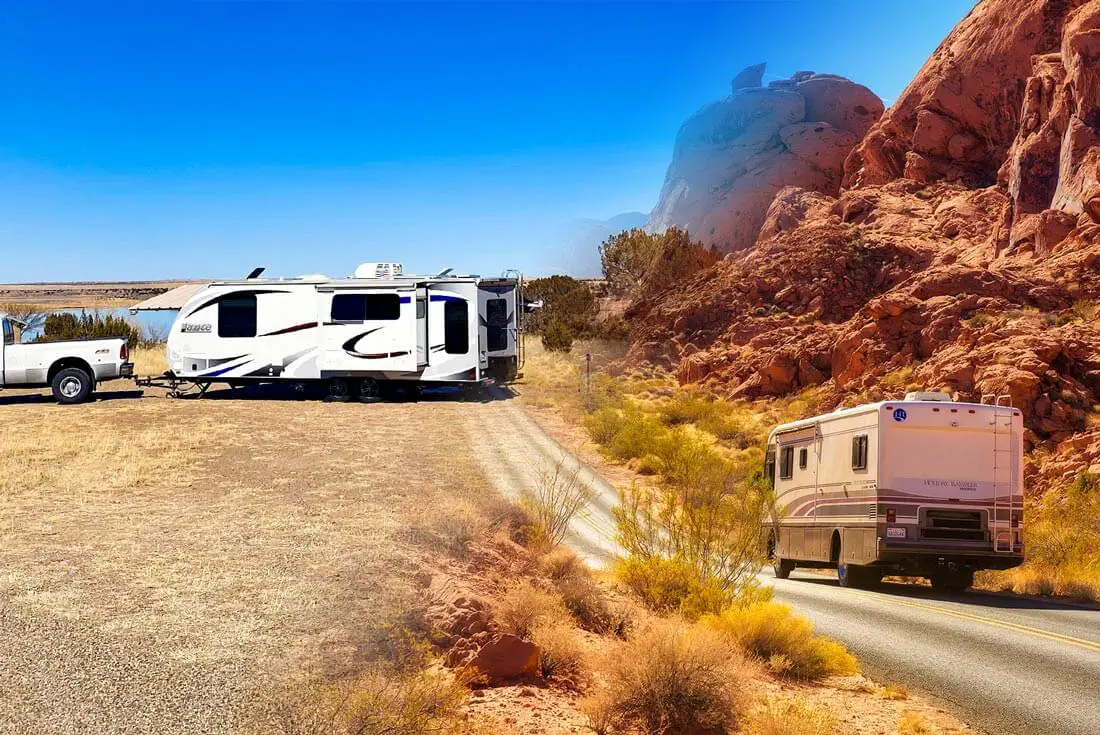
When planning your road trip or camping adventure, one of the biggest decisions you must make is what type of RV you want to travel in.
When it comes to motorhomes vs travel trailers, both have their pros and cons and their own unique features and benefits. What type of RV you choose depends on your camping needs and preferences.
Motorhomes are self-contained vehicles that come with all the amenities you need for comfortable travel, while travel trailers are towed behind your vehicle and offer more flexibility in terms of size and layout.
In this post, we’ll compare these different types of RVs and help you make an informed decision on a motorhome vs travel trailer.
What is an RV?
Before we get started, let’s clear up any questions you have about what an RV (recreational vehicle) is.
RV is a broad term used to describe a drivable or towable vehicle with a living area, kitchen, and/or other accommodations. This includes:
- class A motorhome (largest type of motorhome built on a bus chassis)
- class C motorhome (moderate-sized motorhome built on a cutaway van chassis)
- class B motorhome (small motorhome built on a van chassis)
- travel trailer or bumper pull RV (also includes teardrop trailers and popup campers)
- fifth wheel (requires a hitch that attaches inside the bed of the tow truck, due to this setup, they are much taller than travel trailers)
- toy hauler (these are usually fifth wheels, but travel trailer toy hauler models exist)
- truck camper (sits on the bed of a truck)
- camper van (converted van, whether professional build or DIY)
When we compare motorhomes and trailers below, we’ll also talk specifically about the types of RVs mentioned above.
For example, class As differ from class Cs in many ways since they are usually bigger and more costly to maintain. Fifth wheels also have other pros and cons. Although they aren’t travel trailers, they are a similar towable RV, so we’ll include them and mention them specifically.
Now that you know the different RV types, let’s get started!
1. RV Travel Days and Driving
One of the big differences between motorhomes and travel trailers is the driving experience. We’ll cover a few ways these RVs differ when they’re on the road.

The length of your RV is one of the greatest impacts on your driving experience. The longer your rig, the more concentration it takes to drive, and the more challenging it will be to maneuver.
A travel trailer setup will almost always be longer than a motorhome comparatively. However, a class A motorhome pulling a toad (second vehicle) and a shorter fifth wheel towed by a short bed truck may be relatively the same length once it is hooked up and on the road.
RV Width and Height
Smaller motorhomes are typically easier to drive, although they can be wider than most travel trailers. Class A and C motorhomes are usually at least 8 feet wide and, more often than not, they push the maximum width of 8.5-feet at 8.45-feet wide (talk about cutting it close).
Width and height will both impact your travel day and route planning. Both can be more difficult in a larger RV if you run into a low bridge or drive through a narrow downtown area.
The bigger the RV, the more you’ll have to plan your route carefully. Here are the average height of RVs by type.
- Fifth wheels have a much higher profile, as well as class A motorhomes (usually around 13 feet).
- Class C motorhomes are typically around 11-feet (including the AC on top).
- Travel trailers can vary, but on the lower end you can find profiles around 10-11 feet, and even as low as 9.5 feet (say hello to the compact design of an Airstream).
- Class B motorhomes are anywhere from 7-9 feet, with many of the high-end models bringing up the average.
One of the big benefits you’ll hear from motorhome owners is the access you have while driving your RV. Whether you need to go to the bathroom, make a sandwich, get a refill on your drink, or grab your phone charger – these tasks are barely a thought in a motorhome (unless you’re traveling solo).
Having access to almost everything while driving also takes some of the stress out of the departure on travel days. You don’t need to remember every little thing before you get on the road – just grab it when you need it!
Visibility While Driving
Class A motorhomes have the advantage of visibility in the front of the RV due to the flat design of the windshield and many of the diesel engines being located in the rear of the RV.
However, these days there are many options for cameras in both motorhomes and trailers to see almost everything around you. Whether you’re backing your RV or driving it down the highway, you can keep an eye on all the angles.
Even if you have an older RV or vehicle for towing, you can add cameras for more visibility. For example, we tow our travel trailer with a 2003 F350. We added both a backup camera and a hitch camera to make driving the truck and hitching up a bit easier.
Backing Your RV
Overall, motorhomes are generally easy to back into a campsite since they are one vehicle and don’t have any pivot points like a trailer. Fifth wheels tend to be easier to maneuver due to the pivot point location in the bed of the truck as opposed to a bumper pull travel trailer . When turning a fifth-wheel trailer, this creates a longer and less dramatic response time.
Trailers are generally the hardest RVs to back. If you’re traveling with a partner, you’ll want to get your walkies out and practice before heading out on your first trip.
WINNER: From the access you have while driving to backing into your camping spot – we have to give this category to motorhomes for making travel days a little more enjoyable and convenient.
2. rv campsite setup and breakdown.
Another difference between these types of RVs to consider is the setup and breakdown of your campsite.
Motorhomes are typically much easier to set up than trailers. Sure, they both have the same hookups. Slideouts will also work very similarly in a motorhome as in a trailer. However, unhooking and stabilizing a trailer requires more time and effort than a comparable motorhome. (See our travel trailer setup checklist for more details.)
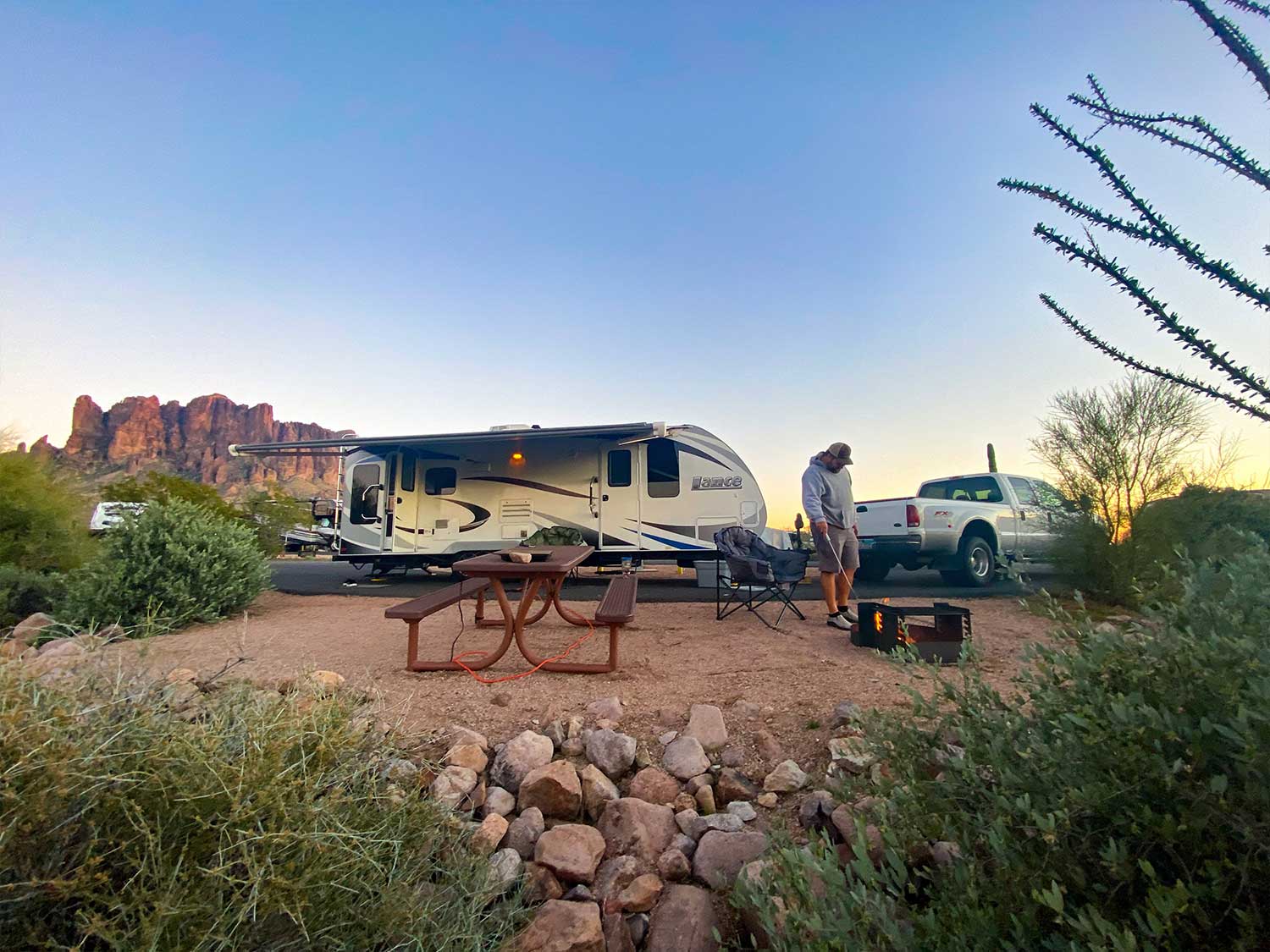
It’s also much easier to get going when you’re staying in the motorhome.
For example, when we had our class C, one of us could be driving the RV out of the campground while the other was still securing a few things, grabbing drinks, etc. In a towable RV, you need to have a checklist for everything you need in the tow vehicle and pack it all.
Also, suppose you forget to put something away, or a cabinet flies open. You’ll immediately be aware of this in a motorhome. In a towable, you have no idea what’s happening (or flying around) in the RV until you get to your next stop.
NOTE: If you have pets, motorhomes tend to make easier travel days. You avoid moving the animals back and forth, and they can find a comfy spot in the motorhome where they like to ride. It’s completely doable in a trailer. It just requires more planning and time for your pets to adjust. (See more about pet RV travel in our RVing with Cats post.)
Winner: many rvers say motorhomes are great for travel, and trailers are great for living. there’s definitely something to that, which is why motorhomes easily take this category, 3. boondocking and off-grid camping.
Boondocking or camping without hookups is usually more associated with travel trailers, but motorhomes can be outfitted for boondocking too.
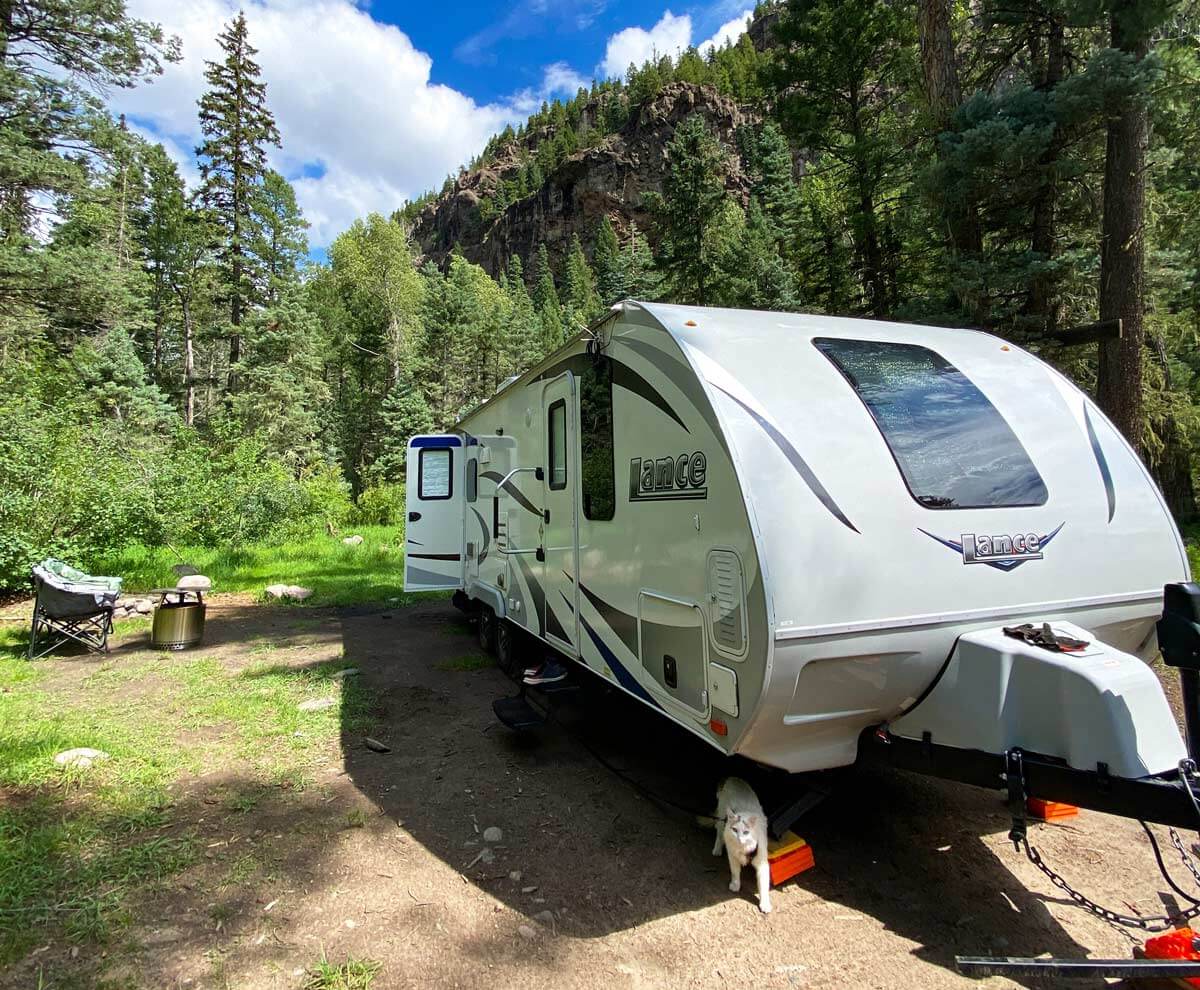
Most towable RVs (travel trailers, fifth wheels, etc.) will have a higher clearance needed to reach remote locations. In addition, the tow vehicle is more likely to have four-wheel drive.
Some class Bs are very well-suited for boondocking and unpaved roads, and even Class Cs can be modified to add higher clearance. Still, these are more the exception than the rule when looking at the majority of motorhomes on the market.
Suppose you tow your travel trailer with a truck. In that case, you’ll also have the truck bed for off-grid supplies like a water bladder (for additional freshwater) and a honey wagon (for pumping the black tank).
Still, there are boondocking locations with smooth roads that even class As can handle.
WINNER: This category goes to towable RVs for being the most boondocking-ready. Although it’s worth noting that some class Bs are built with off-grid excursions in mind.
4. rv gas mileage.
Gas mileage on motorhomes versus trailers can vary greatly depending on the type of motorhome or the size of the trailer.
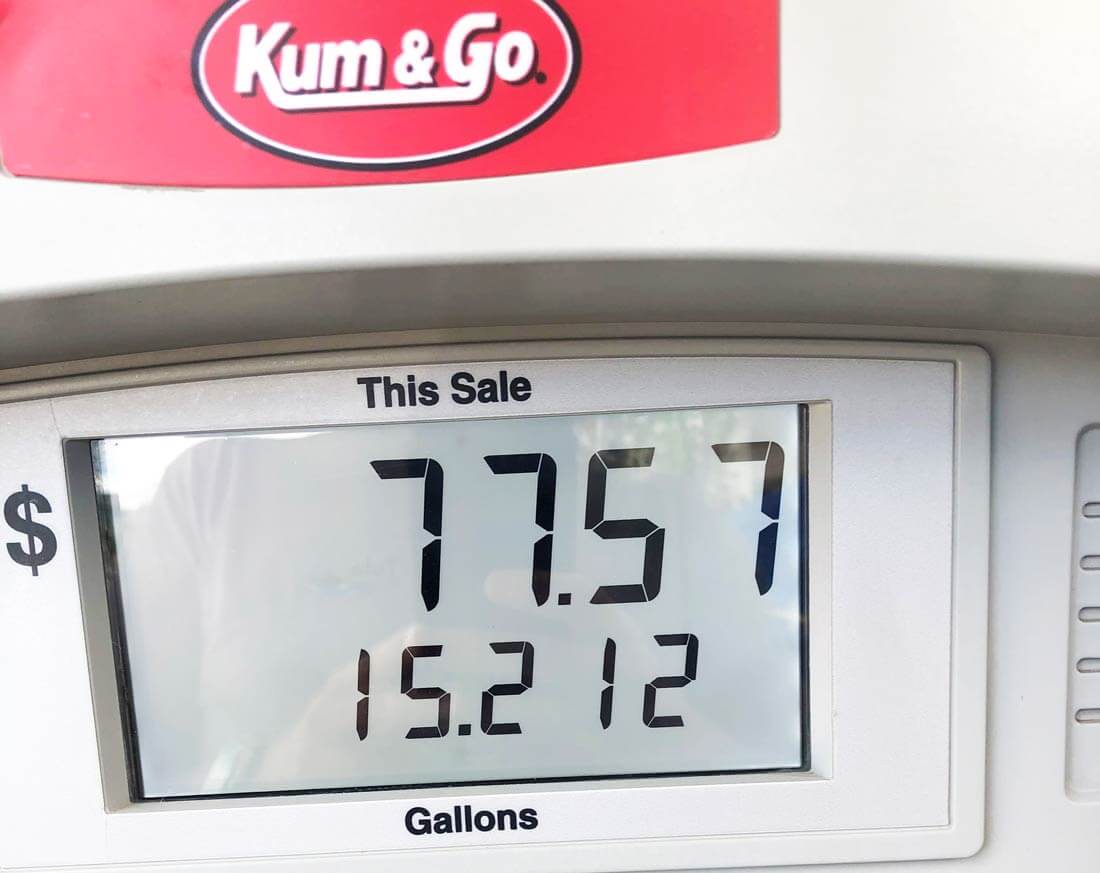
Class A motorhomes are almost always going to get low mileage (6-9 mpg). Class C models won’t do much better (10-12 mpg). Only class B models have better mileage due to their size.
With travel trailers and other RV towables, miles per gallon are determined by the size and weight of the trailer and the size and engine of your tow vehicle. This can vary greatly from under 10 mpg to around 14 mpg (although some owners report slightly better highway mileage).
With most motorhomes or RV towables, your mileage will range from 9-14 mpg. The exceptions are class B motorhomes, where you can get relatively good mileage (some up to 25 mpg), and class A motorhomes, where you’ll get even less than the range mentioned above.
Learn more about how to save on fuel for your RV .
WINNER: We couldn’t pick a clear winner for this category. There are just a few too many variables. However, the quick and dirty answer for getting the best gas mileage is to pack light and travel as tiny as possible!
5. getting around while rv camping.
One of the most significant advantages of travel trailers and RV towables is the benefit of having a separate vehicle. You unhook your truck or SUV and have a vehicle ready to transport you on adventures or errand runs.
If you have a smaller motorhome , you may be fine getting into parking areas. However, large motorhomes will be tough to drive around just anywhere. You will likely need a ‘toad’ (a vehicle you tow behind your motorhome) or, at the very least, bikes or e-bikes.
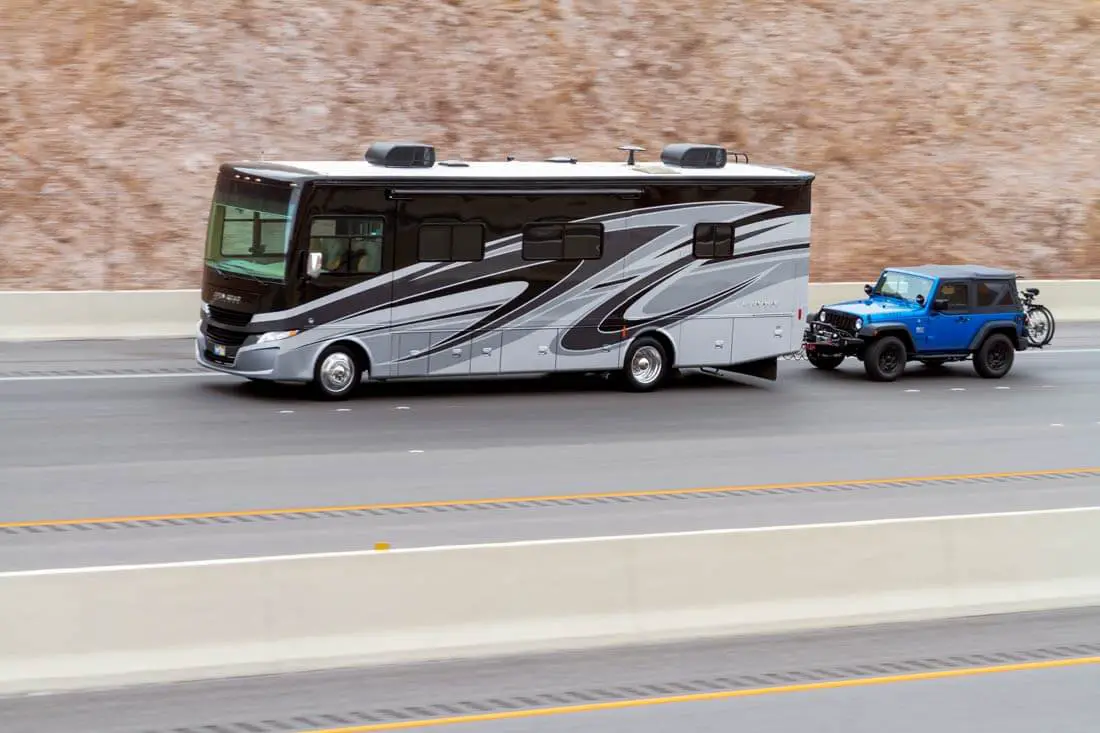
If you have pets, running errands in your motorhome might be more complicated with the furry ones in tow.
For example, we camped in Florida during the summer months in a class C without a toad, and it was challenging to go to the store. Someone had to stay in the motorhome with the cat to keep the AC running, or we had to make quick stops.
WINNER: Although you can get around without a separate vehicle by planning ahead, travel trailers and other towable RVs take this category since the process is much easier!
6. living space in the rv.
Both motorhomes and travel trailers of similar size have comparable living spaces. Either RV type can also have slideouts which will increase the space. The differences come in with the height and layout of the RVs.
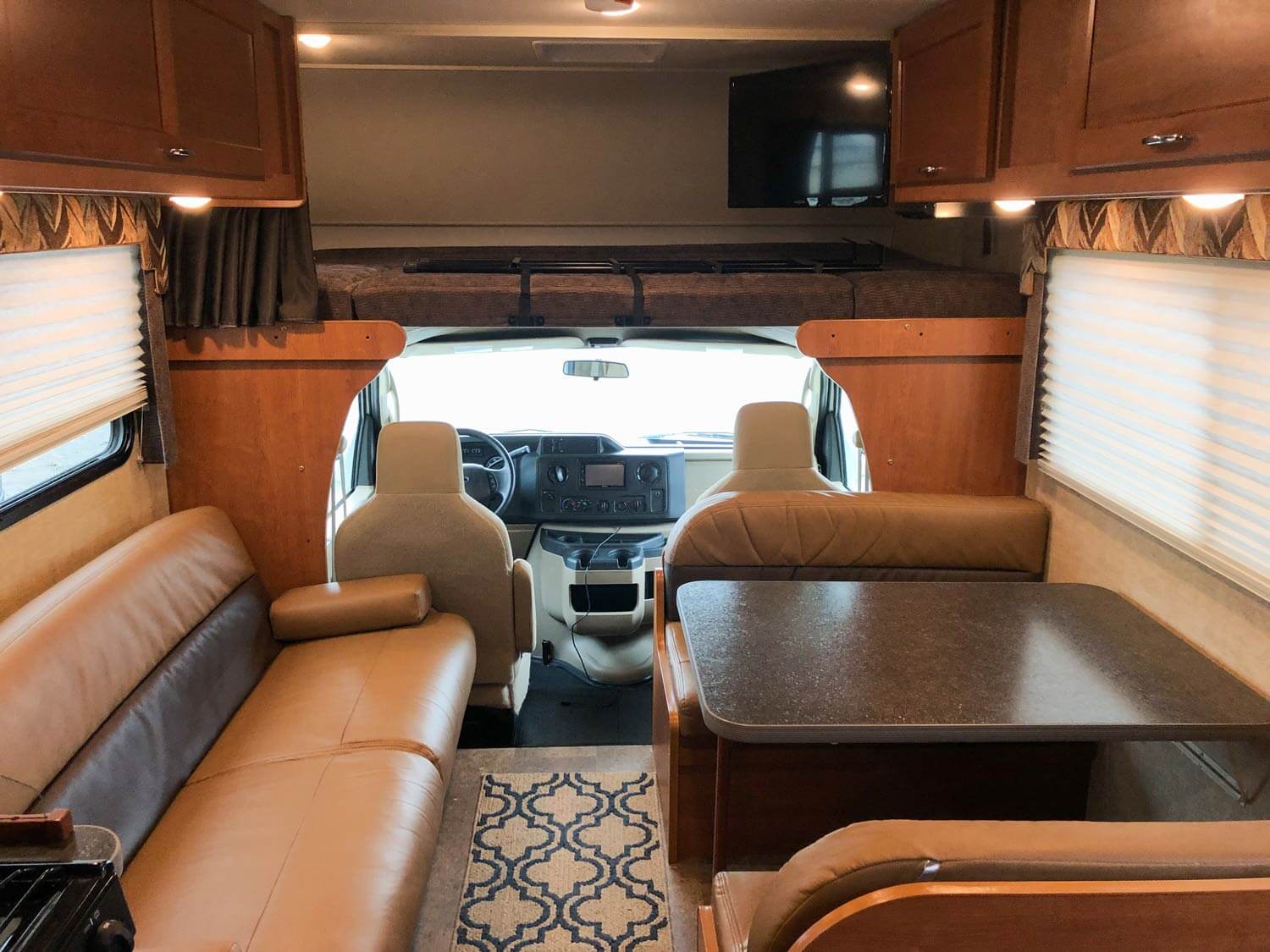
As mentioned above, class C motorhomes average a slightly higher profile than travel trailers, while class Bs are shorter and class As taller.
Motorhomes have less layout flexibility since the cab must be at the front of the vehicle. Because the cab is in the front of the motorhome, the bed almost always goes at the back (with the exception of some class B and small C RVs opting for a Murphy bed).
Travel trailer manufacturers typically place the bed in front of the trailer, leaving the rear open for kitchens, bunks, dinettes with wrap-around windows, and more appealing designs than you might get with a motorhome.
Cab Space in Motorhomes
Although the cab area in a motorhome can have a negative impact on the layout, it can also double as living space. This area is made multi-functional with swivel captain chairs and even foldable or swivel tables that come off the wall to create dining or desk space.
NOTE: When also comparing fifth-wheel trailers, these RVs and toy haulers maximize living space with both flexible layouts (including the mini garage of a toy hauler) and height with an average of approximately 13-feet.
Winner: although this is a close one, we have to give the living space category to travel trailers for the flexible layouts that allow rv owners to choose a living space that works for them., 7. storage space in the rv.
Storage is a big consideration when you’re choosing an RV. Although this will vary by RV brand as well as the type, here is a general overview of storage space in drivable vs towable RVs.
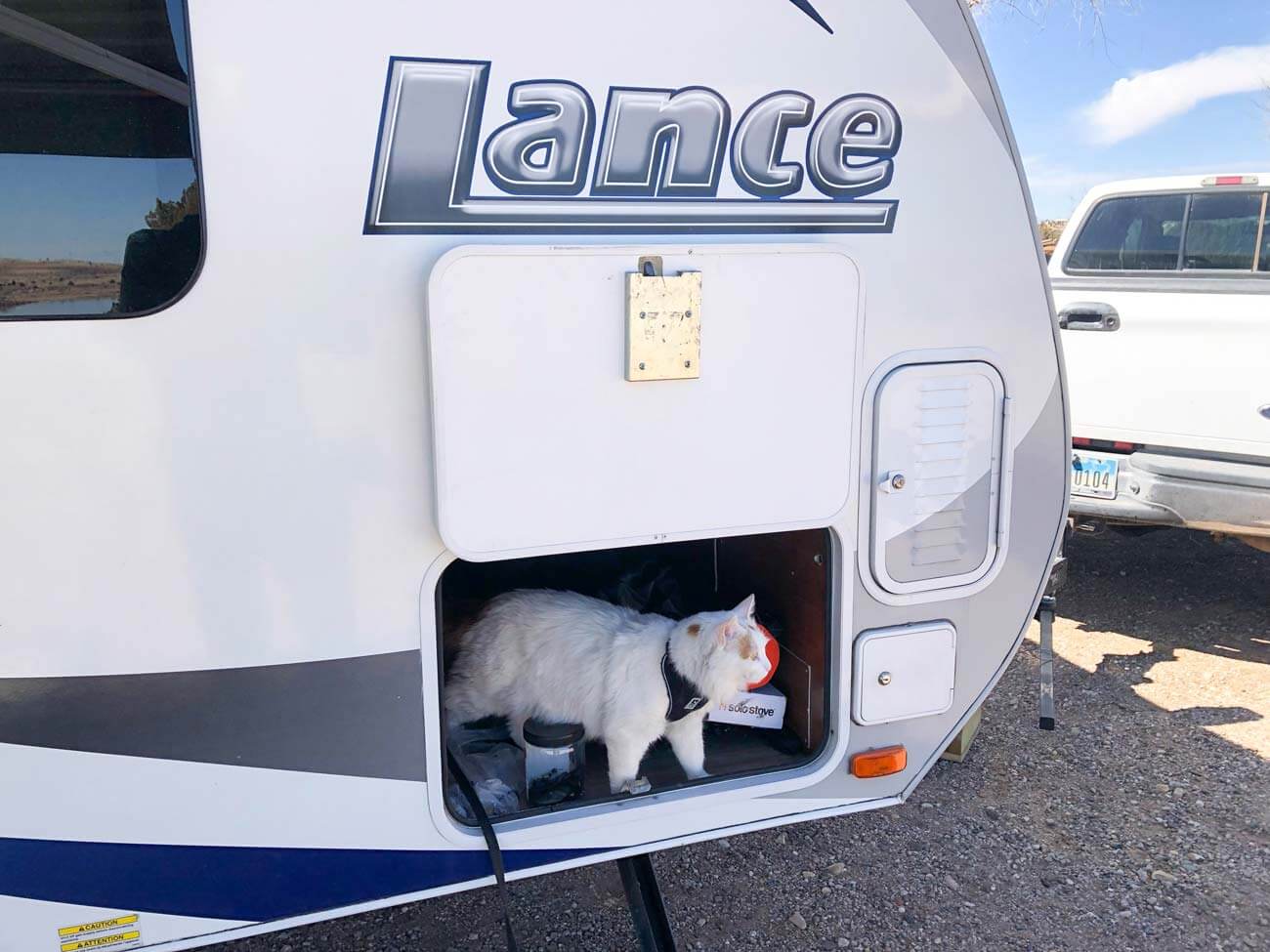
Exterior Storage
Motorhomes are known for having a lot of ‘basement storage’ or compartments under the motorhome – especially class A motorhomes. Pass-through storage compartments that can hold large storage bins, folding bikes, and even larger travel toys are benefits of the class A.
Class C motorhomes can have a good amount of basement storage as well – especially in the rear of the motorhome. Even if it’s not a true pass-through storage compartment, it might be accessible from one side of the vehicle in the rear.
Travel trailers generally have less exterior storage space (especially smaller trailers), although they have some exterior storage compartments. Some larger fifth-wheel exterior storage can rival that of a comparable class A motorhome.
Interior Storage
Class C motor homes can actually have a fair amount of interior storage space. They typically have an extra bunk over the cab (typically a queen size) that can be used as extra storage space. Class A motorhomes have ample storage space. Some even have cabinets that will fit a washer/dryer combo.
Don’t discount class Bs here. If you are looking for a smaller RV, class Bs are meticulously thought out to maximize storage in a tiny space. You’d be surprised what you can fit in these.
Travel trailers typically have less space than comparable size motorhomes. You’ll find more deep, narrow cabinets in travel trailers and ununiform cabinets that utilize every inch of available space.
For the most storage space in a trailer setup, check out a fifth-wheel RV that utilizes its tall ceilings to add more storage.
GVWR and Storage Space
When looking at storage space, consider the GVWR (gross vehicle weight rating) of your RV. Even though many RVs have storage space, you might be unable to use the space to its full extent if it puts your RV overweight. More times than not, weight becomes the issue before a lack of storage space.
NOTE: Class A diesel pushers tend to have a higher GVWR because the diesel engine allows for more weight. This goes for class B diesel models as well.
Utilizing a truck bed for storage.
A trick that helps give travel trailers extra storage is using the truck bed to store things. Adding a bed cover or camper shell to your truck bed can create a ‘garage’ for your RV that can fit a ton of stuff and (depending on your truck) a lot more weight. This is the main reason, as full-time RVers, we pull our lightweight trailer with a dually truck.
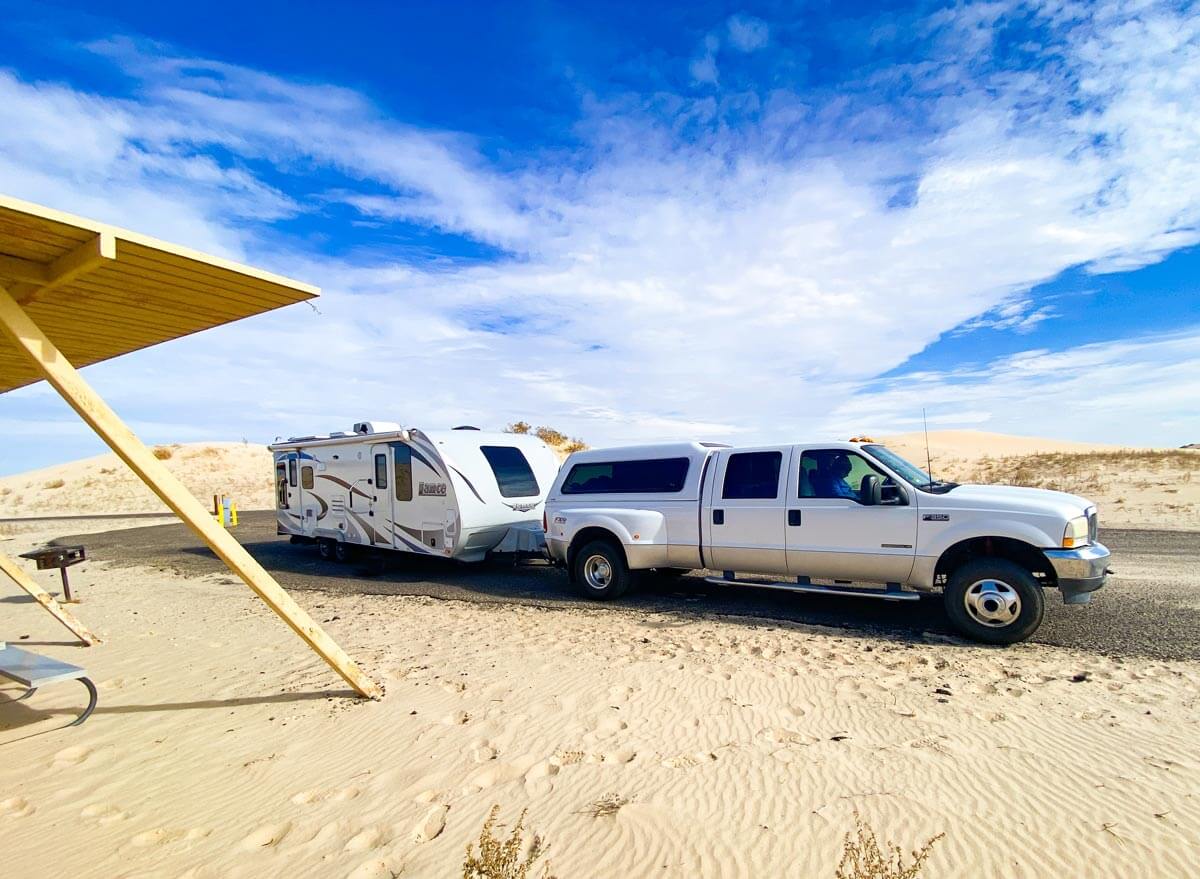
If you’re wondering about fifth-wheel owners, they aren’t out of luck either. Specific bed cover models can be rolled up or retracted and secured in the open position when the trailer is hooked up. Once at the campground and the trailer is unhooked, the bed cover can be closed. This adds additional space and security for storing outdoor gear at your campsite.
Again, be sure to check the GVWR of your truck before loading it down, and remember to factor in the tongue weight.
WINNER: Although you can add tow vehicle storage space when pulling a travel trailer, motorhomes have more storage right off the lot without modifications.
8. cost of the rv.
The price point for motorhomes is generally higher than comparable travel trailers since they have an engine. The benefit? You can live in a motorhome, AND it can take you anywhere.
However, a motorhome can be the cheaper RV option if you’re looking for an all-in-one solution and don’t already own a tow vehicle.

On the other hand, if you already have a vehicle capable of towing a trailer, a towable RV can be an affordable choice for your setup and will get you on the road quickly. This is why most RVers that aren’t full-time tend to have travel trailers or fifth wheels.
For more on RV living budgets and costs, check out our post on the real cost of RV living .
Motorhome vs Trailer Insurance Costs
RV insurance for motorhomes is typically more expensive than travel trailers since the cost of motorhomes is higher. However, with a trailer, you need to also insure your tow vehicle, which is something to consider.
You are only required to have insurance on a travel trailer if you are financing since the financer will require insurance. However, we do not recommend going with insurance since your auto insurance will only cover a specific amount of liability and only when the trailer is in motion.
For full-time RVers, full-timers insurance on either a motorhome or travel trailer is relatively comparable. We’ve owned a similar size motorhome and travel trailer and paid almost the same insurance plan cost annually for both.
We’ll cover maintenance costs in the next section.
WINNER: Travel trailers squeak out the cost category since they are typically the most affordable RV option, especially if you have a vehicle capable of towing.
9. rv maintenance and repairs.
Motorhomes, like any vehicle, require regular maintenance and repairs. The larger the motorhome, the more expensive it will be to maintain.
Travel trailers also require regular maintenance, but since they don’t have engine upkeep like drivable RVs, they can be less costly to maintain.
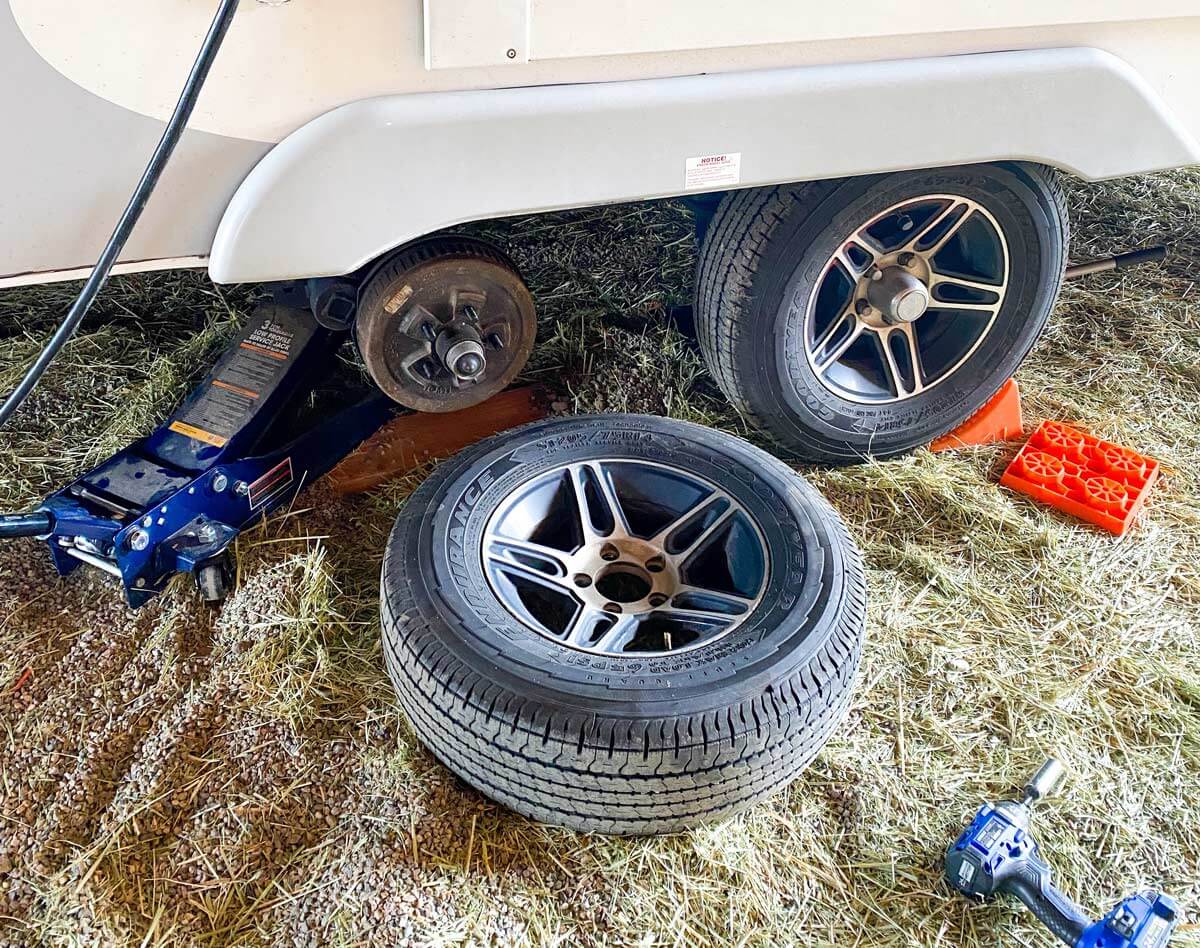
Large class A motorhomes have extra features such as air bag suspension systems and oversized tires that can be even more costly to repair and replace.
However, it’s crucial to be aware that motorhomes and travel trailers require regular maintenance to ensure their safety and longevity. Also, the more systems you have in your RV, regardless of whether it’s a motorhome or towable RV, the more it will cost to maintain those systems.
When considering the maintenance and repair costs of each option, factor in your own skill level and comfort with DIY repairs since being able to troubleshoot and perform maintenance on your RV can save you a lot of money.
NOTE: It is becoming increasingly difficult to find reliable people to repair RVs, and even harder to have repair work done in a timely manner.
Winner: ultimately, travel trailers come out on top for maintenance. just remember, you might have a large truck or tow vehicle to maintain as well., 10. rv depreciation.
Just like any vehicle, motorhomes and travel trailers depreciate. Although all types of RVs lose roughly 20% of their value when driven off the lot, some RVs depreciate quicker in the first five years than others.
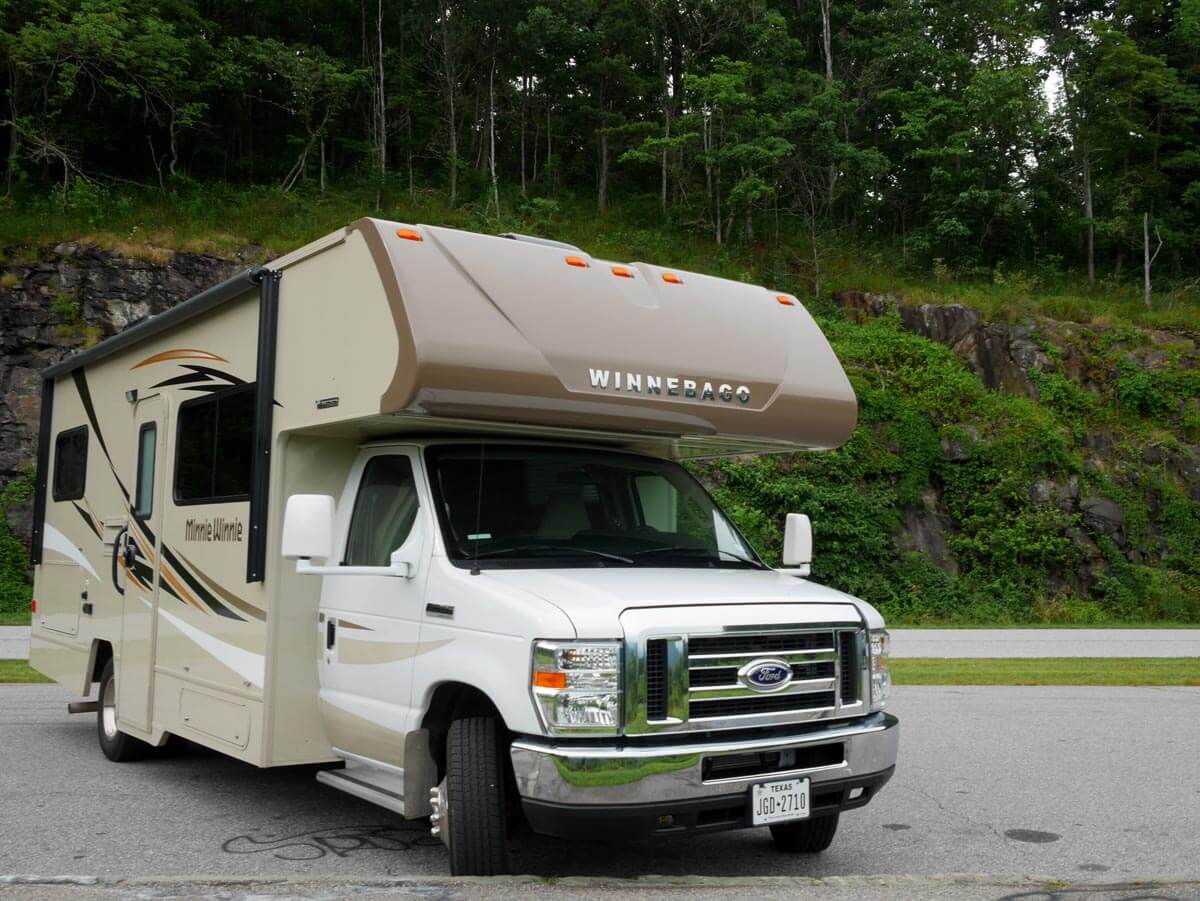
Class A motorhomes tend to depreciate quicker than class C motorhomes. These large RVs will also cost more upfront when buying a new motorhome. Class Bs don’t depreciate quite as fast as class As, and some brands will even hold their value well.
Class C motorhomes have the least amount of depreciation for drivable RVs because of their affordable price point, making them more in demand in the RV market.
Buying new versus used. It’s important to note that depreciation in the motorhome category is mostly dependent on the year rather than the mileage due to damage factors other than wear and tear on the engine.
On average, travel trailers typically depreciate about the same as class C motorhomes in the first five years (around 40%).
Fifth wheels depreciate a little quicker compared to travel trailers in the towable RV category, mostly due to their average size. The bigger the RV, the faster they depreciate.
Here are a few things to remember when it comes to depreciation:
- Motorhome depreciation is affected by the year and the mileage, but not just high mileage. Low mileage is also bad since it may have sat unused for a long time.
- Smaller quality RVs will depreciate less than larger ones. (This rule doesn’t apply to popup campers which depreciate rapidly.)
- Molded fiberglass travel trailers such as Oliver or Airstream will also hold their value, as well as quality truck campers.
- All depreciation points can vary depending on the specific make and model, as well as the overall condition and maintenance of the RV.
To find more information on RV depreciation, check out this detailed RV depreciation guide .
WINNER: Travel trailers claim the win for this last category since they have less depreciation after the first five years than motorhomes in general. However, this depends on the size and model in question, and it is about the same when compared to class Cs.
Which is better – a motorhome or travel trailer.
Even though travel trailers came out the winner in this comparison, you’ll still want to evaluate which RV is right for you.
We love our travel trailer, but because we like to move often we really miss the flexibility of our motorhome. Surprise – the best RV for you depends on your personal situation, needs, and preferences.
Whichever you choose, motorhome or travel trailer, make sure to do your research and ask lots of questions. You might also want to check out our article on the Best Motorhome Tips for Beginners .
By carefully weighing the pros and cons of each option and assessing your own needs, you can make an informed choice and enjoy the ultimate road trip or camping adventure!
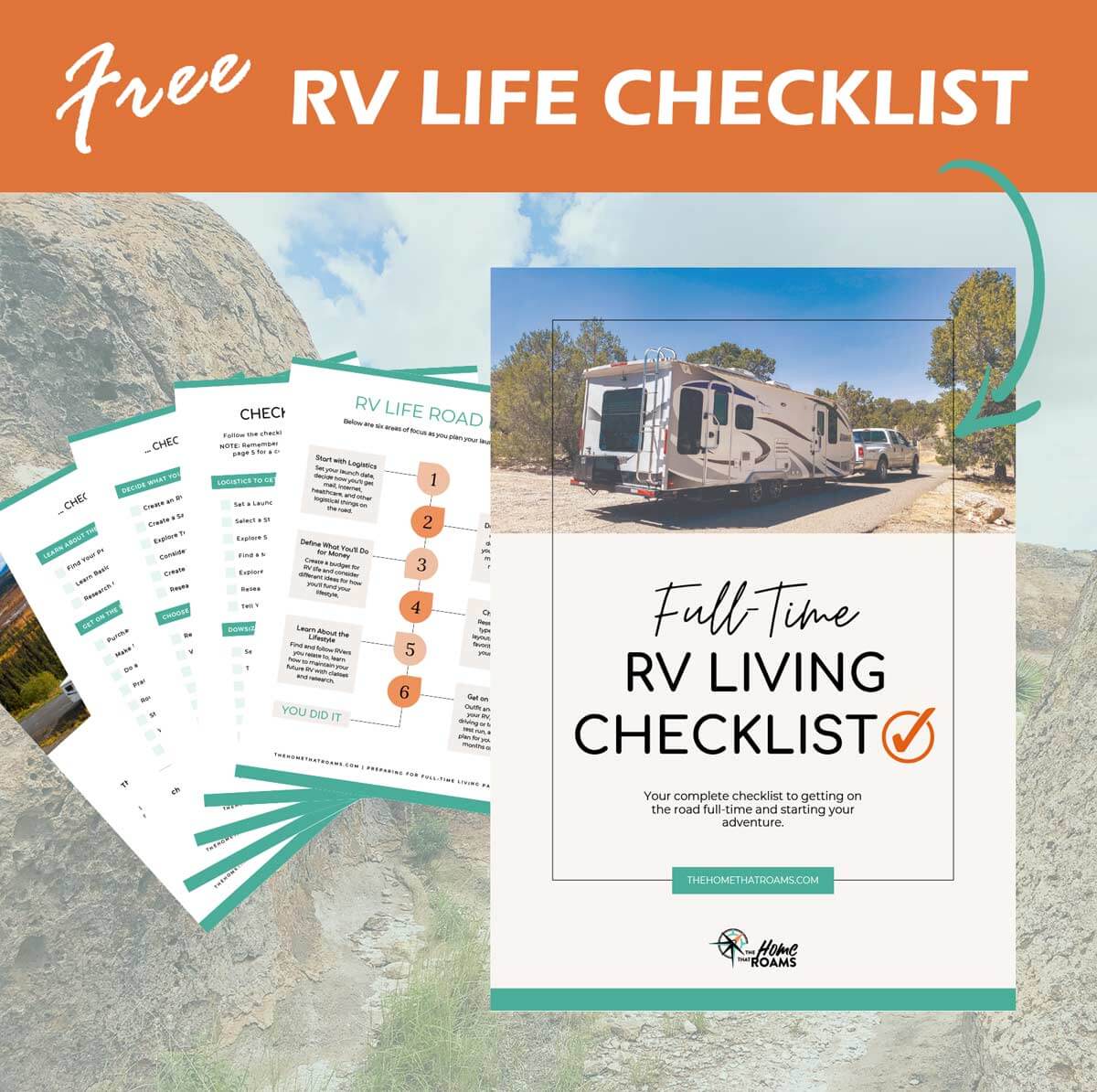
Your Guide to Launching RV Life
Road Map & Checklist – Start Now!
Unsubscribe at any time. View our privacy policy .
Want more beginner tips on how to choose an RV?
Check out our guide to preparing for full-time RV living, including info on choosing an RV, pros and cons of the lifestyle, RV gear, and more.
Like this post? Save it on Pinterest for later.
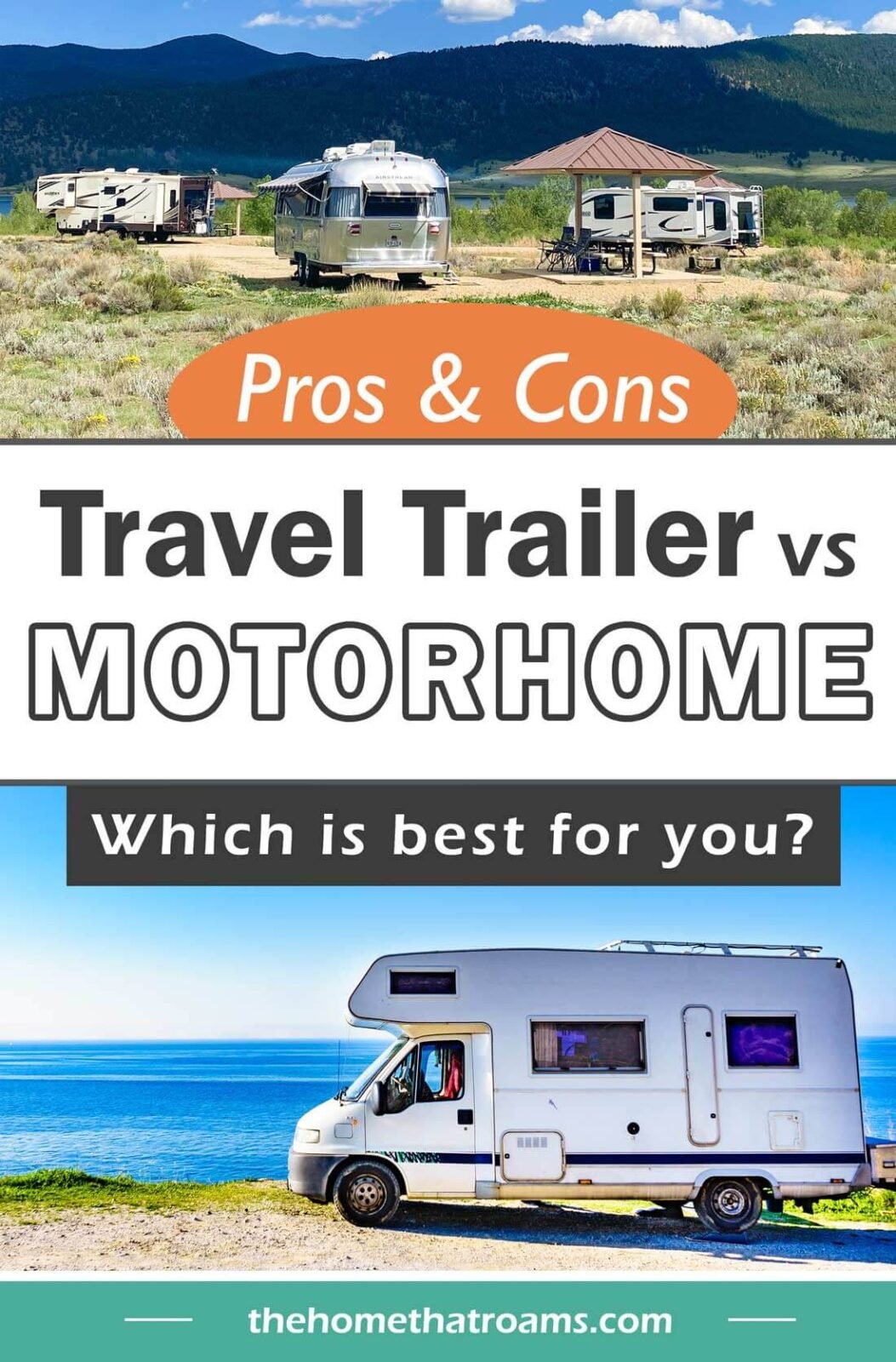
Morgan, the founder of The Home That Roams, has been living nomadically for over five years. She began her journey traveling across the U.S. in a motorhome and cruising on a liveaboard sailing catamaran. Currently, she lives full-time in a travel trailer, sharing resources on RV living and boat life to help others downsize their lives and thrive in an alternative lifestyle.
Leave a Reply Cancel reply
Your email address will not be published. Required fields are marked *
Sign Me Up!
Learn how to live in an rv.
Get weekly tips on how to start traveling full-time in an RV.
View our privacy policy .
Privacy Overview


Class A Motorhome vs. Travel Trailer: Which Should You Get?
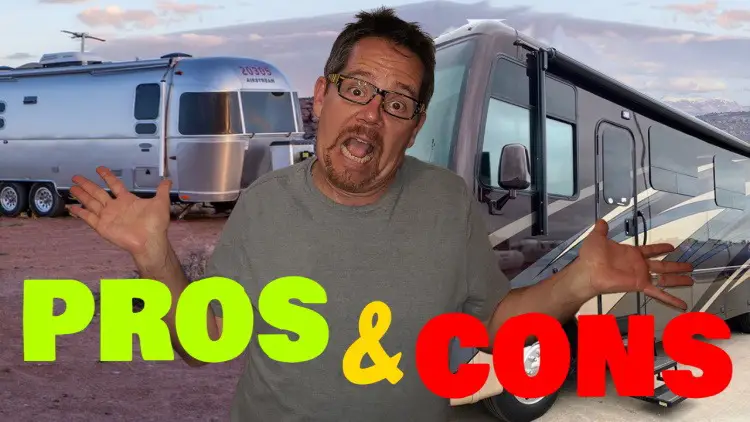
Buying an RV is not a small purchase and something that, in most cases, is a significant financial investment. So, choosing whether to go for a motorhome or a travel trailer can start to get complicated. So let’s compare a Class A motorhome vs. travel trailer.
Here’s what I learned in making that choice:
A Class A motorhome is the best option for large families who travel frequently, while a travel trailer is a good budget option for smaller families that primarily do weekend getaways.
In this article, our goal is to help you understand the difference between the two and, ultimately, help you decide easier.
We will start off by looking at which is better, and then we will go into detail about everything you need to know regarding a motorhome and a travel trailer.
So, keep reading.
Motorhome vs. Travel Trailer– which is right for you? Read Jordan + Brittany’s tips for finding the perfect RV! https://t.co/XdHl74TE0p pic.twitter.com/y2a7EIFnEr — Winnebago (@WinnebagoRVs) May 21, 2017
Are travel trailers better than motorhomes?
In terms of the purchase price, gas mileage, and maintenance costs, a travel trailer is better than a motorhome. However, most travel trailers will be too small for a family larger than 3 or 4 people and they also require a vehicle to tow them.
There is a lot that we can say about this.
There are many different types of motorhomes. Each of them is built differently and offers different experiences. There are many variables and factors that you need to consider when thinking about which is better.
That is why we are going to make 2 different sections.
In these sections, we will discuss whether or not the class A motorhome is better than a travel trailer. Then we will discuss travel trailers vs. class B and C motorhomes in more detail.
https://t.co/Rbg3nT97Ps ranked the best states for RV living based on the weather and access to federal parks. They also list the best RV insurance options to make sure you and your RV are fully protected. Check out the list here! https://t.co/2fkMCQs0Yo #RVLife #Travel pic.twitter.com/DnesdKB87z — Soup2Nuts (@Soup2Nuts0) March 16, 2021
Are travel trailers better than class A motorhomes?
Purchase price aside, a class A motorhome is better than a travel trailer. It provides more bedding and living space options, has a full-sized kitchen and refrigerator, significantly more storage, and often has outdoor kitchen and entertainment options.
Class A motorhomes offer more space than almost any other RV.
That extra space can be increased with slideouts. Also, the class A motorhome has more features than a travel trailer. One of the biggest benefits of a class A motorhome is that your passengers can ride in the home section of the vehicle while you’re driving.
Everything is connected! This just adds a wealth of convenience that can’t be beaten by anything else.
Bring home with you on your next road trip – 5 Best RV Rental Companies https://t.co/sqWEc52Ff6 via @LilFamAdventure pic.twitter.com/RrFS22IWIH — Margarita Ibbott ~ @DownshiftingPRO (@DownshiftingPRO) March 18, 2021
Are travel trailers better than class B or C motorhomes?
A Class B motorhome is better than a travel trailer in terms of safety and the ease of driving it. A Class B motorhome will be better than a travel trailer for families of 4 or more people. The travel trailer’s biggest benefit is the low purchase price.
A travel trailer offers more space than a class B motorhome . It also offers a lot more features. A class B motorhome is relatively small. The RV will be entirely built into a van. This means that it is usually the smallest type of RV.
When it comes to travel trailers vs. class C motorhomes, things get slightly different.
The similarities between a class C motorhome and a travel trailer are quite stark.
The one major difference is that the travel trailer can have its trailer detached if you want to. On a class C motorhome, the trailer is attached to the body of the vehicle permanently.
In terms of space and features, they are similar.
Do you prefer class A, B or C ? 👀 #naturecoastrv 🌲• #motorhome #fifthwheel #toyhauler #traveltrailer #travel #camping #glamping #classb #vanlife #lifeontheroad #fulltimerv #tinyhome #rv #rving #rvlife #dealership #flordia #homeonwheels #instatravel pic.twitter.com/jmjbjJBWbv — Nature Coast RV – Crystal River, FL (@Nature_RV) July 16, 2020
How long will a Class A motorhome last?
A Class A motorhome can drive up to 200,000 miles or last up to 20 years before needing major repairs or engine replacement if it has been consistently well-maintained and serviced.
But when it comes to almost any vehicle, you don’t generally use age as a factor when discussing how long it will last. Instead, you need to use the number of miles that it will drive.
Eventually, the vehicle’s mechanical components will start to give in.
And if you don’t conduct scheduled maintenance, damaged parts will often lead to more damage. It would be best to have a booklet that tells you when your scheduled maintenance is. It will state when you should do your maintenance for every few thousand miles that you drive.
But even then, driving it too infrequently can be just as bad as putting a lot of miles on it. RVs are meant to be driven, and just like people, a lack of movement can cause big problems down the line.
In terms of the living section of your motorhome, that will last for as long as you maintain it.
In the living section, you will start finding that your plumbing or the electricity and just about anything might start giving in. You will have to replace almost everything at some stage. However, if you replace broken components with quality ones, your living quarters should last longer than the vehicle.
You also need to consider that any wood will start to chip and give in, and as long as you just keep an eye on that and sort any problems out as soon as they start, the interior will last long.
The good thing about the inside of your class A motorhome is most of the time, this stuff is just DIY.
Yeah 4×4 is defeated by ice so helping where I can. Rv travel trailer helps the mind set of preparedness. Hopefully you can help this rv float some day. pic.twitter.com/6fAHMV690N — John Galt (@CitizensColumn) February 18, 2021
How long will a travel trailer last?
A Travel Trailer can go for 20 years or 200,000 miles or more since most of the mechanics of driving a travel trailer are handled by the truck towing it. The tires, axels, and electronics will need occasional replacing or servicing, but a travel trailer can last indefinitely if well maintained and properly stored.
But again, for this section, we are going to use miles more than years.
It is very easy to say that your travel trailer “will last x amount of years”, but that is a disingenuous answer. It is disingenuous because it depends on how much you drive and how well you take care of the vehicle.
You need to know what the recommended service intervals are for your vehicle. You can find this in the booklet that comes with the vehicle.
Another thing to consider is the way you drive and the terrain that you regularly drive on. This can increase or decrease the mileage that you can expect to get out of the vehicle.
In terms of the trailer itself, this can last for as long as you maintain it. You will have to replace a few parts, and you might have to get your plumbing, and your electricity fixed every now and then.
Also, you will have to replace some of the items inside of it, like the beds, the microwave, fridge, and stove .
The interesting thing about travel trailers is that it is easier to replace only the vehicle and simply hitch the trailer onto the new vehicle. This can increase, significantly, the lifespan of the travel trailer.
Wife and I just decided to buy an RV/Travel trailer and travel instead of settling down in one spot. So excited! pic.twitter.com/sgEgGlaLH9 — Nic (@nicsusername) October 5, 2020
Can passengers ride in a travel trailer while being towed?
It is illegal for people or animals to ride in any camper that is towed behind another vehicle. The primary reason is that, no matter how safe modern tow hitches are, there is a good chance of the trailer coming loose in the event of an accident.
When comparing motorhomes against travel trailers, this is one of the biggest cons of the travel trailer.
While the travel trailer still offers you the mobility of being able to travel across the country and, in some cases, across borders, you can’t do so in the same comfort.
Honestly, this is one of the reasons my wife and I decided against both travel trailers and fifth-wheels.
Our family of 5 and our 2 dogs would just be too crammed into a pickup, even if we got the largest pickup truck available. Remember, in many cases, campers drive 4-6 hours a day in between destinations on long camping trips.
That’s a lot of time spent in the close quarters of a truck.
This rv travel trailer and a fifth wheel #Camping #RV pic.twitter.com/bC2hZHsbzQ — Julian (@Julian24294407) October 25, 2020
Is it dangerous to ride in a travel trailer?
It is dangerous to ride in a travel trailer while it is being towed. Aside from not being legal, if the truck towing the trailer was in an accident, the tow hitch could fail and cause the trailer to flip. Unlike vehicles, travel trailers aren’t built with road safety features in place to protect occupants.
Most RV veterans will tell you that safety is a priority and that you need to consider it wherever you go. That is why in this section, I am going to give you a specific answer and a long answer.
You hear people say this all the time “well, I am a good driver” or “I am very aware while on the road”.
Maybe, as a driver, you could be one of the best out there; however, even though you can account for what you are going to do on the road, you can never predict what other people will do.
Let’s say that there is an accident that was out of your control and is caused by another driver. If this happens, the people in the trailer will not have the necessary safety features that a vehicle normally has.
You also have to consider that sometimes, something can happen that is not accident-related, and you will not know about it because you are not connected to the trailer. A passenger can be in trouble and might not be able to get to their phone to let you know that something is wrong in the back.
It is best that you avoid these types of situations.
2018 Newmar Essex 4531 | Luxury Class A Motorhome – RV Review: Camping World https://t.co/FZt2j8TNC0 pic.twitter.com/KuPcz5zI5y — Panamá Camping Park (@PanamaCampingPk) June 8, 2018
What is the price difference between a Class A RV and a travel trailer?
The price range for a new Class A motorhome is between $90,000 to $250,000 or more with the average price being $150,000. Travel trailers start at $10,000 with the average price being $35,000.
But this is a very broad question because you get your average mid-range motorhome, and you get your average mid-range travel trailer.
You also get the more premium versions of both but what we can say is that motorhomes are generally much more expensive than travel trailers.
So, you could say that the price difference is roughly $50,000 to $80,000. However, that is not taking into account premium and luxury class A motorhomes.
On the more premium side of things, a premium travel trailer will cost you around $70,000 to $80,000. A premium class A motorhome can cost a few hundred thousand dollars all the way out to a few million.
Therefore, it is difficult to know the exact price difference between the premium versions of both.
Picking up our first RV/Motorhome in a few days! pic.twitter.com/6moOA45MLZ — Steve Wozniak (@stevewoz) December 18, 2020
What are the pros and cons of owning an RV?
Because there are so many different types of RVs out there, it can be tricky to talk about the pros and cons because you would have to list almost every type of motorhome and every brand as well.
A quick example of this is to use the fact that you can unhitch a travel trailer and then have your normal vehicle to travel around with at your destination. This is a pro for travel trailers. For a class A and C motorhome , this is a con because you cannot do it.
In this section, we will talk about the pros and cons of owning an RV in general. Some of these might change for you depending on what RV you own.
Pros Of Owning An RV
Here is a shortlist of pros that come with owning an RV:
- Comfort: Almost nothing quite beats being able to go on vacation and be comfortable while out on the road.
- Flexibility: Owning an RV can eliminate the rush you might find yourself in when trying to meet deadlines for the airport and for booking into your hotel. If you want to stop over somewhere, you can. Are you running a bit late? No problem, owning an RV means you are flexible.
- Experience the country: While out on the road, you can experience America in a way that you could never have before. You can take any turn that you want to. At any time, you can turn off somewhere and experience what life is like there. You can find different attractions that you have never heard of before.
- Creates bonds and memories: RV trips are one of the best ways of spending time with your family and creating memories while doing so.
- Make money : Most places that rent RVs don’t own the RVs they rent. They are owned by people just like you and me. They simply give that business the right to rent out their RV when they aren’t using it. They do take a cut of the rental, but they also handle maintenance and provide year-round parking for it.
10 of the best destinations for the RV in the US. It’s time to start planning! @RVLife @VisitTheUSA #VisitTheUSA #RVLife https://t.co/sFzr9pzsmJ via @GoAwesomePlaces pic.twitter.com/Q4mVIKtp9x — Diane Capri (@DianeCapri) March 16, 2021
Cons of owning an RV
Here is a list of cons that come with owning an RV:
- Storing an RV can be complicated: When you are not using your RV, the ideal situation would be to keep it parked outside your home. However, this isn’t always possible, mostly due to homeowners associations not approving of this. So, you would have to find a storage facility where you can park your RV.
- Maintenance can be expensive: When talking about maintenance, we are mostly referring to the vehicle part of the RV. Unfortunately, servicing an RV is more expensive and servicing a vehicle. It actually costs a lot more and can become rather expensive.
- Gear and accessories: You can find yourself spending a lot of money on gear and accessories. For example, if you are going to RV in a very cold destination, you would need to buy gear to help keep you warm. That is just one example but trust me, after a while, the amount of money you spend on gear and accessories can be high.
- Mobility at your destination: You may think that RVs make you more mobile than anything else. That is partly true; however, when you reach your destination, you might find yourself having to rent out a car if you want to get to some places. This is because driving your RV around everywhere can become cumbersome.
Traveling with those you care about makes the journey worth it! #rv #travel #family #friends #vacation #motorhome #campervan pic.twitter.com/crdvF94SWg — RVnGO (@RVnGOcom) February 25, 2021
Is a class A RV safer to drive than towing a travel trailer?
A Class A motorhome is safer than a travel trailer. RV safety is determined both by whether a vehicle is being towed or towing another vehicle, but also by the wheelbase. Towing adds a layer of risk while driving, but the wheelbase ratio on many Class A RVs will be better than that of a trailer and truck combined.
To determine the wheelbase-to-length ratio of a motor home, just divide the wheelbase by the length of the vehicle.
According to RV Consumer Group , a wheelbase ratio below 51% is extremely dangerous. They go on to note that :
- 51% to 54% is not great for basic safety
- 55% to 56% is OK
- 57% and above is considered excellent
Generally speaking, the higher the wheelbase-to-length ratio the safer it gets.
With a travel trailer, it just gets more complicated since they just have 1 set of wheels. So you have measure the distance from the trailer’s wheels to the back truck wheels and then divide that by the total length of both vehicles.
While Class A RV’s aren’t usually great in terms of wheelbase safety compared to Class B or Class C RVs, they are often better than travel trailers and fifth-wheels.
The 45-foot luxury motorhome is the most expensive one at this year’s Calgary RV Show and Sale. It’s called the American Dream, made by American Coach. https://t.co/GWcBdQHpWV pic.twitter.com/NtVQ3ctFEd — Hemet Valley RV (@HemetValleyRVs) February 17, 2018
What is the safest RV to drive?
Class B motorhomes are the safest RV as they do not tow or require towing, and have a high wheelbase ratio, and overall smaller road footprint, making them much easier to handle, quicker to stop, and much safer to drive.
When you think of safety, you need to think of how the vehicle drives, and then you need to think of the features that the motorhome offers the passengers of the vehicle.
By looking at all of this, we can conclude which is the safest motorhome to drive.
- Stability: Unlike travel trailers, Class B motorhomes are not divided into two. In fact, the entire living section of the RV is built into the body of the vehicle, which is, in most cases, a van. This offers more stability on the road.
- Control: The biggest difference between a class A and a class B motorhome is their size, and due to the small size and the design of a class B motorhome, you have more control. A class B motorhome is easier to drive than a big class A RV which often resembles a big bus.
- Passenger safety: In a class B motorhome, it is easier to fit with safety features for passengers. This often means that all passengers will be buckled safely with their seat belt and will be seated facing forward.
Also think about the fact that if you’re serious about camping, there may be times when you’re off-roading or driving on uneven surfaces that a large RV couldn’t handle.
The classic Airstream Travel Trailer gets a deluxe interior upgrade for those customers looking for luxury on the road – Via #lonelyplanet pic.twitter.com/O5NI0WsLzy — SpiralXXI ☣ 😷 (@SpiralXXI) January 31, 2020
Which Class A motorhome is rated best?
The American Dream Class A RV by American Coach is one of the highest-rated Class A RVs on the market, rating 4-stars on RV Trader with an A+ rating from the Better Business Bureau with 0 complaints registered.
As you can see by the price tag below, the American Dream is a high-end motorhome.
You can choose from three different floor plans, and when purchasing your RV, you can have a lot of it customized to your preference. However, with all of that being said, when purchasing it standard, you know that you are still buying a high-end RV.
The 45-foot version offers a 600 horsepower engine , so no matter what conditions you are driving in, you should always have the power to get to where you need to go.
In order to provide the maximum amount of space when you are parked at your destination, the American Dream has 3 slide-outs.
Interestingly, the company, which was started in the early 90s, was out of business from 2004-2015. But they came roaring back to life in 2016, and haven’t looked back!
Features of the American Dream 42Q
- Base price: The American dream by American Coach starts at around $530,000.
- Length: When it comes to the length of the RV, you have the option of choosing either the 42 ft or 45 ft RVs.
- Engine: The size of the engine will almost always depend on whether or not to go for the 42 or 45 foot RV. However, the two engine sizes start at 450 to 600-hp.
- RoadWatch Safety System: Safety is a huge priority for American Coach, and with their safety system, you will have adaptive cruise control, collision mitigation, electronic stability control, and traction control.
- Keyless entry: Because why not? Keyless entry does add a lot of conveniences.
- Generator: The RV comes equipped with a 12.5 KW quiet diesel generator.
- Aqua-Hot heating system.
- Air conditioner: The RV comes equipped with three 15k BTU air conditioner units.
- Exterior entertainment: The RV has an exterior entertainment system that comes equipped with the latest 50 inch Samsung tv and a JBL soundbar.
Monday’s Motor Home: 2020 Newmar Bay Star Sport 3226! https://t.co/O55evsw8jw #mondaysmotorhome #buddygreggadventures pic.twitter.com/2eHHpzrpWa — Buddy Gregg RV’S & Motor Homes (@BuddyGreggRV) March 9, 2020
Which budget Class A motorhome is rated best?
The Bay Star Class A RV by Newmar is one of the highest-rated lower-priced Class A RVs on the market, rating 4.6-stars on RV Insider with an A+ rating from the Better Business Bureau with only 8 complaints in the prior 3 years.
It’s worth noting that I am biased here as I own a 2020 Newmar Bay Star; they’re great!
You can choose from 12 different floor plans, and when purchasing your RV, you can have a lot of it customized to your preference. However, with all of that being said, when purchasing it standard, you know that you are still buying a high-end RV.
Newmar is a luxury RV manufacturer. But the Bay Star is basically their budget line.
Slide-outs vary by model but vary between 2 and 4. All floorplans of the Bay Star are gas-powered, making maintenance less expensive. The company has been around for over 50 years. And like a few other RV manufacturers, features Amish craftsmanship in the interiors of its RVs.
Features of the Newmar Bay Star
- Base price: The Bay Star by Newmar starts at around $158,000.
- Length: When it comes to the length of the RV, you have the option of choosing 31′ up to 38′ with several steps in between.
- Engine: A 7.8-liter V8 engine with 350 horsepower
- Camera navigation: Comes with a rear camera and both left and right side cameras which activate automatically when in reverse or when the blinker is on.
- Televator: The large flatscreen in the living room can lower down into the cabinet below it when not needed at the touch of a button.
- Generator: 5.5 kW Cummins Onan® Generator with Remote Switch and Automatic Changeover
- LED lighting throughout
- Air conditioner: The RV comes equipped with Two 13.5 Penguin Heat Pump A/C units.
- Exterior entertainment: The RV has an optional exterior entertainment system that comes equipped with a 32″ flatscreen TV.
Step into the Airstream Classic Travel Trailer offering every comfort of home you want – plus plenty of amenities you didn’t even know you needed! https://t.co/JRHF1BcVWD #Airstream #Adventure #WalkthroughWednesday pic.twitter.com/m1KpQG6vN2 — Great American RV SuperStores (@GARV_SuperStore) July 8, 2020
Which travel trailer is rated best?
The Airstream Classic is one of the highest-rated travel trailers on the market, rating 4.6-stars on RV Insider with an A+ rating from the Better Business Bureau with only 2 complaints registered in the prior 12 months.
It’s also worth pointing out that I look at a lot of business pages on the Better Business Bureau website.
Finding a business that only has 2 complaints a year is VERY hard to find. Even companies I know to be reputable often have dozens. So don’t think that 2 in 12 months is bad.
Of course, everyone knows Airstream; they’re iconic.
And you probably know they are pricey for an RV compared to other brands. But let’s take a look at the features behind the brand name. That way you can really see why they charge what they charge and have the reputation they have.
Features of the Airstream Classic
- Base price: The Airstream Classic starts at around $161,900.
- Length: Depending on what floor plan you choose, you can either go for the 30 ft or 33 ft options.
- 4-floor plans to choose from: Speaking of floor plans, the Airstream allows you to choose between four of them. Each of these has its own pros and cons when compared to each other.
- Sleep up to 5: The airstream classic can sleep up to 5 people. However, the most comfortable option would be to sleep up to four people.
- Smart Control: This nifty little feature allows you to control just about anything in the trailer’s living space with your phone. You can control the lighting, the ambiance, temperature, and so on.
- Luxurious bathroom: The bathroom in the trailer is so luxurious that it even has heated floors in the shower and heated towel racks.
- Projector TV: When traveling in an RV, you spend a lot of nights inside the RV, especially in bad weather. Well, the 65-inch projector TV can keep you busy.
The airstream classic is one of the most luxurious travel trailers that you can get. With all of its features that we listed above, you can be sure that you will travel in comfort, style, and also with small to large conveniences that will make your trip an enjoyable one.
Beautiful weather, beautiful campground. Nothing better. #Winnebago #minnie #campingtime #Petoskey @Winnebago #towables pic.twitter.com/CUCzOULhKh — Caron Bergen 🇺🇸 (@CaronLBergen) July 10, 2018
Which budget travel trailer is rated best?
The Winnebago Minnie is one of the highest-rated lower-priced travel trailers on the market, rating 4.2-stars on RV Insider with an A+ rating from the Better Business Bureau with 22 complaints registered in the prior 12 months.
Now 22 complaints in 12 months aren’t low. It’s not super high either, as I’ve seen a lot worse. It’s also for the company as a whole and not specific to the Minnie. But it’s also worth pointing out that those complaints were from 2020 when the world was rocked by lockdowns. That hit all manufacturers hard with low supply and high demand and long delays on delivering new RVs.
Hence that equals complaints. And 22 was double their average annual number of complaints.
I love the Minnie, so let’s look at why.
Features of the Winnebago Minnie:
- Base price: The Minnie starts at around $32,232.
- Length: Depending on what floor plan you choose, you can get a camper that ranges from 25 ft up to 32 ft.
- 15-floor plans to choose from: Plans range from 1 queen bed to 1 queen bed plus bunk beds, and all feature 1 slideout.
- Sleep up to 8: The different floorplans allow sleeping accommodations from between 4 to 8 people.
- Outdoor entertainment – External patio speakers and TV hookup
- Massive outdoor storage – Features 44 cubic feet of exterior storage; more than any other travel trailers in this price range
So if a big-budget camper or motorhome just isn’t an option, the Minnie is the way to go. That’s even more true if you buy a late model one that’s 1 to 2 years old which you might find as low as $20,000.
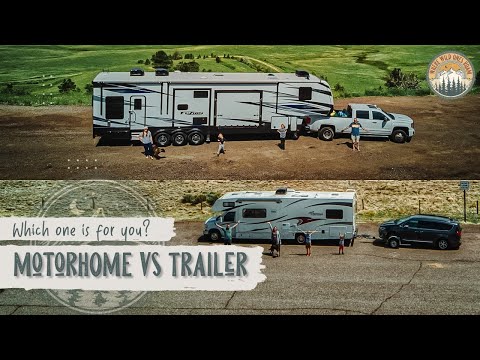
Ultimately the biggest factor in deciding between a Travel Trailer or a Class A RV is your budget , the size of your family, and how often you plan to use it.
A Class A is generally going to be the way to go in most cases. But that’s especially true if you have a family of more than 3 people and plan to take long trips during summer and occasionally throughout the year. Trailers are great, but better suited for weekend warriors and small families.
But lastly, there’s a huge difference in price between them. A trailer could easily be $60,000 cheaper than a Class A RV (or more). That low barrier of entry makes the RV life totally possible for people who just can’t manage a 6-figure Class A.
But no matter which way you choose, life in an RV is grand! So start making memories and taking on new adventures.
Jeff Campbell
Jeff Campbell travels on and off with his 3 daughters in a Newmar Baystar Class A Motorhome. He writes extensively on both RVs, campgrounds, parenting on the road tips, remote learning & schooling, and much more! Click Here to learn more about me. Click Here to learn more about my site. Editorial Policies.
Leave a Reply Cancel reply
Your email address will not be published. Required fields are marked *
Save my name and email in this browser for the next time I comment.
Top Related Posts
25 Crucial Pros and Cons of Living in an RV Full-Time
I have lived in my RV with my kids for 4 weeks at a time. But someday, I may decide to live in ours all the time, and so I wondered about the pros and cons of living in an RV full-time. The pros...
How Long Can You Boondock in a Class A RV?
Boondocking traditionally involves camping off-grid and without hookups outside of a designated campground. Class A RVs are often luxury vehicles, so it's natural if that means they can go longer....

Home » RV Lifestyle Topics » Class B RV VS Class C – Which Is Right For You?
Class B RV VS Class C – Which Is Right For You?

I currently drive a Class B motorhome but during my search for an RV, a Class C was on my list and was one of the first types of RVs that I was interested in.
The Class C offers a few advantages over the class B but in the end, I chose a class B for a few simple reasons.
Deciding on a class of RV to purchase can be a difficult decision. Many of them offer benefits over the other. With the Class B and the Class C being the smallest types of motorhomes, these two compare well to each other in many ways.
What Is A Class B RV?
A Class B RV is the smallest of all types of drivable motorhomes. Essentially, it is a van that has been converted into a camper and has all of the amenities that you would normally expect from a camper.
Although small, a Class B RV can provide you with an excellent living space for camping and traveling. Some people even live full-time in a van (down by the river, of course).
The beauty of this type of RV is the places that you can go to and the ease of which you can go with it. These are small but they are very nimble and can be driven on almost any road and can be parked in nearly any location.
Unlike larger RVs, you do not have to worry about the rig being so large that you can’t pull into the parking spot that you want.
These types of RVs come in different sizes but most range from 19 feet to 25 feet long in total length. Most of them have high roofs that allow you to walk around inside just as you would any other living space.
Even those who may be a bit taller can enjoy a Class B since the headroom in these is sufficient for most people of average or slightly above average height.
What Is A Class C RV?
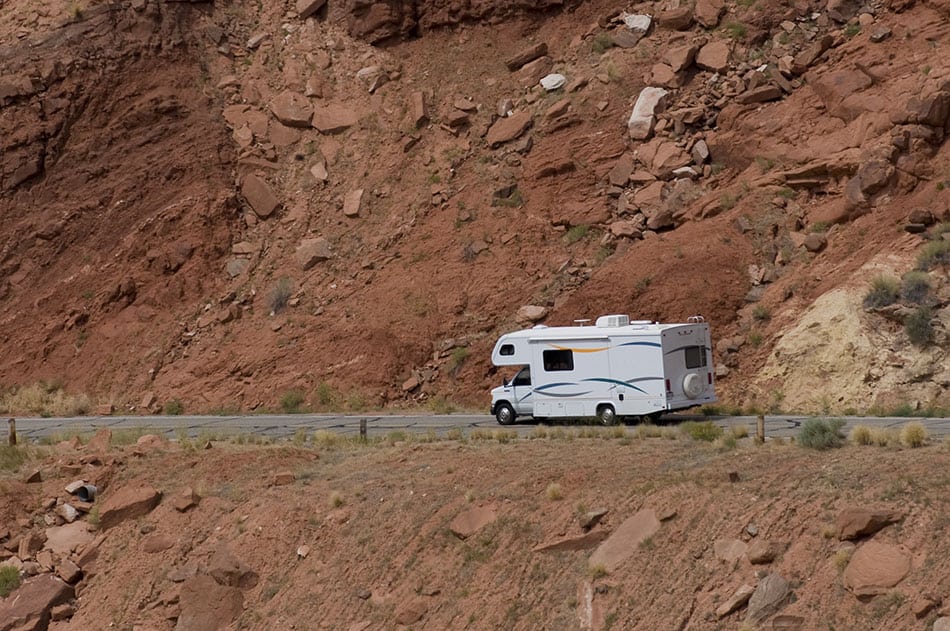
A Class C RV is larger than a Class B but not quite as large as a Class A. Although, some large Class C motorhomes can be larger than the smaller Class A motorhomes.
A Class C is usually made up of a van front end with a custom living area built onto the rear.
The cab opens up to a living area that is much larger than what a van could provide. This space is often increased by the use of slide outs which allow even more room to be gained when the RV is parked.
A Class C RV can still be quite easy to drive around although not quite as convenient as the Class B. These are often much taller than a van would be so driving them might take some extra care versus what you would have when driving a van.
The class C is perfect for a family that needs more living as well as more room for sleeping areas.
They can provide adequate living space for 3 to 4 people or more depending on the size of RV that you have. One of the benefits of a Class C is that it contains multiple sleeping areas and usually has a nice sleeping area over the front cab of the vehicle.
This area makes a great sleeping space for children and can provide a family with a spacious camper that can allow the whole family to enjoy the trip and comfort.
Class C RV’s range in lengths from about 26 feet up to 35 feet for the longest ones.
Are Class C Motorhomes Hard To Drive?
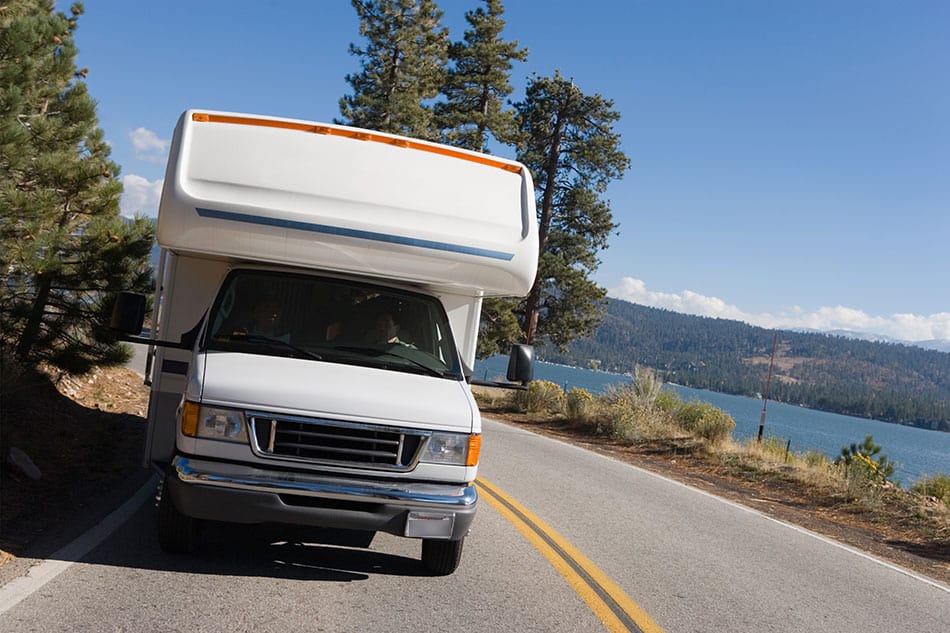
Since these types of RVs are larger than vans, it would make sense that they are probably a little more difficult to drive.
The front end of the RV is the same as you would find in a standard van. They utilize the same cockpits as most popular Class B RVs do.
The difference is that with a Class C, the back end of the vehicle is much larger. This can make it more difficult to park and maneuver around in small spaces.
Even though they are larger, they are still fairly easy to drive around. As with anything large like this on the road, you must be careful and alert because it’s much different from driving a small passenger car.
These RVs have all of the comforts of driving that you would expect from a modern-day vehicle and are often equipped with cameras to allow you to maneuver more easily and help to reduce blind spots.
With back up cameras and other fields of view cameras, Class C RV’s can become very easy to drive.
Are Class C Motorhomes Safe?
Class C RV’s provide you with a safe and fun way to travel and camp while giving you a maximum amount of space. They provide all of the safety features that you would expect and can be safer than other types of motorhomes specifically the Class A.
Most modern Class C motorhomes have airbags and other safety features that give you peace of mind when out on the road.
How Much Do Class C Motorhomes Cost?
On average, you can find a brand new Class C motorhome in the $50,000-$100,000 price range. However, some models exceed this amount such as the 2020 Winnebago Navion , which is a small, 25 foot long RV.
This is a significant amount of money to spend on an RV but it is the cheapest option on the market if you choose to have a drivable coach such as this.
Besides the super expensive ones, most are offered at a reasonable price considering what you are getting.
Compare this to a camper van where you would pay anywhere from $70,000-$150,000 on average for a brand new one. These numbers are for the MSRP and can usually be purchased for less than this on sale from a dealer.
Advantages Of Owning A Class B Motorhome

Easier to park
A camper van is going to be easier to park then a larger motorhome would be. This makes it very convenient when you are pulling into RV parks or campgrounds that have limited space.
It also makes it easy when you are parking in standard parking lots. With a Class B, you will generally fit into a standard spot but a Class C will likely not fit and will take up multiple spaces.
A van can be easily parked or even parallel parked in city locations that have limited room for maneuvering.
Small and easy to drive
Since a Class B is so small, it is very easy to drive around. It is similar to driving a passenger vehicle and can make the experience much more pleasant if you are not used to driving large vehicles.
When I drive my camper van, it feels similar to driving my pick-up truck and never makes me feel like I am driving something large.
Better fuel economy
Class B RVs are among the best in fuel economy of all of the motorhomes. These RVs get around 18 to 22 miles per gallon. My camper van typically gets about 20 miles to the gallon depending on where I am traveling and how much weight my van is carrying.
With a Class C RV, you can expect to get anywhere between 12 and 18 miles per gallon. This is still better than the largest Class A motorhomes but not quite as efficient as a van.
More Stealthy
Try taking a class C motorhome into a parking lot and parking without being noticed. It likely will not happen because of the size and look of the RV. On the other hand, a van parks nicely nearly anywhere and can blend into the environment without being noticed.
A Class B doesn’t usually have the RV look to it. Although some have designs and brand names on them, they are a bit more subtle than Class C’s.
Some of them do not even look like an RV and if you choose to convert a van yourself, you can make it completely stealthy. This means that you will be able to park in more places and sleep for the night without being noticed.
I wrote a post about stealthy camper vans, click here to read more .
Easier to store or cover
When the time comes to store your RV for the winter or during downtimes, a large RV is going to be more difficult to store. Since it is larger, it will be a larger eyesore sitting in your driveway and if you intend on covering the RV with a cover, it will be more difficult to put on and then remove when it is time to use again.
Although a camper van will likely not fit into a standard garage , it will not be as unsightly as a large box-shaped RV sitting in the driveway.
Depreciate less
In my research, I have learned that Class B RVs depreciate less than other types. These van conversions are typically higher quality and there is less supply than are the other classes of RVs.
Higher quality
Camper vans are usually outfitted by skilled workers and more time goes into creating one than RVs that are built on an assembly line. You can see this quality if you go and look at different models.
Some of the Class C motorhomes that I have looked at have been terrible in quality. I would hate to pay the price that was asked for some of the quality that I have seen done on some of the ones that I have looked at.
I am not saying that all of them are like this because they certainly are not. I have seen some very high-quality ones and some brands that maintain a very high quality of work throughout.
I am just noting that out of the two classes of RVs that I have looked at, the Class B gives you a more quality product.
No need for a towed vehicle
When you drive a van, it becomes your everything vehicle. Besides being your home on wheels, it is also your vehicle for getting you from point A to point B. Other RV types require that you tow a vehicle so that you can use that vehicle as your personal get around car.
The van is small enough to serve this purpose and there is no need to tow anything when you travel or camp. You will have all you need in one small package.
Advantages Of Owning A Class C Motorhome

If you are looking for more room in an RV, a class C has you covered. There is substantially more room in one of these types of RVs than you will find in a class B. This can be great for those who need more room and don’t mind having the larger vehicle to drive around.
These feel more like being at home than a van does. The space included inside is enough for multiple people to move around comfortably without bumping into each other. These are great for spending time in and can be a nice home away from home that you can live in comfortably while out on the road.
Family-Friendly
Since they are larger than a van, they are more family-friendly. They can typically hold 3 to 4 people with no problem and there is plenty of seating and bedding.
Although it could be done, a van is very small to haul a family of more than two people. It would get pretty tight inside and moving around would be a chore. The space of a larger RV such as the Class C makes for a much more pleasant experience when the family is involved.
More Interior Height
If you are tall, you will appreciate the ceiling height in a Class C. They are typically much taller than a van ceiling would be. It is common to find ceiling heights of around 7 feet tall.
This allows people of above-average height to move around comfortably.
More sleeping area
One of the main features of a Class C is the additional sleeping area over the cab. This makes for a great place for children to sleep or anyone else who needs their own personal sleeping area.
Besides this, there is typically a queen size bed and other areas such as sofas that pull out into beds that can be slept on. This makes it much easier to accommodate multiple People and larger families so that each one can sleep comfortably in their own space.
Easy entrance
Sometimes one of the most annoying things about my camper van is the sliding side door. It often becomes a problem when I’m parked in a campground. It can be a bit loud slamming the sliding door and can often cause more noise than I would like to.
I feel like I am bothering my neighbors every time I have to close the door so I sometimes avoid opening and closing it.
With a Class C, you will typically have a side door that opens just like a standard door so that there is no noise involved. Unlike the sliding door that I have, this door closes and locks with a latch rather than having to be slammed shut by sliding it.
Some sliding doors aren’t as bad as the one I have but the RAM Promaster that I built my conversion van on, has a stubborn sliding door that often becomes a problem.
More Affordable
Class C motorhomes are more readily accessible than camper vans are. This is mainly because they are more popular since they offer more space for people to live in.
Since they are more accessible, supply is higher so the cost is going to be less for an RV like this. You can purchase one of these for between $50,000 and $100,000 brand new and much less than this if you consider purchasing a used one.
These types of motorhomes are the cheapest types of drivable motor homes on the market and provide a great option for those looking to get into the RV life.
A used Class C RV can be a great value since many people buy these and realize that they don’t want them any longer and seek to sell them.
Larger capacities for longer stays
If you expect to stay longer in boondocking situations, you will need to make sure that you have large storage capacities for freshwater and gas. You will also want larger grey and black water holding tanks.
The larger RV provides a greater capacity for the storage of these types of necessities. Since vans are smaller, they cannot carry the number of supplies that a larger RV can.
These typically have water holding tanks for fresh water in the 30-60 gallon range and can provide you with clean water for longer than a camper van can.
This may be important if you stay off the grid and have a family that uses more water. Also, the gray water and black water holding tanks are generally larger so they can go for longer periods without being dumped.
Final Thoughts
Both classes of motorhomes mentioned in this article make fantastic options for those looking to have a drivable RV. They are convenient and can take you on adventurous trips that will allow you to get out and explore the great outdoors.
In the end, it comes down to how much space you need. For those who would like to have more space or have a family that they travel with, a Class C will be a better choice.
Those who are single or are traveling as a couple can easily make do with a Class B camper van. These will provide enough space to travel comfortably in and then have a place to do all your essential activities such as cooking and sleeping.
Both of these are expensive options when purchased brand new. If you are interested in one of these types, I would suggest looking at used options first. A used one can be purchased at a much lower cost than a new one can.
Whichever you choose, either one will make a great RV that will give you many years of enjoyment.
Dan Collins
I consider myself an outdoor enthusiast. I love to travel and go to places that most people don't get a chance to go. I want to see it all and live life to the fullest while I'm alive. My camper van is helping me to do just that. I write about my experiences to help inspire others to do the same.
Recent Content
What Size RV Do I Need? Size Comparisons of Each Type
Choosing the best RV can be a difficult task! It isn't always easy to pick the perfect solution on the first go-around, especially if you are new to the lifestyle. I drive a camper van but it may not...
6 Reasons Why Renting an RV Is a Good Idea
Purchasing an RV can be quite an expensive undertaking! Not only is it expensive but also requires space in which to park it. Many people just don't have the room for a large RV sitting in their...

IMAGES
VIDEO
COMMENTS
Driving in a pickup is quieter than the Class C. I can tow for quite a ways. The Class C is just noisy and that adds stress+fatigue. I can drop the trailer at the campsite and go check out a town, do a day trip, or go out to eat a lot easier than a Class C. As you mentioned, drive train on a class C is a thing to deal with.
A Reddit dedicated to anyone interested in RVing. From road trips, advice, or buying and selling; please come share your experience or take some advice. ... Pros and Cons Class C vs Travel Trailer . We are considering upgrading our TT to a ~30' Class C. My wife really likes the idea of traveling in a motorhome, I like the idea too but want to ...
Resort Queens: Class A. Full Timers: Class A or 5er is first choice by far with the 5er being preferable for seasonal/semi-permanent parking and the Class A for more active travel. Weekend Warriors: Travel Trailer or 5er, Class C for second choice, Class A is just overkill but would take it if it was given to me.
A Reddit dedicated to anyone interested in RVing. From road trips, advice, or buying and selling; please come share your experience or take some advice. ... As far as build quality goes, you're gonna have the same issues regardless of travel trailer, 5th wheel, class a b or c, etc, and as other posters have said, you now have a 2nd drive train ...
Travel trailers tend to be cheaper, but the cheaper you go, the more the quality usually is affected. Class Bs and Cs are usually pricier, but you don't need a big vehicle to tow them. We have a 27ft travel trailer for long weekends, some week trips, and as a guest house at home, and it works great for our family of 4.
Biggest difference: With a class c, once you get to where you're going you can't leave until you're ready to go. With a trailer, you can set up the trailer and then use the tow vehicle to go do things. We just went to Cherokee NC, and used to truck to go to the outdoor drama, to go shopping, and to go on a waterfall hike.
Skip to main content. Open menu Open navigation Open navigation
Get app Get the Reddit app Log In Log in to Reddit. Expand user menu ...
And, like the motorhome, the breakdown is the reverse. In our opinion, setting up and breaking down a travel trailer takes much longer than a Class C RV. We could set up our Class C and have a drink in hand literally in 15 minutes. We have seen many travel trailers take well over 30 minutes to get unhitched and all set up.
Both the travel trailer and class c rv incur almost similar overnight parking costs which could be around $10-$50 per night. Indoor or outdoor storage costs are also similar for both. An indoor storage costs around $50-$500 where as outdoor storage cost of renting could be anything between $40-$100 on an average. 16.
By going with a trailer and truck, each will be easier to sell when you decide to move on to something different. With a decent sized class C, you will end up wanting to tow a car, and getting a car set up for towing four down, or purchasing a tow dolly will cost quite a bit, especially if you can't do the work yourself.
We have been pretty much through the whole gambit, from travel trailers to Class C coaches and, lately, Class A coaches. Each one has had a place in our life and each one has allowed us to travel where we wanted to go. We never really observed much difference in the driving aspect of towing a travel trailer vs driving a Class C.
The Best Class C RVs of 2023: Complete Buying Guide. August 25, 2023. Class C, Coachmen, Find Your RV, Forest River, Jayco, Motorhome, Renegade, Thor, Winnebago. Class C RVs are motorhomes that provide excellent value for campers. These vehicles balance space and price, often with enough room to sleep as many as seven or eight people.
A motorhome is a trailer and a car all built into one thing. The motorhome comes in a giant bus size which is class A, a class B is which is a van, class C is the smallest of the bunch being no more than a truck. A travel trailer is an RV that hitches to the bed of your truck and follows behind you.
Lower to the Ground. C Class RVs are generally lower to the ground than the Class A. This is certainly true from the driver's perspective, but also usually true from the bottom of the coach. This means that driving the Class C feels similar to driving a truck, and also it means that the clearance is similar.
Tiffin got its start from the legendary Alabama kicker, Van Tiffin, and was later sold to Thor Industries. While Tiffin is often associated with Class A motorhomes, rather than Class C RV brands, they are perfectly capable of doing both. Tiffin simply takes the luxury and appeal of Class As and scales it down a little, making for a highly appealing Class C option.
Fuel efficiency plays a major role in the cost of ownership of your RV. Imagine you're taking a 1,000 mile trip. If you drive a motorhome that gets 10 mpg, you'd need 100 gallons of fuel. At $3.50 per gallon, that's $350. If you use a travel trailer and your tow vehicle gets 15 mpg, you'd only need 67 gallons of fuel.
5. Jayco Melbourne Prestige. The 2023 Jayco Melbourne Prestige takes the Best Class C RV in luxury to a whole new level with an upgraded premium Mercedes-Benz 3500 chassis and runs on diesel. The Class C RV sleeps up to five, and its exterior length is 25'2". It retails starting at $192,993, featuring a GVWR of 10,030 pounds, and a GCWR of 15,250 pounds.
Ease of parking is one factor when considering a Class B RV vs a Class C RV. Most can park in regular parking spots. This is one of our previous Class B vans in a parking lot at Yellowstone National Park. Many of these smaller rigs come with lithium house batteries and solar panels to maximize and extend electrical output.
More fuel efficient. Class C motorhomes still require a good amount of fuel, but they are much more efficient than Class A models. They're also easier to handle on the roads because of their smaller design. You can save money when you buy them and avoid costly refill trips.
Fifth wheels have a much higher profile, as well as class A motorhomes (usually around 13 feet).; Class C motorhomes are typically around 11-feet (including the AC on top).; Travel trailers can vary, but on the lower end you can find profiles around 10-11 feet, and even as low as 9.5 feet (say hello to the compact design of an Airstream).; Class B motorhomes are anywhere from 7-9 feet, with ...
The price range for a new Class A motorhome is between $90,000 to $250,000 or more with the average price being $150,000. Travel trailers start at $10,000 with the average price being $35,000. But this is a very broad question because you get your average mid-range motorhome, and you get your average mid-range travel trailer.
A Class C RV is larger than a Class B but not quite as large as a Class A. Although, some large Class C motorhomes can be larger than the smaller Class A motorhomes. A Class C is usually made up of a van front end with a custom living area built onto the rear. The cab opens up to a living area that is much larger than what a van could provide.